Rulers
Index Ca-Ce
Caamaño (Domínguez), Francisco (b. Jan. 8, 1963, Cee, La Coruña province, Spain), justice minister of Spain (2009-11).
Caamaño Deñó, Francisco Alberto (b. June 11, 1932, Santo Domingo, Dominican Republic - d. [executed] Feb. 16, 1973), president of the Dominican Republic in opposition (1965).
Cabactulan, Libran N(uevas) (b. Feb. 20, 1950, Sagay, Camiguin, Philippines), Philippine diplomat. He was ambassador to the United Arab Emirates (2004-09) and permanent representative to the United Nations (2010-15).
Cabal Pombo, Alejandro (b. Oct. 2, 1897, Buga [now in Valle del Cauca], Colombia - d. Feb. 9, 1950, Palmira, Valle del Cauca), war minister (1929), interior minister (1930), and justice minister (1947) of Colombia.
Caballero (de Añasco y Melgarejo), Bernardino (b. May 20, 1839, Ybycuí, Paraguay - d. Feb. 26, 1912, Asunción, Paraguay), president of Paraguay (1880-86). He was also minister of war (1871) and interior (1878-80).
Caballero (Lescano), Carlos José (b. Sept. 13, 1917, Córdoba, Argentina - d. Oct. 2, 1981), governor of Córdoba (1967-69). He was also Argentinian ambassador to Peru (1970-71).
Caballero Codas, Marcos (Honorio), member of the Triumvirate of Paraguay (1912); son of Bernardino Caballero.
Caballero y Fernández de Rodas, Antonio (b. April 3, 1816 - d. 1876), governor of Cuba (1869-70).
Caballero y Góngora, Antonio (Pascual de San Pedro de Alcántara) (b. May 23, 1723, Priego de Córdoba, Spain - d. March 24, 1796, Córdoba, Spain), viceroy of New Granada (1782-88). He was bishop of Mérida (Yucatán) (1776-78) and archbishop of Santafé en Nueva Granada (today Bogotá) (1778-88) and of Córdoba (1788-96).
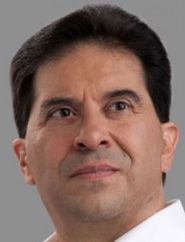
H. Caballeros |
Caballeros (López), Harold (Osberto) (b. June 20, 1956, Guatemala City, Guatemala), foreign minister of Guatemala (2012-13). He was a presidential candidate in 2011.
Caballeros (Mazariegos), Jorge Lucas (b. Oct. 18, 1924, Guatemala City, Guatemala - d. March 22, 1972, Guatemala City), finance minister of Guatemala (1963-65). He was a presidential candidate in 1970.
Cabanes (Dalmau), Josep Maria (b. Feb. 21, 1958), justice and interior minister of Andorra (2003-07).
Cabanillas (Bustamante), Mercedes (b. May 22, 1947, Callao, Peru), interior minister of Peru (2009). She was also minister of education (1987-89, 1990), a minor presidential candidate (1995), and president of the Congress (2006-07).
Cabanillas Gallas, Pío (b. Nov. 13, 1923, Pontevedra, Spain - d. Oct. 10, 1991, Madrid, Spain), justice minister of Spain (1981-82). He was also minister of information and tourism (1974).
Cabeçadas, José Mendes, Júnior (b. Aug. 19, 1883, Loulé, Portugal - d. June 11, 1965, Lisbon, Portugal), prime minister (1926) and acting president (1926) of Portugal. He was also minister of interior, justice, finance, commerce and communications, agriculture, and navy (1926).
Cabell, Ben(jamin) E(lias) (b. Nov. 18, 1858, Fort Smith, Ark. - d. Feb. 8, 1931, San Antonio, Texas), mayor of Dallas (1900-04); son of William Lewis Cabell.
Cabell, Earle (b. Oct. 27, 1906, Dallas county, Texas - d. Sept. 24, 1975, Dallas, Texas), mayor of Dallas (1961-64); son of Ben E. Cabell.
Cabell, William Lewis (b. Jan. 1, 1827, Danville, Va. - d. Feb. 22, 1911, Dallas, Texas), mayor of Dallas (1874-76, 1877-79, 1883-85).
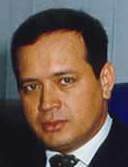
D. Cabello |
Cabello (Rondón), Diosdado (b. April 15, 1963, El Furrial, Monagas state, Venezuela), executive vice-president (2002), acting president (2002), and interior minister (2002-03) of Venezuela and governor of Miranda (2004-08). He was also minister of infrastructure (2003-04, 2008-09) and public works and housing (2009-10) and president of the National Assembly (2012-16) and the National Constituent Assembly (2018-20).
Cabello Blanco, Margarita (Leonor) (b. Feb. 12, 1957, Barranquilla, Colombia), justice minister of Colombia (2019-20). She has also been president of the Supreme Court of Justice (2016-17) and procuradora general (2020- ).
Cabello de Alba y Gracia, Rafael (b. Aug. 31, 1925, Montilla, Córdoba province, Spain - d. May 4, 2010, Madrid, Spain), second deputy prime minister and finance minister of Spain (1974-75).
Cabello Poleo, Pedro (José) (b. May 1933), governor of Monagas (1984-86). He was also Venezuelan education minister (1987-88).
Cabero Díaz, Alberto (b. March 20, 1874, Santiago, Chile - d. Oct. 13, 1955, Santiago), defense minister of Chile (1938-39). He was also president of the Senate (1932-33), minister of lands and colonization (1937), and ambassador to the United States (1939-42).
Cabeza de Vaca (Silva), Manuel (b. July 16, 1885, Quito, Ecuador - d. 19...), foreign minister of Ecuador (1933). He was also attorney-general (1928-30, 1952-56) and ambassador to Colombia (1944-46) and Venezuela (1946-47).
Cabezas Massés, Ramiro, finance minister of Bolivia (1988-89). He was also minister of revenue (1987-88).
Cabi, Martinho Ndafa (b. Sept. 17, 1957, Nhacra, Oio region, Portuguese Guinea [now Guinea-Bissau]), prime minister of Guinea-Bissau (2007-08). He was also minister of energy and natural resources (2004-05) and defense (2005).

J. Cable |
Cable, Jack, byname of Ivan John Cable (b. Aug. 17, 1934, Hamilton, Ont. - d. July 21, 2021), commissioner of Yukon Territory (2000-05).
Cable, Sir Vince, byname of Sir John Vincent Cable (b. May 9, 1943, York, England), British politician; knighted 2015. He was leader of the Liberal Democrats (2007 [acting], 2017-19) and president of the Board of Trade (2010-15).
Cabou, Daniel (b. June 16, 1929, Mandina, Senegal), finance minister of Senegal (1963-64). He was also minister of commerce, industry, and crafts (1964-68) and industrial development (1970-72) and secretary-general of the presidency (1968-70).
Cabral, Alfredo Lopes (b. 1946, Dakar, Senegal), Guinea-Bissauan diplomat. He was ambassador to Algeria, Tunisia, and the Middle East (1983-86), the United States, Canada, and Mexico (1987-96), and Belgium (2010-12, 2022- ), permanent representative to the United Nations (1986-90, 1996-99, 2003-10), and representative of the UN secretary-general in Haiti (1999-2001).
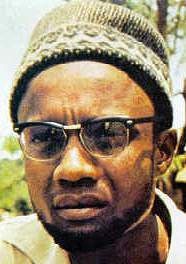
A. Cabral |
Cabral, Amílcar (Lopes) (b. Sept. 12, 1924, Bafatá, Portuguese Guinea - d. Jan. 20, 1973, Conakry, Guinea), Guinea-Bissau politician. Already determined to find ways of working for his country's independence, he served for two years in the colonial administration of Portuguese Guinea. His opinions became offensive to the governor of the colony, and Cabral transferred to Angola. There, late in 1956, he helped to form, with Agostinho Neto, the earliest important nationalist grouping of that colony, the Popular Movement for the Liberation of Angola (MPLA). A few months earlier, during a visit to Bissau, he also formed with five others the African Party for the Independence of Guinea and Cape Verde (Partido Africano da Independência da Guiné e Cabo Verde; PAIGC) and became its secretary-general. This small clandestine grouping pressed for political concessions by organizing strikes and demonstrations, but decided in September 1959, after the particularly violent repression of a strike in the Bissau docks, to prepare for armed action. It was from this period that Cabral began to demonstrate the personal qualities of patience, courage, and political farsightedness which were soon to make him, as well as the movement that he led, into a most formidable opponent of continued Portuguese colonial rule. The armed uprising of the PAIGC was launched in January 1963 and survived all Portuguese efforts at repression. In the late 1960s Cabral was the de facto ruler of the parts of Portuguese Guinea not occupied by army units from Portugal. In 1972 he established a Guinean People's National Assembly as a step toward independence. He was assassinated outside his home in Conakry, where his party had established its headquarters.
Cabral, Filomeno da Câmara Melo (b. March 10, 1873, Ponta Delgada, Azores, Portugal - d. Jan. 27, 1934, Lisbon, Portugal), governor of Portuguese Timor (1911-17), governor-general of Angola (1918-19, 1929-30), and finance minister of Portugal (1926).
Cabral, José Bernardo (b. March 27, 1932, Manaus, Brazil), justice minister of Brazil (1990).
Cabral, José Filipe Mendes Moraes (b. Dec. 6, 1950, Lisbon, Portugal), Portuguese diplomat. He has been ambassador to Israel (1999-2001), Spain (2004-08), and France (2013-17) and permanent representative to the United Nations (2009-13).
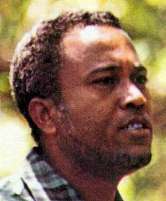
L. Cabral |
Cabral, Luís de Almeida (b. April 11, 1931, Bissau, Portuguese Guinea [now Guinea-Bissau] - d. May 30, 2009, Lisbon, Portugal), chairman of the Council of State of Guinea-Bissau (1973-80); half-brother of Amílcar Cabral. He became active in the trade union movement and the movement to liberate Portuguese Guinea from the colonial government. He was a founder of the African Party for the Independence of Guinea and Cape Verde (PAIGC) with Amílcar Cabral in 1956. Luís went into exile in 1960 to escape arrest from the colonial authorities. He served on PAIGC's Council of War from 1965 and took part in the guerrilla struggle. He was placed in charge of the reconstruction of liberated areas in Guinea-Bissau in 1970. By 1972 the PAIGC claimed to have won control over two-thirds of the country. Luís Cabral succeeded as PAIGC's leader following Amílcar's assassination on Jan. 20, 1973. He served as head of state after Guinea-Bissau's self-proclaimed independence from Sept. 26, 1973, acknowledged by Portugal the following year. He was deposed in a coup led by João Bernardo Vieira in November 1980. He was imprisoned until Jan. 1, 1982; he then went into exile in Cape Verde and later in Cuba and Portugal.
Cabral, Milton Bezerra (b. Oct. 6, 1921, Umbuzeiro, Paraíba, Brazil - d. Oct. 15, 2022, Rio de Janeiro, Brazil), governor of Paraíba (1986-87).
Cabrera, Rafael, finance minister of Nicaragua (1926-27).
Cabrera (Pérez de Sánchez), Thelma (b. Sept. 21, 1970, El Asintal, Retalhuleu, Guatemala), Guatemalan presidential candidate (2019).
Cabrera García, Cleto (b. April 26, 1888, La Paz, Bolivia - d. ...), interior and public works minister of Bolivia (1946).
Cabrera Hidalgo, (Luis) Alfonso (b. July 2, 1942), foreign minister of Guatemala (1987-89). He was also president of Congress (1986-87) and a presidential candidate (1990).
Cabrera Negrete, Luis (Abelardo) (b. May 1, 1871, Santiago, Chile - d. 19...), interior minister of Chile (1935-36).
Cabrisas Ruíz, Ricardo (b. Jan. 21, 1937, Havana, Cuba), a vice premier of Cuba (2008- ). He was also minister of external trade (1980-2000) and economy and planning (2016-18) and minister of government (2000-08).
Cabrita, Eduardo (Arménio do Nascimento) (b. Sept. 26, 1961), interior minister of Portugal (2017-21). He was also minister assistant to the prime minister (2015-17).
Caçapava, Francisco José de Souza Soares de Andréa, barão de (b. Jan. 29, 1781, Lisbon, Portugal - d. Oct. 2, 1858, São José do Norte, Rio Grande do Sul, Brazil), president of Pará (1836-39), Santa Catarina (1839-40), Rio Grande do Sul (1840, 1848-50), Minas Gerais (1843-44), and Bahia (1844-46). He was made baron in 1855.
Caccia, Gabriele Giordano (b. Feb. 24, 1958), Vatican diplomat. The archbishop has been apostolic nuncio to Lebanon (2009-17) and the Philippines (2017-19) and permanent observer to the United Nations (2019- ).
Cacequi, Francisco Antunes Maciel, barão de (b. March 2, 1836, Pelotas, Rio Grande do Sul, Brazil - d. Aug. 13, 1917, Rio de Janeiro, Brazil), interior minister of Brazil (1883-84). He was made baron in 1883.
Cáceres (Dorregaray), Andrés Avelino, original given names Andrés Alfredo (b. Feb. 4, 1833, Ayacucho, Peru - d. Oct. 10, 1923, Ancón, Peru), second vice president (1883 [insurrectionary government]) and president (1883-85 [acting, insurrectionary government], 1886-90, 1894-95) of Peru. He was also minister to France and the United Kingdom (1891-92).
Cáceres Contreras, Carlos (Francisco) (b. Oct. 7, 1940, Valparaíso, Chile), finance minister (1983-84) and interior minister (1988-90) of Chile. He was also president of the Central Bank (1982-83).
Cáceres Monié, José Rafael (b. July 6, 1918, Paraná, Entre Ríos, Argentina - d. Oct. 9, 2008, Buenos Aires, Argentina), defense minister of Argentina (1969-72). He was also ambassador to Paraguay (1966-69).
Cáceres Troncoso, Ramón (b. Dec. 26, 1930, Santo Domingo, Dominican Republic - d. June 4, 2020, Santo Domingo), member of the Triumvirate of the Dominican Republic (1964-65). He was also ambassador to Italy (1963-64).
Cáceres Velásquez, (Juan José) Luis (b. Dec. 27, 1930, Juliaca, Puno, Peru - d. June 25, 2021, Arequipa, Peru), Peruvian politician; brother of Roger Cáceres Velásquez. He was mayor of San Román (1964-70, 1975, 1981-83) and Arequipa (1987-92) and a minor presidential candidate (1995).
Cáceres Velásquez, Roger (Enrique Tomás) (b. Dec. 21, 1929, Juliaca, Puno, Peru), Peruvian politician. He was a minor presidential candidate (1980, 1985, 1990).
Cadavid (Ángel), Antonio José (b. Jan. 26, 1866, Titiribí, Antioquia, Colombia - d. June 12, 1919, Bogotá, Colombia), war minister of Colombia (1915-16).
Cadaxo, Edson Simões (b. Jan. 23, 1921, Boca do Acre, Amazonas, Brazil - d. Oct. 7, 2002, Rio Branco, Acre, Brazil), acting governor of Acre (1990-91).
Cadena Hernández, Ramón (b. July 28, 1922), Guatemalan diplomat. He was permanent representative to the United Nations (1966-67).
Cadieux, Léo Alphonse Joseph (b. May 28, 1908, Saint-Jérôme, Que. - d. May 11, 2005, Ottawa, Ont.), defence minister of Canada (1967-70). He was ambassador to France in 1970-75.
Cadillac, Antoine (Laumet) de Lamothe (b. March 5, 1658, Les Laumets [now in Tarn-et-Garonne], France - d. Oct. 15, 1730, Castelsarrasin [now in Tarn-et-Garonne]), governor of Louisiana (1713-16). Going to Canada in 1683, he fought against the Iroquois Indians, lived for a time in Maine, and first served in present-day Michigan as commandant of the important frontier post of Mackinac (1694-97). With permission from King Louis XIV, Cadillac established a Great Lakes fur-trading post and founded Fort-Pontchartrain du Détroit (1701), later called Detroit. He governed there until 1710, when his enemies in Quebec and Paris forced his removal to the new French colony of Louisiana (where he arrived in 1713). Increasingly unpopular there and himself dissatisfied with his appointment, Cadillac was recalled to France and was briefly confined in the Bastille (1717-18). He lived the rest of his life in retirement in Languedoc. The city of Cadillac, Mich.; Cadillac Mountain, Maine; and the Cadillac automobile are named for him.
Cadman, Radclyffe (Macbeth) (b. Jan. 13, 1924, Heatonville, Zululand, South Africa - d. Oct. 11, 2011), administrator of Natal (1984-90).
Cadogan, Sir Alexander (George Montagu) (b. Nov. 25, 1884, London, England - d. July 9, 1968, London), British diplomat; knighted 1934; son of George Henry Cadogan, Earl Cadogan. He was minister (1934-35) and ambassador (1935-36) to China, permanent representative to the United Nations (1946-50), and chairman of the British Broadcasting Corporation (1952-57).
Cadogan, George Henry Cadogan, (5th) Earl (b. May 9, 1840, Durham, England - d. March 6, 1915, London, England), lord lieutenant of Ireland (1895-1902). He was also British lord privy seal (1886-92). He succeeded as earl in 1873.
Cadore, Jean-Baptiste Nompère de Champagny, duc de (b. Aug. 4, 1756, Roanne [now in Loire département], France - d. July 3, 1834, Paris, France), interior minister (1804-07) and foreign minister (1807-11) of France. He was also ambassador to Austria (1801-04). He was created comte in 1808 and duc de Cadore in 1809.
Cadorna, Carlo (b. Dec. 8, 1809, Pallanza [now part of Verbania, Piemonte], Italy - d. Dec. 2, 1891, Rome, Italy), interior minister of Italy (1868). He was also Sardinian minister of education (1848-49, 1858-59) and president of the Chamber of Deputies (1857-58), prefect of Torino (1865), and Italian minister to the United Kingdom (1869-75).
Cadot, Michel (François Jacques) (b. May 22, 1954, Suresnes, Seine [now in Hauts-de-Seine], France), prefect of Martinique (2000-04), prefect of police of Paris (2015-17), and prefect of Paris département (2017-20). He was also prefect of the départements of Meuse (1998-2000), Maine-et-Loire (2004), Haute-Vienne (2007), Ille-et-Vilaine (2009-13), and Bouches-du-Rhône (2013-15).
Caetani, Onorato, duca di Sermoneta (b. Jan. 18, 1842, Rome, Papal State [now in Italy] - d. Sept. 2, 1917, Rome), foreign minister of Italy (1896). He was also mayor of Rome (1890-92).
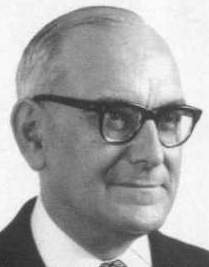
Caetano |
Caetano, Marcelo (José das Neves Alves) (b. Aug. 17, 1906, Lisbon, Portugal - d. Oct. 26, 1980, Rio de Janeiro, Brazil), prime minister of Portugal (1968-74). He served with Finance Minister António Salazar (later prime minister) in 1929 and helped to draft the constitution of 1933 and other legal documents of the "New State." In 1940 he became head of Mocidade Portuguesa, the national youth movement. He was vice-president of the Corporative Chamber, the upper house, and served as minister of the colonies (1944-47). Between 1950 and 1955 he was president of the Chamber, and in 1955 Salazar chose him as his right-hand man as minister of the presidency, a post he filled for three years. Despite his occasional disputes with Salazar, he wholeheartedly supported the latter's right-wing policies. When Salazar suffered a stroke in 1968, Caetano was appointed prime minister. He admitted an opposition and rectified the constitution. While Salazar rarely moved from Lisbon, Caetano made frequent trips abroad - to Africa, Latin America, the United States, and Europe. In 1970 he became the first prime minister to visit the Portuguese African territories. But Africa was at the centre of his downfall. The major part of the armed forces were engaged in policing the colonies and fighting guerrilla wars at an enormous cost to the nation. World opinion was against colonialism and there was universal concern at reports in 1973 that Portuguese troops had massacred 400 in Mozambique. Dissatisfaction in the army led to the "Revolution of the Flowers," which in 1974 overthrew the New State and drove Caetano into exile. He settled in Brazil.
Caethé, José Teixeira da Fonseca e Vasconcellos, barão e visconde de (b. Oct. 18, 1767, Sabará, Minas Gerais, Brazil - d. Feb. 10, 1838, Bom Jesus do Amparo, Minas Gerais), president of Minas Gerais (1824-27). He was made baron in 1825 and viscount in 1826.

J. Café |
Café, João (Fernandes Campos), Filho (b. Feb. 3, 1899, Natal, Rio Grande do Norte, Brazil - d. Feb. 20, 1970, Rio de Janeiro, Brazil), vice president (1951-54) and president (1954-55) of Brazil.
Café, Maria Mambo (b. Feb. 6, 1945, Cabinda, Angola - d. Dec. 1, 2013, Lisbon, Portugal), Angolan politician. She became the first woman member of the MPLA Politburo in 1985 and was minister of state for economic and social affairs (1986-88).
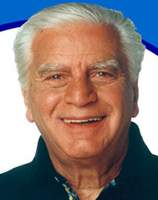
A. Cafiero |
Cafiero (Cafiero), Antonio (Francisco) (b. Sept. 12, 1922, Buenos Aires, Argentina - d. Oct. 13, 2014), federal interventor in Mendoza (1974-75), governor of Buenos Aires (1987-91), and cabinet chief of Argentina (2001-02). He was also minister of foreign trade (1952-55) and economy (1975-76) and ambassador to Chile (1992-93).
Cafiero (Goitía), Juan Pablo, byname Juampi (b. June 9, 1953, San Isidro, Buenos Aires province, Argentina), Argentinian politician; son of Antonio Cafiero. He was minister of social development (2001) and ambassador to the Vatican (2008-14).
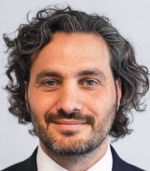
S. Cafiero |
Cafiero (Bianchi), Santiago (Andrés) (b. Aug. 30, 1979), cabinet chief (2019-21) and foreign minister (2021- ) of Argentina; son of Juan Pablo Cafiero.
Çagatay, Mustafa (b. April 20, 1937, Limassol, Cyprus - d. [car accident] April 3, 1989, Kyrenia [Girne], North Cyprus), prime minister of North Cyprus (1978-83). He was also minister of finance (1976-78) and labour, social affairs, and health (1978).
Cagigal (de la Vega) y Montserrat, Juan Manuel de (b. March 31, 1738, Santiago de Cuba, Cuba - d. Aug. 28, 1808, Valencia, Spain), governor of Cuba (1782); son of Francisco Antonio Cagigal de la Vega.
Cagigal de la Vega (Salinas y Acevedo), Francisco Antonio (b. Feb. 5, 1695, Hoz de Anero, Cantabria, Spain - d. April 30, 1777, Hoz de Anero), governor of Cuba (1747-60) and acting viceroy of New Spain (1760).
Çaglayangil, Ihsan Sabri (b. 1908, Constantinople, Ottoman Empire [now Istanbul, Turkey] - d. Dec. 30, 1993, Ankara, Turkey), foreign minister (1965-71, 1975-77) and acting president (1980) of Turkey. He was also governor of Yozgat (1949-50), Antalya (1950-53), Çanakkale (1953-54), Sivas (1954), and Bursa (1954-60), minister of labour (1965), and chairman of the Senate (1979-80).
Cahen, Alfred (b. Sept. 28, 1929, Elsene [now in Brussels-Capital region], Belgium - d. April 19, 2000, Brussels), secretary-general of the Western European Union (1985-89). He was also Belgian ambassador to France (1989-96).
Cahill, William T(homas) (b. June 25, 1912, Philadelphia, Pa. - d. July 1, 1996, Haddonfield, N.J.), governor of New Jersey (1970-74). He was a six-term congressman before he served as governor. In Congress, he was active in passage of the Civil Rights Act as a member of the House Judiciary Committee. He was a liberal Republican, pro-union and active in urban causes. He once singled out Richard Nixon for not paying more attention to domestic problems such as the urban decay affecting Newark. Cahill broke with fellow Republicans at times, praising students who protested Nixon's decision to invade Cambodia during the Vietnam War, and pushing to soften penalties for possessing small amounts of marijuana. As governor, he focused on the environment (the Department of Environmental Protection was created during his term), raised the state sales tax from 3% to 5% to balance the budget shortly after taking office, and also presided over introduction of a state lottery. But he lost an attempt to get voter approval of a state income tax recommended by a commission he had appointed. Opposition to his tax proposals and corruption charges against associates limited Cahill to one term as governor. Seeking a second term, he was defeated in the Republican primary - the only time he lost an election for public office.
Cahulla, João Aparecido (b. Feb. 11, 1954, Astorga, Paraná, Brazil), governor of Rondônia (2010-11).
Cai Chengxun (b. 1871, Tianjin, China - d. 1946, Tianjin), governor of Suiyuan (1917-20), civil governor of Gansu (1920-21), army minister of China (1921), and military and civil governor of Jiangxi (1922-24). He was graduated from Beiyang Military College and in 1911 became a brigade commander. After a series of promotions, he was named commander of the 1st Division during his term in Suiyuan. He was sent to Jiangxi after he left the cabinet, but was expelled from office by Fang Benren in 1924.

Cai E |
Cai E (b. Dec. 18, 1882, Shaoyang, Hunan, China - d. Nov. 8, 1916, Fukuoka, Japan), Chinese revolutionary general. He started his career of revolt against the Qing dynasty when he was only 18. Serving as the commander of the 37th Brigade, he declared independence in Yunnan shortly after the Wuchang Uprising of Oct. 10, 1911, and took office as military governor of Yunnan. He was put under house arrest by Pres. Yuan Shikai for his strong belief in democracy and admiration of revolutionary activist Song Jiaoren. He escaped from Beijing in 1915 and planned his revolt against Yuan's government. Having returned to Yunnan via Japan, he led an uprising there and then led his army into Sichuan. Winning several campaigns there, he soon put Sichuan under his control. He took office as Sichuan governor after Yuan's death in 1916, but died himself later that year.

Cai Tinggan |
Cai Tinggan (b. May 15, 1861, Zhongshan, Guangdong, China - d. Sept. 29, 1935, Beijing, China), foreign minister of China (1926). Having graduated from Tianjin Navy College, he served in the Chinese navy from 1892, and joined the sea warfare against the Japanese in 1894, in which he was wounded and captured. He was named director of the rank bureau subordinated to the minister of navy in 1911. After the republic was founded, he was made the senior military adviser of the president's office, as well as Pres. Yuan Shikai's secretary for English language. He was also involved in Chinese tariffs. As a senior adviser of the Chinese delegation for tariff negotiations, he participated in the Washington conference of 1921-22.

Cai Yuanpei |
Cai Yuanpei, Wade-Giles Ts'ai Yüan-p'ei (b. Jan. 11, 1868, Shaoxing, Zhejiang, China - d. March 5, 1940, Hong Kong), education minister of China (1912). A successful candidate in the imperial examination, he founded the "Chinese Educational Conference" in 1902 and started his propaganda work against the Qing dynasty. Having been the leader of the "Recover Association" (an anti-Qing organization) from 1903, he joined the Chinese Revolutionary Alliance (precursor of the Kuomintang) in 1905 in Shanghai. He was named education minister in Sun Yat-sen's Nanjing government and maintained his post after the capital moved to Beijing. Protesting Pres. Yuan Shikai's premier nomination of Lu Zhengxiang, he and other Kuomintang cabinet members resigned in June 1912. He later became the president of Peking University (1916-27), vowing to incorporate diverse ideas and theories into his college. He participated in the founding of the Chinese Human Rights Protective Alliance in 1932 and was nominated as its vice-president. He moved to Hong Kong on the outbreak of the war with Japan.
Cai Yunsheng (b. 1879, Shuangcheng, Jilin [now in Heilongjiang], China - d. December 1959), director of the Foreign Affairs Bureau of Manchukuo (1938-40). He was also governor of Jiandao province (1934-36) and economy minister (1940-42).
Caiado, Antonio José (b. 1826, Goiás, Goiás, Brazil - d. Aug. 8, 1899, Goiás, Goiás), acting president of Goiás (1883-84, 1884, 1892-93, 1895).
Caiado, Brasil Ramos (b. May 17, 1893, Goiás, Goiás, Brazil - d. [automobile accident] Aug. 28, 1958), president of Goiás (1925-29). He was also mayor of Goiás (1955-58).
Caiado, Brasílio Ramos (b. Aug. 8, 1929 - d. Sept. 23, 2006), Brazilian politician; son of Brasil Ramos Caiado. He was mayor of Goiás (1961-66).
Caiado, Leonino Di Ramos (b. Oct. 14, 1933, Goiás, Goiás, Brazil), governor of Goiás (1971-75); cousin of Brasílio Ramos Caiado. He was also mayor of Goiânia (1969-70).
Caiado, Ronaldo Ramos (b. Sept. 25, 1949, Anápolis, Goiás, Brazil), governor of Goiás (2019- ); nephew of Brasil Ramos Caiado; cousin of Brasílio Ramos Caiado and Leonino Di Ramos Caiado.
Caianiello, Vincenzo (b. Jan. 2, 1932, Aversa, Campania, Italy - d. April 26, 2002, Rome, Italy), justice minister of Italy (1996). He was also president of the Constitutional Court (1995).
Caiará, Augusto de Souza Leão, barão de (b. Dec. 13, 1830, Jaboatão [now Jaboatão dos Guararapes], Pernambuco, Brazil - d. Sept. 4, 1898, Olinda, Pernambuco), acting president of Pernambuco (1885, 1889). He was made baron in 1885.
Caicedo Ayerbe, Aurelio (b. May 4, 1921, Popayán, Cauca, Colombia - d. August 1998, Bogotá, Colombia), Colombian politician. He was chargé d'affaires in Peru (1950-51), minister of labour (1953-54) and education (1954-55), ambassador to the Vatican (1955-57), and permanent representative to the United Nations (1973-75).
Caillard, Henri Jean Auguste (b. June 12, 1872, Brive-la-Gaillarde, Corrèze, France - d. Jan. 10, 1926), administrator of Kwangchowan (1912-15).
Caillaux, (Alexandre) Eugène (b. Sept. 8, 1822, Orléans, Loiret, France - d. Aug. 8, 1896, Paris, France), finance minister of France (1877). He was also public works minister (1874-76).
Caillaux, Joseph (Pierre Marie Auguste) (b. March 30, 1863, Le Mans, Sarthe, France - d. Nov. 21, 1944, Mamers, Sarthe), prime minister of France (1911-12); son of Eugène Caillaux. He was also minister of finance (1899-1902, 1906-09, 1911, 1913-14, 1925, 1926, 1935) and interior and worship (1911-12) and president of the Radical Party (1913-14). He had to resign as finance minister in 1914 after his wife assassinated the editor of the Figaro, Gaston Calmette, who had led a press campaign against him. She was subsequently acquitted. During World War I he was himself arrested because of his advocacy of a negotiated peace; he was convicted in 1920 for wartime communication with the enemy and deprived of political rights for 10 years. Following an amnesty he returned to politics in 1925.
Cain, Herman (b. Dec. 13, 1945, Memphis, Tenn. - d. July 30, 2020, Atlanta area, Ga.), U.S. politician. President (1986-88) and chairman and CEO (1988-96) of Godfather's Pizza and president and CEO of the National Restaurant Association (1996-99), he was a candidate for the 2012 Republican presidential nomination.
Cain, John (b. Jan. 19, 1882, Greendale, Victoria [Australia] - d. Aug. 4, 1957, Townsville, Qld.), premier of Victoria (1943, 1945-47, 1952-55).
Cain, John (b. April 26, 1931, Melbourne, Vic. - d. Dec. 23, 2019, Melbourne), premier of Victoria (1982-90); son of the above.
Cain, (Thomas) William (b. June 1, 1935, Peel, Isle of Man - d. April 30, 2021, Strang, Isle of Man), acting lieutenant governor of the Isle of Man (2000). He was attorney general (1980-93), second deemster (1993-98), and first deemster (1998-2003).
Cairat Freixes, Francesc (b. April 3, 1880, Sant Julià de Lòria, Andorra - d. Dec. 19, 1968, Sant Julià de Lòria), first syndic of Andorra (1937-60).
Cairns, Don(ald Hunter) (b. Oct. 29, 1946), administrator of the British Indian Ocean Territory (1992-94).
Cairns, Hugh McCalmont Cairns, (1st) Earl (b. Dec. 27, 1819 - d. April 2, 1885, Bournemouth, Dorset, England), British lord chancellor (1868, 1874-80). He was also solicitor general (1858-59) and attorney general (1866). He was created Baron Cairns in 1867 and Earl Cairns and Viscount Garmoyle in 1878.
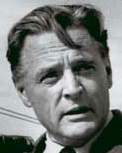
J. Cairns |
Cairns, Jim, byname of James Ford Cairns (b. Oct. 4, 1914, Carlton, near Melbourne, Vic. - d. Oct. 12, 2003, Narre Warren East, near Melbourne), Australian politician. He entered federal politics as the member for Yarra in 1955. He played a large role in keeping Catholic anti-Communists within the Victorian Labor Party at bay. He rose through the ranks particularly by his anti-Vietnam War stance. While the Labor Party remained ambivalent in the early years of the war, Cairns was quick to denounce Australia's strong support for the United States. It culminated in him leading huge antiwar marches, and in Labor's decision to oppose conscription and the war. He also opposed the White Australia policy. His strong position also aroused anger and in 1969 he and his family were bashed in their home, one of his attackers saying, "Who do you think you are - God?" Cairns took months to recover. He was defeated for the party leadership in 1966 when Arthur Calwell was replaced by Gough Whitlam as leader. Two years later, when Whitlam resigned the leadership in an internal squabble, Cairns lost again, falling six votes short of Whitlam. When Labor gained power in 1972 with Whitlam at the helm, Cairns was made trade and secondary industry minister. Among his achievements was a trade deal with China and closer links with the Middle East. Following the economic problems that confounded the government, he was made treasurer and deputy prime minister in 1974. In 1975, he was sacked as treasurer for allegedly misleading parliament over his involvement in overseas loan-raising, but within Labor the move was seen as punishment for an improper relationship with his office coordinator Junie Morosi. He spent a short period as environment minister before the Whitlam government was swept from office in 1975. In 1977 he retired.
Cairns, Sir William Wellington (b. 1828, Ireland - d. July 9, 1888, London, England), lieutenant governor of Malacca (1867-69), Saint Christopher (1869-70), and British Honduras (1870-74) and governor of Trinidad (1874), Queensland (1875-77), and South Australia (1877); knighted 1877. The city of Cairns in Queensland is named after him.
Cairoli, Carlos Molinari (b. Sept. 15, 1917, Uruguaiana, Rio Grande do Sul, Brazil), acting justice and interior minister of Brazil (1962, 1963).
Caix (de Saint-Aymour), Robert de (b. Feb. 5, 1869, Paris, France - d. March 12, 1970), acting high commissioner of Syria and Lebanon (1922-23).
Cajander, Aimo Kaarlo (b. April 4, 1879, Nystad [now Uusikaupunki], Finland - d. Jan. 21, 1943, Helsinki, Finland), prime minister (1922, 1924, 1937-39) and defense minister (1928-29) of Finland.

Cakaj |
Cakaj, Gent (b. July 6, 1990, Pristina, Kosovo, Serbia), acting foreign minister of Albania (2019-20).
Çakir, Hüseyin Hüsnü (b. 1892, Hopa, Ottoman Empire [now in Artvin province, Turkey] - d. Aug. 10, 1963, Istanbul, Turkey), defense minister of Turkey (1948-50). He was also governor of Gaziantep (1922-25), Ordu (1925), and Tokat (1925-26) and minister of economy (1938-41).
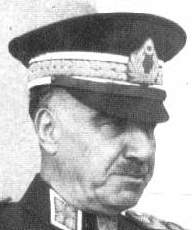
Çakmak |
Çakmak, (Mustafa) Fevzi, until Jan. 1, 1935, Mustafa Fevzi Pasha (b. Jan. 12, 1876, Istanbul - d. April 10, 1950, Istanbul), Turkish politician. A lieutenant in 1895, he was made lieutenant colonel and appointed chief of staff of an army corps in 1910. He fought in the Balkan Wars of 1912-13 as commander of a division, and in World War I as commander of an army corps and (in 1917-18) of an army. War minister in 1920, he resigned the commission and office granted him by the sultan and joined Kemal Atatürk's "rebellion" in Ankara. There he was made prime minister and minister of defense. Promoted to the rank of full general during the Greek invasion of Anatolia, he resigned his premiership in 1922 and became deputy to Ismet Inönü, then chief of staff. After the victorious conclusion of the War of Liberation, he was promoted as the new republic's first marshal and appointed chief of staff, holding this position for 20 years. With Atatürk and Inönü, he was one of the three statesmen who created modern Turkey. In the 1946 elections he stood as an independent and was elected with a great majority. In 1948 he accepted the honorary leadership of the Nation's (conservative) Party.
Çakmakoglu, Sabahattin (b. Nov. 25, 1930, Incesu, Kayseri, Turkey), interior minister (1991) and defense minister (1999-2002) of Turkey. He was also governor of Gümüshane (1972-75), Isparta (1975-78), Edirne (1978), Gaziantep (1979-80), and Mersin (1984-88).
Cakobau, Ratu Sir George (Kadavulevu), Vunivalu of Bau (b. Nov. 6, 1912, Bau island, Fiji - d. Nov. 25, 1989, Suva, Fiji), governor-general of Fiji (1973-83); knighted 1973; great-grandson of Ratu Seru Epenisa Cakobau. He was the first Fijian nobleman to be sent abroad for his education, studying in Australia and New Zealand. During World War II he served with distinction as an officer in the Fiji Military Forces fighting the Japanese in the Pacific islands. He was installed as Vunivalu, the traditional paramount chief, in 1959. Deeply attached to everything British, he was widely believed to be opposed to independence from Britain. But the large Indian population of the islands, outnumbering native Fijians, won the day. He served as minister for Fijian affairs and local government in 1970-71. In 1973, three years after independence, he became the first locally-born governor-general. In 1987 he received newly elected prime minister Timoci Bavadra, indicating his support for the new interracial government. He remained largely silent in the wake of the two military coups that followed in 1987, and the establishment of a republic in Fiji by military decree and the consequent severance of those links with the crown which he so cherished. However, when in March 1988 Ratu Sir Kamisese Mara, without apparently consulting Cakobau beforehand, set off for London to try to persuade the queen to retain the title of Tui Viti which was passed to Queen Victoria in 1874, Cakobau was outraged, saying, "The title came back to me when Fiji became independent in 1970. I have no plans to abdicate. The title is not Ratu Mara's to give away."
Cakobau, Ratu Seru Epenisa (b. 1815, Lakeba island, Fiji - d. February 1883), ruler (Vunivalu) of Bau (1852-74), president of the General Assembly of the Confederacy of Independent Kingdoms of Viti (1865-67), king of Bau (1867-69) and of Viti (1871-74). He embraced Christianity and later led chiefs across the island group to cede sovereignty to Queen Victoria and become part of the British Empire in 1874, thus ending years of bloody tribal warfare.
Cakste, Janis (b. Sept. 14, 1859, Lielsesava, Russia [now in Latvia] - d. March 14, 1927, Riga, Latvia), president of Latvia (1922-25, 1925-27). He edited a Latvian newspaper, Tevija ("Fatherland"), served on a committee appointed by the local administration to inquire into agricultural conditions in Courland (1902), and was frequently a member of Russian imperial government committees. He was elected to the first Russian Duma (assembly) in March 1906, and was one of those who signed the Viborg protest against its dissolution in July, losing his political privileges in consequence. When the German invasion of Courland (July 1915) in World War I obliged him to leave Jelgava, he moved to Petrograd, where he was one of the founders of the Latvian Refugees Committee, which, in addition to its relief work, supported Latvian autonomy. He went to Stockholm in 1916 to promote the cause of Latvian independence and wrote Die Letten und ihre Latwija (1917; "The Letts and Their Latvia"). Elected chairman of the Latvian People's Council in 1918, he was later the head of the delegation sent to London and to the Paris Peace Conference to secure the recognition of the Latvian republic. While he was absent on that mission, Cakste was elected president of the People's Council (1918); he was later elected president of the Constitutional Assembly (1920) and, when the first Saeima (parliament) convened, president of the Republic of Latvia (Nov. 14, 1922). He was reelected in November 1925 and died in office.
Calasans, João José de Bittencourt (b. June 12, 1811, Santa Luzia [now Santa Luzia do Itanhi], Sergipe, Brazil - d. Aug. 18, 1870, Santa Luzia), acting president of Sergipe (1847).
Calazans, José de (b. Aug. 27, 1863, Itabaiana, Paraíba, Brazil - d. Oct. 31, 1948, Aracaju, Sergipe, Brazil), president (1892-94, 1930) and federal interventor (1930) of Sergipe.
Calatrava (Peinado), José María (b. Feb. 26, 1781, Mérida, Spain - d. Jan. 16, 1846, Madrid, Spain), prime minister and foreign minister of Spain (1836-37). He was also president of the Supreme Court (1840-43).
Calbetón y Blanchón, Fermín (b. Sept. 4, 1853, San Sebastián, Spain - d. Feb. 4, 1919, Madrid, Spain), finance minister of Spain (1918-19). He was also minister of development (1910-11).
Calcaño (y Paniza), Eduardo (b. Dec. 10, 1831, Cartagena, New Granada [now in Colombia] - d. Nov. 27, 1904, Caracas, Venezuela), foreign minister of Venezuela (1876-77, 1879). He was also minister to Spain (1882-84).
Caldas, Cândido (b. May 1, 1889, Desterro [now Florianópolis], Santa Catarina, Brazil - d. Jan. 16, 1966, Rio de Janeiro, Brazil), federal interventor in Bahia (1946-47).
Caldas, João Poupino (b. June 26, 1790, Cuiabá, Mato Grosso, Brazil - d. [assassinated] May 9, 1837, Cuiabá), acting president of Mato Grosso (1834); brother-in-law of André Gaudie Lei.
Caldecote, Thomas (Walker Hobart) Inskip, (1st) Viscount (b. March 5, 1876, Clifton, Bristol, England - d. Oct. 11, 1947, Enton Green, near Godalming, Surrey, England), British politician. He was solicitor general (1922-24, 1924-28, 1931-32), attorney general (1928-29, 1932-36), minister for coordination of defence (1936-39), secretary of state for dominion affairs (1939, 1940), lord chancellor (1939-40), and lord chief justice (1940-46). He was knighted in 1922 and created viscount in 1939.
Caldeira, Álvaro Teles (d. [assassinated] Jan. 24, 1871, Cacheu, Bissau [now Guinea-Bissau]), captain-major of Bissau (1869-71).
Calder, James Alexander (b. Sept. 17, 1868, Oxford county, Ont. - d. July 20, 1956, Ottawa, Ont.), acting defence minister of Canada (1920). He was also minister of immigration and colonization (1917-21), acting minister of agriculture (1919), and president of the Privy Council and minister in charge of health (1920-21).
Caldera (Pietri), Juan José (b. Feb. 4, 1948, Caracas, Venezuela), governor of Yaracuy (1979-82); son of Rafael Caldera.

R. Caldera |
Caldera (Rodríguez), Rafael (Antonio) (b. Jan. 24, 1916, San Felipe, Yaracuy, Venezuela - d. Dec. 24, 2009, Caracas, Venezuela), president of Venezuela (1969-74, 1994-99). He entered politics in the 1930s, and in 1946 founded the Social-Christian COPEI party, a movement grounded in the middle class. He helped revive democracy as one of the three signers of the Punto Fijo pact, which organized elections after the fall of dictator Gen. Marcos Pérez Jiménez in 1958. Under the pact, COPEI and Rómulo Betancourt's Democratic Action party shared power for 40 years. Viewed by many as the grandfather of Venezuelan politics, Caldera ran in six presidential elections and won twice, in 1969 and 1993. Tough with political adversaries and inclined toward populism, he was also known for living simply and for integrity in a country where corruption was common. Caldera's supporters said his second term, during which he grew increasingly frail to the point of infirmity, brought relative political stability to Venezuela. The country had been buffeted by 1989 price riots, two 1992 military coup attempts, and the 1993 dismissal of a president who later was tried and convicted on corruption charges. Caldera's critics argued that he fell short on his promises to restructure and modernize an inefficient state apparatus. They noted that he presided over two devaluations in three years and left Latin America's fourth-largest economy in deep recession. In 1994, Caldera pardoned Hugo Chávez, who was jailed for leading one of the failed coups two years earlier. But Caldera was later deeply at odds with Chávez, who came to succeed him as president.

N.J. Caldera | 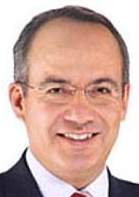
F. Calderón |
Caldera Cardenal, Norman José (b. Oct. 21, 1946, Managua, Nicaragua), foreign minister of Nicaragua (2002-07). He was also minister of development, industry, and trade (1999-2001).
Calderón (Reyes), Clímaco (b. Aug. 23, 1852, Santa Rosa de Viterbo, Boyacá, New Granada [now Colombia] - d. July 19, 1913, Bogotá, Colombia), foreign minister (1881-82, 1904-06) and president (1882) of Colombia. He was also minister to the United States (1899-1900).
Calderón, Erasmo, interior and justice minister of Nicaragua (1896-98).
Calderón (Hinojosa), Felipe (de Jesús) (b. Aug. 18, 1962, Morelia, Michoacán, Mexico), president of Mexico (2006-12). His father, Luis Calderón Vega, had been among the founding members of the pro-business National Action Party (PAN) in 1939. From a young age Felipe Calderón helped in political campaigns. He rose through the ranks of PAN, becoming the leader of its youth movement in 1986 and then secretary-general (1993-95) and president (1996-99) of the party. Meanwhile he was elected to the legislative assembly of the Distrito Federal (1988-91) and to the federal Chamber of Deputies (1991-94). He ran unsuccessfully for governor of Michoacán in 1995. Returning to the Chamber of Deputies in 2000, he was designated as coordinator of the PAN parliamentary group. Vicente Fox, the first PAN candidate to be elected president of Mexico (2000-06), named him director-general of the national development bank (Banobras) in 2003 and then appointed him to the cabinet as energy minister (2003-04). Calderón unexpectedly ran for the PAN presidential nomination in the 2005 primaries and defeated Fox's preferred candidate, Santiago Creel. In the presidential election of July 2, 2006, Calderón finished first with 35.9% of the vote, leading Andrés Manuel López Obrador of the left-wing Party of the Democratic Revolution (PRD), by a mere 0.6% of the vote. López Obrador refused to concede the election, demanded a full recount, and initiated a series of massive street demonstrations that continued for weeks. After a partial recount, the Federal Electoral Tribunal declared Calderón president-elect on September 5. Calderón was inaugurated in the Congress building on December 1, while PRD legislators blew whistles in the chamber and up to 100,000 protesters demonstrated outside. The following week - in an effort to undermine López Obrador's support by appropriating his key issues - he announced plans to reduce salaries for himself and other top government officials and to increase spending for education, health insurance for the poor, housing, and public safety. He oversaw the passage of legislation to reform Mexico's judicial system and worked to strengthen the energy sector, increase the number of jobs, and fight crime and drug cartels. But drug-related violence only got worse, some 60,000 people being killed during his presidency.
Calderón, Pedro José (b. 1832, Lima, Peru - d. 1885), foreign minister (1864-65, 1879-81) and prime minister (1865) of Peru. He was also minister to Germany and Austria-Hungary (1871-72).
Calderón (Chirinos), Serapio (b. Sept. 14, 1843, Paucartambo, Cusco, Peru - d. April 2, 1922, Cusco, Peru), second vice president (1903-04) and acting president (1904) of Peru. He was also prefect of Cusco (1890).
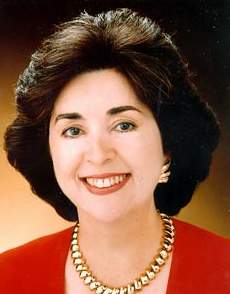
S.M. Calderón |
Calderón (Serra de Cantero Frau), Sila María (b. Sept. 23, 1942, San Juan, Puerto Rico), governor of Puerto Rico (2001-05). When Luis Silva Recio, a former professor of Calderón's, was chosen as Puerto Rico's secretary of labour in 1973, she became his executive assistant. In 1984 she served as the special assistant to Gov. Rafael Hernández Colón, who the following year appointed her chief of staff, and she then served as secretary of the interior before becoming secretary of state in 1988. She was elected mayor of San Juan in 1996 and was later chosen as head of the Popular Democratic Party. In the 1998 referendum on statehood organized by pro-statehood governor Pedro Rosselló, she led the pro-commonwealth campaign; her efforts were rewarded when the majority voted in favour of commonwealth status. In running for governor in 2000, she promised to end corruption and the U.S. Navy's bombing exercises on Vieques, an island off the east coast of the main island of Puerto Rico that had been used for naval exercises since 1941. Her strong antibombing stance, plus the killing of a security officer by an errant bomb in 1999 and the island's alarmingly high cancer rate (which many attributed to the exercises), brought her the victory. Immediately after her inauguration she vowed to step up efforts to end the military use of the island. On April 24, 2001, she launched legal action against the U.S. government, basing the suit on the Noise Control Act of 1972. Although U.S. president George W. Bush initially resisted ending the exercises, in June his administration announced that the bombings would be permanently halted in 2003. Having divorced her longtime husband Adolfo Krans soon after taking office, she married her former secretary of economic development, Ramón Cantero Frau, in 2003.
Calderón (Reyes), Víctor (b. 1867, Santa Rosa de Viterbo, Boyacá, Colombia - d. 1909, Bogotá, Colombia), war minister of Colombia (1908-09); half-brother of Clímaco Calderón.
Calderón Berti, Humberto (b. Oct. 21, 1941, Boconó, Trujillo state, Venezuela), foreign minister of Venezuela (1992). He was also minister of energy and mines (1979-83). In 2019 he was ambassador to Colombia for the Juan Guaidó government.
Calderón Collantes, Saturnino (b. 1799, Reinosa, Cantabria, Spain - d. Oct. 10, 1864, Paris, France), interior minister (1839-40) and foreign minister (1858-63) of Spain. He was also minister of commerce, education, and public works (1850-51).
Calderón de la Barca (y Belgrano), Ángel (baptized Oct. 2, 1790, Buenos Aires, Viceroyalty of the Río de la Plata [now in Argentina] - d. May 31, 1861, San Sebastián, Spain), foreign minister of Spain (1853-54). He was also minister to the United States (1835-39, 1844-53) and Mexico (1839-41).
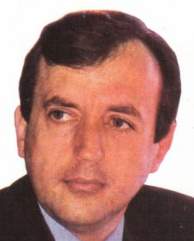
Calderón F. | 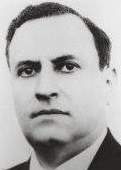
Calderón G. |
Calderón Fournier, Rafael Ángel (b. March 14, 1949, Diriamba, Nicaragua), foreign minister (1978-80) and president (1990-94) of Costa Rica; son of Rafael Ángel Calderón Guardia. He was an unsuccessful presidential candidate in 1982 and 1986. He was arrested in October 2004 after being accused of taking an illegal commission during a government purchase of medical equipment from Finland. The first former head of state to be tried for corruption in Costa Rica, he was sentenced to five years in jail in October 2009.
Calderón Guardia, Rafael Ángel (del Socorro) (b. March 10, 1900, San José, Costa Rica - d. June 9, 1970, San José), president of Costa Rica (1940-44). He entered politics in 1934, serving as president of Congress (1938-40). He was leader of the Republican, or Calderista, party. As president, he brought Costa Rica into World War II on the Allied side and cooperated closely with the United States. He was an unsuccessful presidential candidate in 1948 and 1962. He later served as ambassador to Mexico (1966-70).
Calderón Muñoz, Abdón (b. Jan. 20, 1925, Milagro, Ecuador - d. Dec. 9, 1978, Miami, Fla.), Ecuadorian presidential candidate (1978). He was mortally wounded by unidentified gunmen in Guayaquil on Nov. 29, 1978, and flown to Miami for treatment, where he died. In 1981 former interior minister Gen. Bolívar Jarrín Cahueñas was found guilty of ordering the murder.

A. Calderón |
Calderón Sol, Armando (b. June 24, 1948, San Salvador, El Salvador - d. Oct. 9, 2017, Houston, Texas), president of El Salvador (1994-99). He was also mayor of San Salvador (1988-94).
Caldoro, Stefano (b. Dec. 3, 1960, Campobasso, Molise, Italy), president of Campania (2010-15). He was also Italian minister without portfolio (implementation of the government program) (2005-06).
Caldwell, João Frederico (b. 1801, Santarém, Portugal - d. Feb. 26, 1873, Rio de Janeiro, Brazil), war minister of Brazil (1870).
Calero y Sierra, Manuel (b. Dec. 28, 1868, Paso del Toro hacienda, Veracruz, Mexico - d. Aug. 19, 1929, Veracruz, Veracruz), foreign minister of Mexico (1911-12). He was also minister of development (1911) and justice (1911) and ambassador to the United States (1912-13).

Calfa |
Calfa, Marián (b. May 7, 1946, Trebisov, Czechoslovakia [now in Slovakia]), prime minister of Czechoslovakia (1989-92). He was also minister without portfolio (1988-89), a first deputy premier (1989), and joint acting interior minister (1989).
Calheiros, José Renan Vasconcelos, Filho (b. Oct. 8, 1979, Murici, Alagoas, Brazil), governor of Alagoas (2015-22); son of Renan Calheiros. He has also been Brazilian minister of transport (2023- ).
Calheiros, (José) Renan (Vasconcelos) (b. Sept. 16, 1955, Murici, Alagoas, Brazil), justice minister of Brazil (1998-99). He was also president of the Senate (2005-07, 2013-17).
Calhoun, James M. (b. Feb. 12, 1811, Abbeville county, S.C. - d. Oct. 1, 1875, Atlanta, Ga.), mayor of Atlanta (1862-65); cousin of John C. Calhoun.
Calhoun, John C(aldwell) (b. March 18, 1782, near Calhoun Mills [now Mount Carmel], S.C. - d. March 31, 1850, Washington, D.C.), U.S. secretary of war (1817-25), vice president (1825-32), and secretary of state (1844-45). He was elected to South Carolina's state legislature in 1808 and the U.S. House of Representatives in 1810. There he soon became acting chairman of the committee on foreign affairs, supported the measures which led to the War of 1812 (1812-15) with Great Britain, and promoted the protective tariff. In 1817 he joined Pres. James Monroe's cabinet and reorganized the War Department. He eagerly sought the presidency for himself but was never successful, becoming, however, vice president under both John Quincy Adams and Andrew Jackson. His Address to the People of South Carolina (1831) set forth his theory of state rights. On the passing by South Carolina in 1832 of the nullification ordinance he resigned the vice presidency, and entered the Senate, becoming a leader of the states-rights movement, working to unite the South against the abolitionist attack on slavery, an institution he defended as a "positive good." Resigning from the Senate in 1843, he became secretary of state under Pres. John Tyler in 1844, in which role he signed a treaty annexing Texas. Elected to the Senate again in 1845, he strenuously opposed the Mexican War of 1846-47. His last effort was a vigorous protest against the Compromise of 1850, introduced by Henry Clay to avert a crisis between North and South. Calhoun, Clay, and Daniel Webster were known as the "great triumvirate" of U.S. political orators.
Calhoun, William Lowndes (b. Nov. 21, 1837, Decatur, Ga. - d. Nov. 16, 1908, Atlanta, Ga.), mayor of Atlanta (1879-80); son of James M. Calhoun.
Caliguiri, Richard S. (b. Oct. 20, 1931, Pittsburgh, Pa. - d. May 6, 1988, Pittsburgh), mayor of Pittsburgh (1977-88).
Calimachi-Catargi, Nicolae, also spelled Calimachi-Catargiu (b. Feb. 3, 1831 [or Feb. 24, 1830], Iasi, Moldavia [now in Romania] - d. Feb. 9, 1882, Paris, France), foreign minister of Romania (1869-70, 1870-71). He was also diplomatic agent to France (1877-80) and the United Kingdom (1880-81).
Calinescu, Armand (Mihai) (b. June 3 [May 22, O.S.], 1893, Pitesti, Romania - d. Sept. 21, 1939, Bucharest, Romania), prime minister of Romania (1939). He was an organizer for the National Peasant Party and in 1919 entered on a public political career as general secretary of the Ministry of Agriculture. In 1926 he was elected to parliament. In 1930 he was made undersecretary of state of the Ministry of the Interior. In December 1937 he became minister of interior in the National Christian cabinet of Octavian Goga. In February 1938 Romania was on the verge of serious disturbances, and Calinescu told King Carol that he could not guarantee the maintenance of order during the elections which were about to be held as the anti-Semitic partisans of Alexandru C. Cuza had gotten out of hand in the provinces. On the other hand, the Iron Guard, an equally anti-Semitic and conspiratorial body guilty of a long list of political assassinations, seemed almost certain to be returned in such a strength as to entitle it to office. King Carol dismissed Goga, entrusting the formation of a new cabinet to the Orthodox patriarch Miron Cristea. Calinescu remained interior minister and became in fact the driving force of the government, carrying on the fight against the Iron Guards, bringing them up to trial and subsequently obtaining from the courts heavy sentences on their leaders. When Cristea's health failed, Calinescu was appointed vice premier and war minister, and he became premier on the patriarch's death (March 1939). He was one of the sponsors of the Romanian National Renaissance Front, aiming at uniting in one group all the Romanian political parties. But his plans were cut short when he was assassinated by Guardist terrorists.
Call, Guillermo (Antonio) (b. March 11, 1940), governor of Monagas (1986-87, 1989-95, 2000-04).
Call, Richard K(eith) (b. Oct. 24, 1792, Prince George county, Va. - d. Sept. 14, 1862, Tallahassee, Fla.), governor of Florida (1836-39, 1841-44).

Callaghan |
Callaghan of Cardiff, (Leonard) James Callaghan, Baron (b. March 27, 1912, Portsmouth, Hampshire, England - d. March 26, 2005, Ringmer, East Sussex, England), prime minister of the United Kingdom (1976-79). By 1936 he had become a full-time trade-union official. He entered Parliament in 1945, representing the Welsh constituency of Cardiff South. Between 1947 and 1951 Callaghan held junior posts at the Ministry of Transport and at the Admiralty. When Harold Wilson's Labour government was formed in 1964, Callaghan was named chancellor of the exchequer. In this capacity he helped secure in 1966-67 international agreement to a system called Special Drawing Rights, which in effect created a new kind of international money. He resigned from the exchequer in 1967, when he was forced to devalue the pound sterling. He then served as home secretary until 1970. In Wilson's second government in 1974, Callaghan was named foreign secretary; and in 1976, upon Wilson's resignation, Callaghan succeeded him as prime minister, largely because the Parliamentary Labour Party considered him the least divisive candidate. A moderate within the party, he tried to stem the increasingly vociferous demands of Britain's trade unions. He also had to secure the passage of unpopular spending cuts early in his ministry. His reassuring public manner came to be criticized as complacency when a series of labour strikes in 1978-79 paralyzed hospital care, refuse collection, and other essential services. In March 1979 his government was brought down by a vote of no confidence passed in the House of Commons, the first such occurrence since 1924. At the subsequent general election, Labour was defeated. On Oct. 15, 1980, he resigned as party leader, to be succeeded by Michael Foot. He was knighted and shortly afterward created a life peer in 1987.
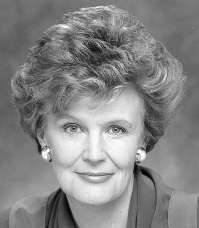
Callbeck |
Callbeck, Catherine S(ophia) (b. July 25, 1939, Central Bedeque, P.E.I.), premier of Prince Edward Island (1993-96). Callbeck's political career began with her election to the island legislature in 1974, where she served until 1978. She was elected to parliament in 1988, but resigned in November 1992 to seek the Liberal leadership in the province, which she won in January 1993. She led the Liberals to victory in every seat but one in the March 1993 election. She became the first woman elected to lead a Canadian provincial government. (Canada's first female premier was Rita Johnston in British Columbia, who took over after a resignation but was then defeated in elections.) Callbeck, who could have remained in office until early 1998, resigned on Aug. 6, 1996. The unexpected resignation followed reports of dissension within her Liberal Party after she decided against calling an early election in June. Opposition leaders said Callbeck backed off because support for her government had fallen. Callbeck also quit the Liberal Party leadership. On Sept. 23, 1997, she was called to the Senate of Canada.
Calle (Girón), Wilver (Alfredo) (b. March 1, 1946, Lima, Peru), interior minister of Peru (2012).
Calle Restrepo, Diego (b. July 18, 1926, Ciudad Bolívar, Antioquia, Colombia - d. Oct. 20, 1985, Medellín, Colombia), finance minister of Colombia (1964-65). He was also ambassador to Canada (1965-66) and governor of Antioquia (1970-73).
Calle y Calle, Juan José (b. March 12, 1925, Arequipa, Peru - d. 2002), Peruvian diplomat. He was ambassador to the Soviet Union (1973-79) and Spain (1986-88) and permanent representative to the United Nations (1980-82).
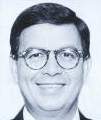
R.L. Callejas |
Callejas (Romero), Rafael Leonardo (b. Nov. 14, 1943, Tegucigalpa, Honduras - d. April 4, 2020, Atlanta, Ga.), president of Honduras (1990-94); nephew of Policarpo Callejas Bonilla. He was also minister of agriculture and natural resources (1978-80). He was an unsuccessful presidential candidate in 1985 before winning in 1989.
Callejas, Santiago, war and navy minister (1893) and finance minister (1895-96) of Nicaragua.
Callejas Bonilla, Policarpo (b. Sept. 17, 1926, Tegucigalpa, Honduras - d. March 10, 2013, Tegucigalpa), Honduran diplomat. He was permanent representative to the United Nations (1964-65) and ambassador to Costa Rica (1965-71).
Calleri (conte) di Sala, Edoardo (b. 1927? - d. April 20, 2002, Turin, Italy), president of Piemonte (1970-73).
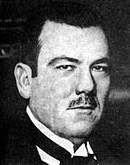
P.E. Calles |
Calles, Plutarco Elías, original name Francisco Plutarco Elías Campuzano (b. Sept. 25, 1877, Guaymas, Sonora, Mexico - d. Oct. 19, 1945, Mexico City, Mexico), president of Mexico (1924-28). He joined the struggle of Francisco Madero against the dictatorship of Porfirio Díaz in 1910. Calles was an extremely gifted organizer and leader and a general in the battles, first against Victoriano Huerta, who had assassinated Madero, and then against Pancho Villa and his rebel forces. In 1917-19 (and provisionally in 1915-16) Calles was governor of Sonora. Appointed secretary of commerce, labour, and industry under Pres. Venustiano Carranza, he resigned to support the candidacy of Álvaro Obregón and was instrumental in overthrowing Carranza in 1920. Calles served as secretary of war under Adolfo de la Huerta (1920) and then as secretary of the interior under Obregón (1920-24). In 1924 Calles was elected president. Although becoming increasingly conservative, he sponsored agrarian, labour, and educational reforms. His term was marked also by difficulties with the Roman Catholic Church and the United States. President-elect Obregón was assassinated in 1928, and for the next six years Calles was the real power behind three puppet presidents, besides holding office as secretary of war (1929, 1931-32) and finance and public credit (1933-34). His base was the Partido Nacional Revolucionario (PNR), which he organized in 1929; its support of a candidate was tantamount to election. In those six years the more radical aspects of the revolution were methodically curbed. But by 1934, left-wing groups had begun to control the PNR, and Calles had to support their candidate for president, Lázaro Cárdenas. This deteriorated into an open break, and Calles was forced into exile in 1936. He lived in California until 1941, when he was permitted to return.
Calles (Rojas), Rafael (José) (b. Sept. 4, 1970, Guanare, Portuguesa, Venezuela), governor of Portuguesa (2017-21).
Callimachi, Alexandru Ioan (b. 1737 - d. 1821), prince of Moldavia (1795-99); son of Ioan Teodor Callimachi; son-in-law of Scarlat Grigore Ghica. He was also grand dragoman of the Porte (1785-88).
Callimachi, Grigore Ioan (b. 1735 - d. [executed] Sept. 8 [Aug. 28, O.S.], 1769, Constantinople, Ottoman Empire [now Istanbul, Turkey]), prince of Moldavia (1761-64, 1767-69); son of Ioan Teodor Callimachi.
Callimachi, Ioan Teodor (b. c. 1690 - d. 1780), prince of Moldavia (1758-61). He was also grand dragoman of the Porte (1741-51, 1752-58).
Callimachi, Scarlat Alexandru (b. 1773, Constantinople, Ottoman Empire [now Istanbul, Turkey] - d. [assassinated?] October 1821, Bolu, Ottoman Empire [now in Turkey]), prince of Moldavia (1806, 1812-19) and Walachia (1821); son of Alexandru Ioan Callimachi.
Calmon, Francisco Marques de Góes (b. Nov. 6, 1874, Salvador, Bahia, Brazil - d. Jan. 29, 1932, Salvador), governor of Bahia (1924-28).
Calmon, Marc Antoine (b. March 3, 1815, Tamniès, Dordogne, France - d. Oct. 12, 1890, Soldepech, Lot, France), prefect of Seine département (1872-73).
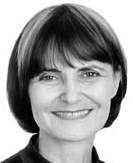
Calmy-Rey |
Calmy-Rey, Micheline (Anne-Marie), née Rey, official surname Calmy (b. July 8, 1945, Sion, Valais, Switzerland), president of the Council of State of Genève (2001-02) and foreign minister (2003-11), vice president (2006), and president (2007, 2011) of Switzerland.
Calógeras, João Pandiá (b. June 19, 1870, Rio de Janeiro, Brazil - d. April 21, 1934, Petrópolis, Rio de Janeiro, Brazil), finance minister (1915-17) and war minister (1919-22) of Brazil. He was also minister of agriculture (1914-15).
Calonder, Felix (Louis) (b. Dec. 7, 1863, Scuol, Graubünden, Switzerland - d. June 14, 1952, Zürich), president of the Council of States (1911-12), interior minister (1913-17), foreign minister (1918-19), and president (1918) of Switzerland.
Calonge (y Fenollet), Eusebio (b. Dec. 15, 1814, Vitoria, Spain - d. October 1873, Madrid, Spain), foreign minister of Spain (1866-67). He was also captain-general of the Canary Islands (1852) and Navarra (1852-54) and minister of navy (1866).
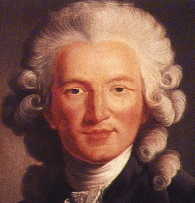
Calonne |
Calonne, Charles Alexandre de (b. Jan. 20, 1734, Douai, France - d. Oct. 29, 1802, Paris, France), French statesman. He held various posts in French Flanders and in Artois before becoming intendant of Metz (1768) and of Lille (1774). His financial genius and court connections led to his appointment as controller general of finance in November 1783. At that time the French government was heavily in debt. Calonne reconstituted a sinking fund (1784) to pay off the debt, and in 1785 he reformed the gold coinage. He soon discovered, however, that major reforms were necessary to save France from bankruptcy. In August 1786 he submitted to King Louis XVI a far-reaching plan of reform that involved increasing the taxation of the privileged noble and clerical orders through a proportional tax on land. Recognizing that the Parlements (high courts of justice) would reject his proposals, Calonne submitted them instead to a special Assembly of Notables - nobles, clergy, and magistrates - which convened on Feb. 22, 1787. Nevertheless, the intrigues of his political opponents and the antagonism of the higher clergy and magistrates in the assembly thwarted his efforts. His revelation of the annual deficit of more than 100,000,000 livres and the failure of his reform schemes ensured the summons of the Estates-General in August 1788, which in turn led directly to the French Revolution. In April 1787 Louis XVI dismissed Calonne from office, and four months later he withdrew to England. After the Revolution began, Calonne devoted himself to the cause of counterrevolution. He was chief adviser to the émigrés (nobles in exile) from December 1790 until the fall of the monarchy in August 1792. In 1802, during Napoléon Bonaparte's Consulate regime, he returned to France. He died soon thereafter.
Calovski, Naste (b. April 22, 1933, Galicnik, Yugoslavia [now in North Macedonia]), Macedonian diplomat. He was Yugoslav ambassador to Malaysia (1983-87) and permanent representative of Macedonia to the United Nations (1997-2001).
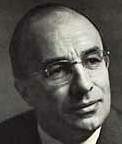
Cals |
Cals, Jo(seph Maria Laurens Theo) (b. July 18, 1914, Roermond, Limburg, Netherlands - d. Dec. 30, 1971, The Hague, Netherlands), prime minister of the Netherlands (1965-66). He was also minister of education, arts, and sciences (1952-63).
Calvani (Silva), Arístides (b. Jan. 10, 1918, Port-of-Spain, Trinidad - d. [air accident] Jan. 18, 1986, Petén forest, Guatemala), foreign minister of Venezuela (1969-74).
Calvel, Auguste (Marie Léon) (b. Aug. 28, 1892 - d. May 11, 1981), governor of French Sudan (1942-46).
Calvert, Benedict Leonard (b. Sept. 20, 1700, Ditchley Park, Oxfordshire, England - d. June 1, 1732, at sea), governor of Maryland (1727-31); son of Benedict Leonard Calvert, Baron Baltimore.
Calvert, Charles, formerly Charles Lazenby Calvert (b. c. 1688 - d. Feb. 2, 1734, Maryland), governor of Maryland (1720-27). He may have been an illegitimate son of Charles Calvert, (3rd) Baron Baltimore.
Calvert, Leonard (b. 1606, England - d. June 9, 1647, St. Mary's, Maryland), governor of Maryland (1634-47).
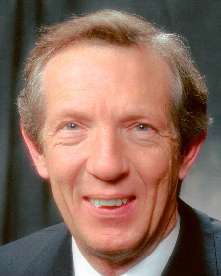
Lorne Calvert |
Calvert, Lorne (Albert) (b. Dec. 24, 1952, Moose Jaw, Sask.), premier of Saskatchewan (2001-07).
Calvo (y Díaz de Lamadrid), Bartolomé (b. Aug. 24, 1815, Cartagena, New Granada [now in Colombia] - d. Jan. 2, 1889, Quito, Ecuador), acting president of New Granada (1861). He was also governor of Panamá (1856-58) and minister to Ecuador (1886-89).
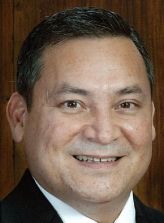
E. Calvo |
Calvo, Eddie (Baza), byname of Edward Jerome Baza Calvo (b. Aug. 29, 1961, Tamuning, Guam), governor of Guam (2011-19); son of Paul M. Calvo.
Calvo, Luis, interior and justice minister (1931-32) and finance minister (1943) of Bolivia.
Calvo (Cuéllar), Mariano Enrique (b. July 18, 1782, La Plata, Viceroyalty of Peru [now Sucre, Bolivia] - d. July 29, 1842, Cochabamba, Bolivia), foreign minister (1829-31, 1833-35), vice president (1835-39), and acting president (1841) of Bolivia.
Calvo, Paul M(cDonald) (b. July 25, 1934, Agana, Guam), governor of Guam (1979-83).
Calvo Calbimontes, Carlos (b. 1876, Sucre, Bolivia - d. May 31, 1942, Buenos Aires, Argentina), foreign minister of Bolivia (1933-34). He was also chargé d'affaires in Chile (1909-11), minister of education and agriculture (1912-14), and minister to Brazil (1934-35).
Calvo Galindo, Carlos (b. May 5, 1940, La Paz, Bolivia - d. Feb. 3, 2007, La Paz), finance minister of Bolivia (1976-77).
Calvo Rosales, Joaquín Bernardo (b. Aug. 20, 1799, Cartago, Costa Rica - d. Oct. 20, 1865, San José, Costa Rica), foreign minister of Costa Rica (1844-46, 1847-56). He was also finance and war minister (1844), interior minister (1844-46, 1847-59), and president of the Senate (1864-65).
Calvo Sotelo, José, posthumously (from 1948) duque de Calvo Sotelo (b. May 6, 1893, Tuy, Pontevedra, Spain - d. [assassinated] July 13, 1936, Madrid, Spain), finance minister of Spain (1925-30). He was also civil governor of Valencia (1921-22).

Calvo-Sotelo |
Calvo-Sotelo y Bustelo, Leopoldo (Ramón Pedro), from June 24, 2002, marqués de la Ría de Ribadeo (b. April 14, 1926, Madrid, Spain - d. May 3, 2008, Pozuelo, Spain), prime minister of Spain (1981-82); nephew of José Calvo Sotelo. Although he held ministerial office from the end of the Franco era, he first gained political prominence for his role in helping to organize the Christian Democrats and groups further to the right into the Unión Centro Democrático (UCD) in time to win the June 1977 elections. In the subsequent administration he was rewarded with the post of minister without portfolio, in charge of negotiating Spain's accession to the European Communities (EC). Following the resignation of Premier Adolfo Suárez González and the abortive coup of Feb. 23-24, 1981, Deputy Premier Calvo-Sotelo took over the premiership on February 25 and with it the task of guiding Spain's uneasy transition from the authoritarianism of the Franco regime to Western European-style democracy. His task was rendered more difficult by conflict within the ruling UCD between right-wing Christian Democrats and "Suaristas" (followers of former premier Suárez). Calvo-Sotelo's election as UCD president in November, replacing Agustín Rodríguez Sahagún (Suárez's brother-in-law) would, it was hoped, consolidate the party under his leadership. Calvo-Sotelo was regarded as a superb administrator and surrounded himself with able technocrats. If his political talents were less marked than those of his predecessor, his credibility with the private sector and trade unions enabled him to achieve the lowest wage settlement in Spain's recent history. His critics faulted him for his lack of success, initially at least, in demonstrating his independence from the preceding government and for his lack of progress (through little fault of his own) in negotiating an agreement with the EC.
Calzada Rovirosa, José (Eduardo) (b. Aug. 21, 1964, Querétaro, Querétaro, Mexico), governor of Querétaro (2009-15); son of Antonio Calzada Urquiza. He was also Mexican minister of agriculture (2015-18).
Calzada Urquiza, Antonio (b. Sept. 9, 1931, Querétaro, Querétaro, Mexico - d. June 29, 2019), governor of Querétaro (1973-79). He was also mayor of Querétaro (1970-73) and Mexican ambassador to Colombia (1984-85).
Camacho (Vizcaíno), Antonio (b. Feb. 11, 1964, Madrid, Spain), interior minister of Spain (2011).
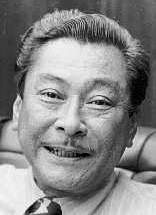
C.G. Camacho | 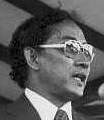
C.S. Camacho | 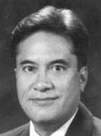
F. Camacho |
Camacho, Carlos G(arcia) (b. Nov. 16, 1924, Agana, Guam - d. Dec. 6, 1979, Agana), governor of Guam (1969-75).
Camacho, Carlos S(ablan) (b. Feb. 27, 1937, Garapan, Saipan, Northern Mariana Islands), governor of the Northern Mariana Islands (1978-82).
Camacho, Felix (Perez) (b. Oct. 30, 1957, Camp Zama, south of Tokyo, Japan), governor of Guam (2003-11); son of Carlos G. Camacho.
Camacho (de Alcorta), Juan Francisco (b. Sept. 26, 1813, Cádiz, Spain - d. Jan. 23, 1896, Madrid, Spain), finance minister of Spain (1872, 1874, 1881-83, 1885-86). He was also governor of the Bank of Spain (1883-84, 1891-92).
Camacho (Sinibaldi) de Torrebiarte, Adela (Ana María del Rosario) (b. March 30, 1949, Guatemala City, Guatemala - d. Dec. 15, 2020), interior minister of Guatemala (2007-08). She was a minor presidential candidate in 2011.
Camacho Leyva, Luis Carlos (b. Sept. 3, 1921, Fontibón, Cundinamarca, Colombia - d. Jan. 8, 1988, Bogotá, Colombia), defense minister of Colombia (1978-82). He was also commander of the army (1974-76) and the armed forces (1976-78).
Camacho Omiste, Edgar (b. Aug. 8, 1936, Oruro, Bolivia - d. Jan. 1, 2013, Cochabamba, Bolivia), foreign minister of Bolivia (1970, 1985). He was also permanent representative to the United Nations (1993-97), non-resident ambassador to India, Nepal, and Vietnam (1996-97), and ambassador to Brazil (2004-06).
Camacho Quiroz, César (Octavio) (b. Feb. 14, 1959, San Miguel Totocuitlapilco, México, Mexico), governor of México (1995-99). He was also mayor of Metepec (1990-93) and president of the Institutional Revolutionary Party (2012-15).
Camacho Roldán, Salvador (b. Jan. 1, 1827, Nunchía, Casanare, Colombia - d. June 19, 1900, Zipacón, Cundinamarca, Colombia), governor of Panamá (1852-53) and finance minister (1870-72), treasury minister (1878), and foreign minister (1878) of Colombia.
Camacho Rueda, Aurelio (b. May 25, 1912, San Gil, Santander, Colombia - d. 1994), interior minister of Colombia (1963-64). He was also minister of development (1961-62).
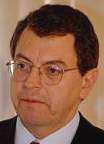
M. Camacho |
Camacho Solís, (Víctor) Manuel (b. March 30, 1946, Mexico City - d. June 5, 2015), chief of government of the Distrito Federal (1988-93) and foreign minister of Mexico (1993-94). He was also minister of urban development and ecology (1986-88). He was a member of the Institutional Revolutionary Party (PRI) from 1965 to 1995 but was a founding member of the Democratic Centre Party (PCD) in 1996 and its presidential candidate in 2000.
Camamú, José Egidio Gordilho Velloso de Barbuda, visconde de (b. Aug. 1, 1787, Chamusca, Rio Grande do Sul, Brazil - d. [assassinated] Feb. 28, 1830, São Salvador da Bahia [now Salvador], Bahia, Brazil), president of Rio Grande do Sul (1826) and Bahia (1827-30). He was made viscount in 1828.
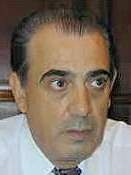
Camaño |
Camaño, Eduardo (Oscar) (b. June 17, 1946, Buenos Aires, Argentina), acting president of Argentina (2001-02). He was president of the Chamber of Deputies in 2001-05.
Camara, Arafan (b. 1947? - d. Jan. 6, 2008, Paris, France), defense minister of Guinea (2007).
Camara, Assan Musa, originally (before conversion to Islam in 1974) Andrew (David) Camara (b. April 21, 1923, Mansajang village, Gambia - d. Sept. 15, 2013), foreign minister (1968-74), vice president (1972-77, 1978-82), and finance minister (1977-79) of The Gambia. He was also minister without portfolio (1960-61) and minister of labour and health (1961-62), education, labour, and social welfare (1964-65, 1966-68), works and communications (1965-66), local government and lands (1974-77), and education, youth, and sports (1977, 1981-82). He was a presidential candidate in 1987 (winning 13.7% of the votes) and 1992 (8%).
Camara, Bonifacio Francisco Pinheiro da (b. May 14, 1813, Natal, Rio Grande do Norte, Brazil - d. Nov. 2, 1884, Natal), acting president of Rio Grande do Norte (1873).
Camara, Eugène (b. Jan. 21, 1942, N'Zérékoré, French Guinea [now Guinea] - d. Nov. 22, 2019, Egypt), prime minister of Guinea (2007). He was also governor of the administrative regions of Guinée Forestière (1992-94) and Kindia (1994-97) and minister of higher education and scientific research (1997-2004) and planning (2004-07).
Camara, Euzebio de Queiroz Coutinho Mattoso da, modern spelling Eusébio de Queirós Coutinho Matoso da Câmara (b. Dec. 27, 1812, São Paulo de Luanda [now Luanda], Angola - d. May 7, 1868, Rio de Janeiro, Brazil), justice minister of Brazil (1848-52).
Camara, Francisco de Queiroz Coutinho Mattoso da (b. Aug. 28, 1814, São Paulo de Luanda [now Luanda], Angola - d. ...), president of Rio Grande do Norte (1844); brother of Euzebio de Queiroz Coutinho Mattoso da Camara.
Camara, Iafai, armed forces minister of Guinea-Bissau (1984-91). He was also second deputy chairman (1984-89) and first deputy chairman (1989-91) of the Council of State.
Camara, Jeronymo Américo Raposo da (b. Nov. 14, 1843, Natal, Rio Grande do Norte, Brazil - d. Nov. 26, 1920, Natal), acting president of Rio Grande do Norte (1890, 1892); nephew of Jeronymo Cabral Raposo da Camara.
Camara, Jeronymo Cabral Raposo da (b. Jan. 11, 1821, Assu, Rio Grande do Norte, Brazil - d. May 24, 1900, São Gonçalo, Rio Grande do Norte), acting president of Rio Grande do Norte (1871, 1872); brother of Octaviano Cabral Raposo da Camara.
Camara, João Pedro Xavier da (b. May 19, 1843, São José, Santa Catarina, Brazil - d. Feb. 28, 1922, Rio de Janeiro, Brazil), president of Mato Grosso (1899).
Camara, José de Sá Bitencourt (b. Jan. 23, 1797, Camamu, Bahia, Brazil - d. Oct. 28, 1861, Camamu), president of Sergipe (1844).
Câmara, José Gonçalo da (d. 1782), governor of Angola (1779-82).
Câmara, José Sette, Filho (b. April 14, 1920, Alfenas, Minas Gerais, Brazil - d. May 30, 2002, Rio de Janeiro, Brazil), governor of Guanabara (1960) and prefect of the Distrito Federal (1961-62). He was also ambassador to Canada (1961), Switzerland (1963-64), and Czechoslovakia (1972-79) and permanent representative to the United Nations (1964-68).

Kamissa Camara | 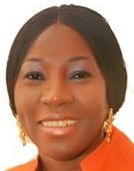
Kandia Camara |
Camara, Kamissa (b. 1983, Grenoble, France), foreign minister of Mali (2018-19).
Camara, Kandia (Kamissoko) (b. June 19, 1959, Abidjan, Ivory Coast [now Côte d'Ivoire]), foreign minister of Côte d'Ivoire (2021- ). She was also minister of education (2010-21).
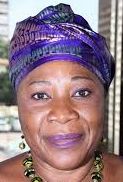
Makalé Camara |
Camara, Makalé (b. 1956, Mamou, French Guinea [now Guinea]), foreign minister of Guinea (2016-17). She was also ambassador to Senegal, The Gambia, Cape Verde, and Mauritania (2002-07) and France, Spain, Portugal, and Monaco (2007-11).
Camara, Mamadi, economy and finance minister of Guinea (2018-21). He was also ambassador to South Africa (2014-18).
Câmara, Mário Leopoldo Pereira da (b. Sept. 3, 1891, Natal, Rio Grande do Norte, Brazil - d. Dec. 31, 1967, Rio de Janeiro, Brazil), federal interventor in Rio Grande do Norte (1933-35) and finance minister of Brazil (1955-56).
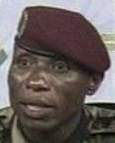
M.D. Camara |
Camara, Moïse Dadis, before conversion to Christianity (2010) Moussa Dadis Camara (b. 1964, Kouré, Guinea), president of Guinea (2008-10).
Camara, Moussa Sanguiana (d. Jan. 29, 2009), Guinean politician. He was ambassador to China (1961-63), minister of internal trade (1974-76), and permanent representative to the United Nations (1976-77).
Camara, Octaviano Cabral Raposo da (b. Jan. 15, 1819, Assu, Rio Grande do Norte, Brazil - d. Nov. 10, 1880, Bonito, Pernambuco, Brazil), acting president of Rio Grande do Norte (1858, 1870).
Camara, Patricio Correia da (b. 1797? - d. Jan. 2, 1865, Porto Alegre, Brazil), acting president of Rio Grande do Sul (1846, 1851, 1857, 1859, 1861-62, 1862-63, 1864).
Câmara, Paulo Henrique Saraiva (b. Aug. 8, 1972, Recife, Pernambuco, Brazil), governor of Pernambuco (2015-23).
Camara, Sikhé (b. 1921, Boké, French Guinea [now Guinea]), justice minister of Guinea (1971-72, 1979-84). He was also ambassador to Yugoslavia (1961-65), the Soviet Union (1965-67), West Germany (1967-68), and Senegal (1968-69).
Camaragibe, Pedro Francisco de Paula Cavalcanti de Albuquerque, barão e visconde de (b. April 19, 1806, Jaboatão [now Jaboatão dos Guararapes], Pernambuco, Brazil - d. Dec. 2, 1875, Camaragibe, Pernambuco), acting president of Pernambuco (1844, 1859). He was also president of the Chamber of Deputies of Brazil (1861-64, 1869). He was made baron in 1854 and viscount in 1860.
Camargo, Affonso Alves de (b. Sept. 25, 1873, Guarapuava, Paraná, Brazil - d. April 16, 1959, Curitiba, Paraná), president of Paraná (1916-20, 1928-30).
Camargo, Antonio Eleuterio de (b. Oct. 29, 1837, Uruguaiana, Rio Grande do Sul, Brazil - d. May 31, 1895, São Paulo, Brazil), war minister of Brazil (1885).
Camargo, Laudo Ferreira de (b. April 17, 1881, Amparo, São Paulo, Brazil - d. July 21, 1963, Rio de Janeiro, Brazil), federal interventor in São Paulo (1931). He was also president of the Federal Supreme Court of Brazil (1949-51).
Camargo, Vicente Thomaz Pires de Figueiredo (d. Aug. 21, 1855), president of Alagoas (1833-34), Pernambuco (1835 [acting], 1837), and Maranhão (1838-39).
Camargos, Antonio Teixeira de Souza Magalhães, (2º) barão de (b. Jan. 27, 1849, Ouro Preto, Minas Gerais, Brazil - d. Oct. 2, 1912, Mariana, Minas Gerais), acting president of Minas Gerais (1885, 1886, 1886, 1887, 1887, 1888, 1889); son of Manoel Teixeira de Souza, barão de Camargos. He was made baron in 1888.
Camargos, Manoel Teixeira de Souza, (1º) barão de (b. Oct. 20, 1811, Vila Rica [now Ouro Preto], Minas Gerais, Brazil - d. Aug. 20, 1878, Ouro Preto), acting president of Minas Gerais (1860, 1861, 1863, 1868, 1870, 1876, 1876-77). He was made baron in 1871.
Camata, Gérson (b. June 29, 1941, Castelo, Espírito Santo, Brazil - d. [assassinated] Dec. 26, 2018, Vitória, Espírito Santo), governor of Espírito Santo (1983-86).
Camblor, Juan Carlos (b. 1927 - d. Aug. 14, 2008), defense minister of Argentina (1983).
Cambó y Batlle, Francisco de Asís, Catalan Francesc Cambó i Batlle (b. Sept. 2, 1876, Verges, Gerona, Spain - d. April 30, 1947, Buenos Aires, Argentina), finance minister of Spain (1921-22). He was also minister of development (1918).
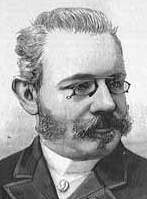
J. Cambon |
Cambon, Jules (Martin) (b. April 5, 1845, Paris, France - d. Sept. 19, 1935, Vevey, Vaud, Switzerland), governor-general of Algeria (1891-97); brother of Paul Cambon. He entered the prefectorial administration after service in the Franco-German War (1870-71). In June 1878 he was appointed prefect of Constantine (Algeria) and then served as secretary-general of the prefecture of Paris and prefect of the départements of Nord (1882-87) and Rhône (1887-91). In January 1891 he returned to Algeria as governor-general. After a conspicuously successful term in Algeria, he was appointed ambassador to the United States (October 1897) and helped negotiate the peace after the Spanish-American War (1898). As ambassador to Spain (1902-07) and to Germany (1907-14), he was concerned in the disputes between France and Germany at Algeciras (1906) and after the Agadir crisis (1911). Together with his brother Paul, who was ambassador to Great Britain, he laboured to avoid war with Germany. When the hostilities began (1914), he returned to Paris to become secretary-general of the Foreign Ministry (1915). During the Versailles peace conferences, he served as chairman of the commissions for Greek, Czech, and Polish matters. In 1918 he was elected to the French Academy. At the end of the Versailles peace conference (1919) Georges Clemenceau appointed him to preside over the Council of Ambassadors, which was designed to supervise the application of the peace agreements, and he held this post until March 1922.
Cambon, (Pierre) Paul (b. Jan. 20, 1843, Paris, France - d. May 28, 1924, Paris), French resident minister (1882-85) and resident-general (1885-86) of Tunisia. He was also prefect of the French départements of Aube (1872-73), Doubs (1876-77), and Nord (1878-82) and ambassador to Spain (1886-91), the Ottoman Empire (1891-98), and the United Kingdom (1898-1920).
Cambray-Digny, Luigi Guglielmo, conte di (b. April 7, 1820, Florence, Tuscany [now in Italy] - d. Dec. 11, 1906, San Piero a Sieve, near Florence), finance minister of Italy (1867-69). He was also minister of agriculture, industry, and commerce (1867).
Camden, Charles Pratt, (1st) Earl (baptized March 21, 1714, London, England - d. April 18, 1794, London), British politician; son of Sir John Pratt. He was lord chancellor (1766-70) and lord president of the council (1782-83, 1784-94). He was created Baron Camden in 1765 and Viscount Bayham and Earl Camden in 1786.
Camden, John Jeffreys Pratt, (1st) Marquess (b. Feb. 11, 1759, London, England - d. Oct. 8, 1840, Wildernesse estate, near Sevenoaks, Kent, England), lord lieutenant of Ireland (1795-98) and British secretary of state for war and colonies (1804-05); son of Charles Pratt, Earl Camden. He was also lord president of the council (1805-06, 1807-12). He succeeded as (2nd) Earl Camden in 1794 and was created Earl of the County of Brecknock and Marquess Camden in 1812.
Cameli, Gladson de Lima (b. March 26, 1978, Cruzeiro do Sul, Acre, Brazil), governor of Acre (2019- ); nephew of Orleir Messias Cameli.
Cameli, Orleir Messias (b. March 16, 1949, Cruzeiro do Sul, Acre, Brazil - d. May 8, 2013, Manaus, Amazonas, Brazil), governor of Acre (1995-99).

Camelia-Römer |
Camelia-Römer, Susanne (Fransisca Coromoto), byname Suzy Camelia-Römer, surname before marriage (1995) Römer (b. Jan. 4, 1959, Curaçao), prime minister of the Netherlands Antilles (1993, 1998-99). She was also minister of justice (1992-94) and national recovery and economic affairs (1999-2002), and minister of traffic, transport, and urban planning of Curaçao (2015-17).
Cameron, Charles (baptized June 13, 1766, London, England - d. June 26, 1828, Roydon, England), civil commissioner of Malta (1801-03) and governor of the Bahamas (1804-20).
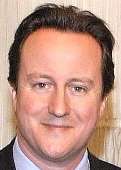
D. Cameron |
Cameron, David (William Donald) (b. Oct. 9, 1966, London, England), British prime minister (2010-16); great-great-great-great-great-grandson of William IV. The first step of his political career was a job in the Conservative Party research department. After a spell seconded to No. 10 Downing Street where he helped brief John Major for Prime Minister's Questions, he was talent-spotted by Chancellor of the Exchequer Norman Lamont who made him his special adviser. After unsuccessfully standing in Stafford in the 1997 general election, he entered Parliament in 2001 as MP for Witney, northwest of London. He became the leading light of the so-called "Notting Hill set" of young modernizers who grouped themselves around Michael Howard after he became leader in 2003. After only two years in Parliament, Cameron was appointed to the Conservative front bench. Howard entrusted him with the key task of policy coordinator in the run-up to the 2005 election. After the Conservatives were defeated and Howard resigned, Cameron was elected party leader, defeating David Davis in the final vote. In the 2010 general election he built the Tory campaign around the concept of the "Big Society" - a far cry (at least rhetorically) from the days of Margaret Thatcher, who said there was no such thing as society. His "green" credentials took a knock when it was disclosed that he was followed on his bicycle ride to work by a driver taking his papers and other belongings. The Conservatives emerged as the strongest party, but short of a majority, and he formed a government together with the Liberal Democrats, the first coalition government since World War II. At 43 he became the youngest prime minister in almost 200 years, being a few months younger than Tony Blair was on taking office in 1997. In 2015 he won a majority for the Conservatives alone. Having promised an "in-out" referendum on EU membership to mollify Euroskeptics, this was duly held in June 2016, and although he campaigned for the "Remain" side, "Leave" won 52%-48%. He then said he would resign before the autumn; he was succeeded by Theresa May in July. In September he also resigned as MP.
Cameron, Donald (William) (b. May 20, 1946, Egerton, N.S. - d. May 3, 2021), premier of Nova Scotia (1991-93).
Cameron, Sir Edward John (b. May 14, 1858 - d. July 20, 1947), administrator of the British Virgin Islands (1887-93), commissioner of the Turks and Caicos Islands (1893-99), administrator of Saint Lucia (1909-14), and governor of Gambia (1914-20); knighted 1916.
Cameron, J(ames) Donald, byname Don Cameron (b. May 14, 1833, Middletown, Pa. - d. Aug. 30, 1918, Lancaster county, Pa.), U.S. secretary of war (1876-77); son of Simon Cameron.
Cameron, Simon (b. March 8, 1799, Lancaster county, Pa. - d. June 26, 1889, near Harrisburg, Pa.), U.S. secretary of war (1861-62). He was also minister to Russia (1862).
Camescasse, Jean Louis Ernest (b. Sept. 23, 1838, Brest, Finistère, France - d. June 8, 1897, Paris, France), prefect of police of Paris (1881-85). He was also prefect of the départements of Finistère (1870-71), Loir-et-Cher (1871-72), Cher (1872-73), Haute-Savoie (1876-77), and Pas-de-Calais (1877-80).
Camet Dickmann, Jorge (Raúl) (b. Sept. 23, 1927, Lima, Peru - d. Oct. 31, 2013, Lima), economy and finance minister of Peru (1993-98).
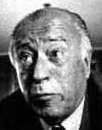
Camilión |
Camilión (Fernández), Oscar (Héctor) (b. Jan. 6, 1930, Buenos Aires, Argentina - d. Feb. 12, 2016, Buenos Aires), foreign minister (1981) and defense minister (1993-96) of Argentina. He was also ambassador to Brazil (1976-81).
Camilleri, Byron, home affairs, national security, and law enforcement minister of Malta (2020- ).
Camilleri, Victor (b. Oct. 8, 1942, Santa Venera, Malta), Maltese diplomat. He was high commissioner to the United Kingdom (1991, 1996-97), permanent representative to the United Nations (1991-93, 2003-07), and ambassador to Belgium (1997-2003).
Campa y Caraveda, Miguel Ángel de la (b. 1882 - d. Aug. 20, 1965, Miami, Fla.), foreign minister of Cuba (1939-40, 1952-54). He was also ambassador to the United States (1955-58).
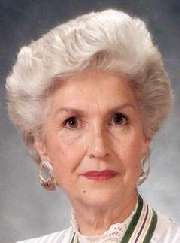
Campagnolo |
Campagnolo, Iona, née Hardy (b. Oct. 18, 1932, Galiano Island, B.C.), lieutenant governor of British Columbia (2001-07). She first entered politics in 1966, as a school board trustee, and later as alderman, in the city of Prince Rupert. In 1973 she decided to enter federal politics and was elected as a Liberal in the Skeena riding. She soon became a popular figure in the party, and Prime Minister Pierre Elliott Trudeau appointed her minister of fitness and amateur sport (1976-79). In 1982 she was elected as the first woman president of the Liberal Party. She resigned from politics after the Liberals' electoral defeat in 1984, and returned to British Columbia to pursue her career in broadcasting, as well as a brief stint as founding chancellor of the University of Northern British Columbia. In 2001 Governor-General Adrienne Clarkson appointed her as the first female lieutenant governor of British Columbia. She received the Order of Canada in 1973 and the Order of British Columbia in 1998.
Campara, Avdo (b. May 25, 1937, Gacko, Yugoslavia [now in Republika Srpska, Bosnia and Herzegovina] - d. April 4, 2008, Sarajevo, Bosnia and Herzegovina), chairman of the House of Peoples of Bosnia and Herzegovina (1997-98).
Campbell, Sir Alexander (b. March 9, 1822, Hedon, Yorkshire, England - d. May 24, 1892, Toronto, Ont.), interior minister (1873) and defence minister (1880) of Canada and lieutenant governor of Ontario (1887-92); knighted 1879. He was also postmaster-general (1867-73, 1879-80, 1880-81, 1885-87), minister of inland revenue (acting, 1868-69) and justice (1881-85), and superintendent-general of Indian affairs (1873).
Campbell, Alexander Augustus Melfort (b. May 21, 1827, Melfort, Argyll, Scotland - d. May 12, 1890, Gibraltar), president of the Turks and Caicos Islands (1869-72) and Nevis (1873-76); son of Sir Colin Campbell.
Campbell, Carroll A(shmore), Jr. (b. July 24, 1940, Greenville, S.C. - d. Dec. 7, 2005, West Columbia, S.C.), governor of South Carolina (1987-95).
Campbell, Clarence Thomas (b. Dec. 27, 1843, London, Ont. - d. Feb. 2, 1922, London), mayor of London, Ont. (1905).
Campbell, Sir Clifford (Clarence) (b. June 28, 1892, Petersfield, Westmoreland, Jamaica - d. Sept. 28, 1991), governor-general of Jamaica (1962-73); knighted 1962. He was also speaker of the House of Representatives (1950-55) and president of the Senate (1962).
Campbell, Colin (b. 1754 - d. April 2, 1814, Gibraltar), acting governor of Gibraltar (1809-14).
Campbell, Sir Colin (b. 1776, London, England - d. June 13, 1847, London), governor of Nova Scotia (1834-40) and Ceylon (1841-47); knighted 1815.
Campbell, David (b. Aug. 7, 1779, Washington [now Smyth] county, Va. - d. March 19, 1859, Montcalm estate, near Abingdon, Va.), governor of Virginia (1837-40).

E. Campbell |
Campbell (Barr), Epsy (b. July 4, 1963, San José, Costa Rica), first vice president (2018- ) and foreign minister (2018) of Costa Rica.
Campbell, George W(ashington) (b. Feb. 8, 1769, Tongue parish, Sutherland, Scotland - d. Feb. 17, 1848, Nashville, Tenn.), U.S. treasury secretary (1814).
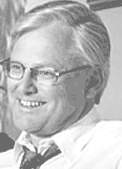
G. Campbell |
Campbell, Gordon (Muir) (b. Jan. 12, 1948, Vancouver, B.C.), premier of British Columbia (2001-11). He first entered politics in the 1970s serving as an executive assistant to Vancouver mayor Art Phillips. Campbell was elected city councillor in 1984 and mayor in 1986. As mayor, the former real-estate executive earned a reputation as the "developer's mayor" and eliminated many of the city's cultural attractions that were seen at the time as being non-profitable. In 1993, he ran for the leadership of the newly reformed B.C. Liberal Party and won, beating incumbent leader Gordon Wilson. The party became badly divided, and Wilson, clearly bitter over his defeat, formed his own party, the Progressive Democratic Alliance, and began to siphon support from Campbell's Liberals. When the ruling New Democratic Party called a provincial election in 1996, the split in the conservative vote due to the PDA and the Reform Party caused Campbell to narrowly lose the election, even though he won a plurality of the popular vote. He remained as opposition leader during the days of the Glen Clark government, and public support for his party began to increase as the NDP became bogged down in numerous scandals. In 2001 Premier Ujjal Dosanjh called a late election, and Campbell easily rode a wave of public support to the biggest provincial majority in British Columbian history, winning 77 seats to the NDP's 2. Reelected in 2005 and 2009, he resigned in 2011 and later that year became Canadian high commissioner to the United Kingdom (until 2016).
Campbell, Jack M., byname of John Moren Campbell (b. Sept. 10, 1916, Hutchinson, Kan. - d. June 14, 1999, Santa Fe, N.M.), U.S. politician. He was a Marine during World War II, an FBI agent, and speaker of the New Mexico state House. A Democrat, he served two terms as governor of New Mexico (1963-67), enforcing a nonpartisan civil service for state employees and modernizing services for the mentally ill. He was the first New Mexico governor to appoint a science adviser. He had a wide interest in space and technology and served on several boards that promoted development in those areas.
Campbell, James E(dwin) (b. July 7, 1843, Middletown, Ohio - d. Dec. 18, 1924, Columbus, Ohio), governor of Ohio (1890-92); nephew of Lewis Campbell.
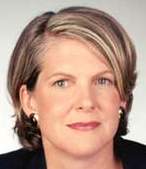
Jane Campbell |
Campbell, Jane (Louise) (b. May 19, 1953, Ann Arbor, Mich.), mayor of Cleveland (2002-06).
Campbell, John (b. c. 1789, Virginia - d. c. 1866), treasurer of the United States (1829-39); brother of David Campbell.
Campbell, John H.F. (b. June 23, 1936, Dublin, Ireland), Irish diplomat. He was ambassador to China (1980-83), West Germany (1983-86), France (1991-95), and Portugal, Brazil, and Morocco (1999-2001) and permanent representative to the United Nations (1995-98).
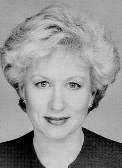
K. Campbell |
Campbell, Kim, byname of Avril Phaedra Douglas Campbell (b. March 10, 1947, Port Alberni, B.C.), prime minister of Canada (1993). In British Columbian provincial politics, she was associated with the Social Credit Party and served as key policy adviser to Premier Bill Bennett. She ran unsuccessfully for the provincial legislature in 1983 and in May 1986 was defeated in a bid for the Social Credit provincial leadership. In October 1986, however, she won a seat in the Legislative Assembly for a Vancouver riding. Turning her attention to federal politics and the Progressive Conservative Party, she was elected to the House of Commons in 1988 for the British Columbian riding of Vancouver Centre. Her mentor, Prime Minister Brian Mulroney, saw her as a possible successor and fostered her career. She was appointed minister for Indian affairs and northern development in 1989. In 1990 she became justice minister and attorney general; her tenure was marked by several legislative successes, including strengthening Canada's gun-control laws and passing a tough rape law. Mulroney brought her into the inner cabinet in 1990 as a member of the Expenditure Review Committee. Her appointment as defense minister in January 1993 was seen as a signal of Mulroney's confidence in her political future, especially when he announced his own retirement shortly thereafter. She was selected by a party convention to replace Mulroney on June 13, and became Canada's first woman and first West Coast prime minister on June 25. Her tenure, however, was brief. Her party suffered a crushing defeat in the October 25 general elections. Campbell herself lost her seat. She left office in November, and on December 13 she resigned as party leader. In 1996-2000 she was consul general in Los Angeles.
Campbell, Lewis (Davis) (b. Aug. 9, 1811, Franklin, Ohio - d. Nov. 26, 1882, Hamilton, Ohio), U.S. politician. He was a member of the House of Representatives in 1849-58 and 1871-73. In 1866 he was appointed minister to Mexico and proceeded there, but did not present credentials, resigning in 1867.
Campbell, Parnel (Randolph), justice minister of Saint Vincent and the Grenadines (1989-95). He was also attorney general (1987-95), minister of legal affairs (1987-89), information (1987-95), and culture (1989-91), and deputy prime minister (1994-95).

W. Bennett Campbell | 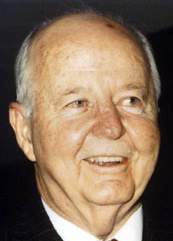
Sir W. Campbell |
Campbell, W(illiam) Bennett (b. Aug. 27, 1943, Montague, P.E.I. - d. Sept. 11, 2008, Charlottetown, P.E.I.), premier of Prince Edward Island (1978-79). He was first elected to the P.E.I. legislature in 1970 and held several portfolios, including education and finance. He succeeded Alexander Bradshaw Campbell (no relation) as leader of the P.E.I. Liberals and premier in 1978, but the Conservatives defeated his caretaker government a year later. He made a successful jump to federal politics in 1981 and served as veterans affairs minister until losing his seat in 1984.
Campbell, W(illiam) Telfer (b. 1863 - d. 19...), resident commissioner of the Gilbert and Ellice Islands (1901-09) and British consul in Tonga (1909-13).
Campbell, Sir Walter (Benjamin) (b. March 4, 1921 - d. Sept. 4, 2004, Brisbane, Qld.), governor of Queensland (1985-92); knighted 1979.
Campbell, William (d. Dec. 1, 1796), governor of Bermuda (1796).
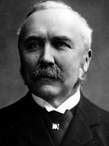
Campbell-B. |
Campbell-Bannerman, Sir Henry, original name Henry Campbell (b. Sept. 7, 1836, Glasgow, Scotland - d. April 22, 1908, London, England), British prime minister (1905-08). A member of the House of Commons from 1868, Campbell-Bannerman (who in 1871 added his mother's family surname to that of his father) was financial secretary to the War Office (1871-74, 1880-82), parliamentary and financial secretary to the Admiralty and spokesman for the Admiralty in the Commons (1882-84), chief secretary for Ireland (1884-85), and secretary of state for war (1886, 1892-95). On June 21, 1895, he induced the Duke of Cambridge to retire as commander in chief of the armed forces. During his 39-year tenure the duke had blocked army reform, and the queen, recognizing the necessity of the change, rewarded Campbell-Bannerman with a knighthood. On Feb. 6, 1899, Campbell-Bannerman was elected leader in the Commons of the badly divided Liberal Party. During the South African War he at first pursued a middle course between the imperialists and the antiwar "pro-Boers" among the Liberals, but on June 14, 1901, he exacerbated party disunity by condemning the British "methods of barbarism in South Africa." The Liberal imperialists' threatened secession from the party was averted, and the end of the war a year later eased party tensions, as did Campbell-Bannerman's "step by step" approach to the divisive issue of Irish Home Rule. He became prime minister after Arthur James Balfour's resignation late in 1905. The general election of January 1906 produced a large Liberal majority in the Commons, but much of his legislative program was nullified by the House of Lords. In 1907 his health began to fail, and, 17 days before his death, he resigned in favour of H.H. Asquith.
Campbell of Pittenweem, (Walter) Menzies Campbell, Baron, byname Ming Campbell (b. May 22, 1941, Glasgow, Scotland), British politician. He was leader of the Liberal Democrats in 2006-07. Knighted in 2003, he was made a life peer in 2015.
Campbell of St. Andrews, John Campbell, (1st) Baron (b. Sept. 15, 1779, Cupar, Fife, Scotland - d. June 23, 1861, London, England), British lord chancellor (1859-61). He was also solicitor general (1832-34), attorney general (1834, 1835-41), chancellor of the Duchy of Lancaster (1846-50), and lord chief justice (1850-59). He was knighted in 1832 and created baron in 1841.
Campedelli, José (b. Jan. 17, 1925 - d. Oct. 14, 2014), governor of Rondônia (1967-69).
Campello, João Chaves (b. March 12, 1838, Herval, Rio Grande do Sul, Brazil - d. April 21, 1894, Rio de Janeiro, Brazil), acting president of Rio Grande do Sul (1878).
Campenhausen, (Johann) Balthasar Freiherr von, Russian Baron Ivan (Ivanovich) Kampengauzen (b. June 30, 1689, Stockholm, Sweden - d. Jan. 28, 1758, St. Petersburg, Russia), Swedish governor-general of Finland (1742-43). He was made a baron in 1744.
Campero, Mariano, acting foreign and interior minister of Peru (1836).
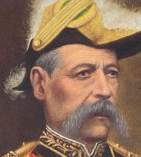
N. Campero |
Campero (Leyes), (José) Narciso (b. Oct. 29, 1813, Tojo, Bolivia - d. Dec. 11, 1896, Sucre, Bolivia), president of Bolivia (1880, 1880-84).
Campilli, Pietro (b. Nov. 30, 1891, Frascati, Roma province [now Roma metropolitan city], Italy - d. July 8, 1974, Rome, Italy), finance and treasury minister of Italy (1947). He was also minister of foreign trade (1946-47), transport (1951), and industry and commerce (1951-53) and a minister without portfolio (1953-58).
Campillo Seyde, Arturo (b. Aug. 14, 1894, Paso del Macho, Veracruz state, Mexico - d. May 25, 1958, Mexico City), governor of Quintana Roo (1930-31).
Campinchi, César (Sampiero Auguste Napoléon Jérôme) (b. May 4, 1882, Calcatoggio, Corse [now in Corse-du-Sud], France - d. Feb. 22, 1941, Marseille, France), justice minister of France (1938). He was also minister of marine (1937-38) and military marine (1938-40).
Câmpineanu, Ion I. (b. Oct. 10, 1841, Bucharest, Walachia [now in Romania] - d. Nov. 13, 1888, Bucharest), foreign minister (1877, 1878-79, 1885) and finance minister (1877-78, 1880) of Romania. He was also justice minister (1877), governor of the National Bank (1880-82, 1888), and mayor of Bucharest (1886-88).
Campion, Sir William Robert (b. July 3, 1870, London, England - d. Jan. 2, 1951, Hassocks, Sussex, England), governor of Western Australia (1924-31); knighted 1924.
Campista, Davi Moretzsohn (b. Jan. 22, 1863, Rio de Janeiro, Brazil - d. Oct. 12, 1911, Copenhagen, Denmark), finance minister of Brazil (1906-09). He was also minister to Denmark (1910-11).
Campisteguy (Oxcoby), Juan (b. Sept. 7, 1859, Montevideo, Uruguay - d. Sept. 4, 1937, Montevideo), finance minister (1897-98, 1899), interior minister (1903-04), and president (1927-31) of Uruguay.
Campney, Ralph Osborne (b. June 6, 1894, Picton, Ont. - d. Oct. 6, 1967, Vancouver, B.C.), defence minister of Canada (1954-57). He was also solicitor general (1952-54).
Campo Maior, Augusto da Cunha Castello Branco, barão de (b. March 25, 1839, Campo Maior, Piauí, Brazil - d. Nov. 28, 1898, São Luís, Maranhão, Brazil), acting president of Piauí (1877-78). He was made baron in 1875.

H.J. Cámpora | 
C.W.R. Campos |
Cámpora (Demaestre), Héctor José (b. March 26, 1909, Mercedes, Buenos Aires province, Argentina - d. Dec. 19, 1980, Cuernavaca, Morelos, Mexico), president of Argentina (1973). He was also president of the Chamber of Deputies (1948-53) and ambassador to Mexico (1973-74).
Cámpora (Miralles), Mario (Alberto) (b. Aug. 3, 1930, Mendoza, Argentina - d. Jan. 13, 2022, Santa Catalina, Córdoba, Argentina), Argentinian diplomat; nephew of Héctor José Cámpora. He was ambassador to the United Kingdom (1990-94) and Belgium and Luxembourg (1995-99).
Camporredondo (Cisneros), José Braulio del (b. 1783, Chachapoyas [now in Amazonas region], Peru - d. March 16, 1837, Lima, Peru), finance minister of Peru (1835).
Campos, Aristides Alexandre (b. March 28, 1901, Bonfim, Minas Gerais, Brazil - d. May 23, 1957), federal interventor in Espírito Santo (1946).
Campos, Bernardino José de, Júnior (b. Sept. 6, 1841, Pouso Alegre, Minas Gerais, Brazil - d. Jan. 18, 1915, São Paulo, Brazil), president of São Paulo (1892-96, 1902-04) and finance minister (1896-98) and acting justice and interior minister (1897) of Brazil. He was also president of the Chamber of Deputies (1891-92).
Campos, Carlos de (b. Aug. 6, 1866, Campinas, São Paulo, Brazil - d. April 27, 1927, São Paulo, Brazil), president of São Paulo (1924-27); son of Bernardino José de Campos Júnior.
Campos, Carlos Wilson Rocha de Queiroz (b. March 11, 1950, Recife, Pernambuco, Brazil - d. April 11, 2009, Recife), acting governor of Pernambuco (1990-91).
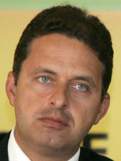
E.H.A. Campos |
Campos, Eduardo Henrique Accioly (b. Aug. 10, 1965, Recife, Pernambuco, Brazil - d. [plane crash] Aug. 13, 2014, Santos, São Paulo, Brazil), governor of Pernambuco (2007-14); grandson of Miguel Arraes de Alencar. He was also Brazilian minister of science and technology (2004-05). At the time of his death he was the Brazilian Socialist Party candidate for the October 2014 presidential election.
Campos, Eleazar Soares (b. 1892, São Luís, Maranhão, Brazil - d. April 26 or 27, 1977, Rio de Janeiro, Brazil), acting federal interventor in Maranhão (1945-46).
Campos, Francisco Luís da Silva (b. Nov. 18, 1891, Dores do Indaiá, Minas Gerais, Brazil - d. Nov. 1, 1968, Belo Horizonte, Minas Gerais), justice and interior minister of Brazil (1932 [acting], 1937-42). He was also minister of education (1930-32).
Campos, Frederico Carlos Soares (b. April 11, 1927, Cuiabá, Mato Grosso, Brazil - d. March 1, 2021, Cuiabá), governor of Mato Grosso (1979-83). He was also mayor of Cuiabá (1967-69, 1989-93).
Campos, Frederico Carneiro de (b. 1802, São Salvador da Bahia [now Salvador], Brazil - d. Nov. 3, 1867, Passo Pocu, Paraguay), president of Paraíba (1844-48).
Campos, Guilherme de Souza (b. Feb. 10, 1850, Itabaianinha, Sergipe, Brazil - d. Oct. 3, 1923, Aracaju, Sergipe), president of Sergipe (1905-06 [acting], 1906-08).
Campos, Hélio da Costa (b. March 10, 1921, Rio de Janeiro, Brazil - d. April 25, 1991, São Paulo, Brazil), governor of Roraima (1967-69, 1970-74).
Campos, Jaime Veríssimo de, Jaime also spelled Jayme (b. Sept. 13, 1951, Cuiabá, Mato Grosso, Brazil), governor of Mato Grosso (1991-95). He was also mayor of Várzea Grande (1997-2005).
Campos, João Elísio Ferraz de (b. Dec. 23, 1942, Paranaguá, Paraná, Brazil), governor of Paraná (1986-87).
Campos, João Polycarpo dos Santos (d. Oct. 19, 1911, Petrópolis, Rio de Janeiro, Brazil), acting president of Pará (1889).
Campos, José Marianno de, acting president of Mato Grosso (1843).
Campos, José Narciso de, finance minister of Peru (1867).
Campos, José Wilson Siqueira (b. Aug. 1, 1928, Crato, Ceará, Brazil), governor of Tocantins (1989-91, 1995-98, 1999-2003, 2011-14).
Campos, Júlio José de (b. Dec. 11, 1946, Várzea Grande, Mato Grosso, Brazil), governor of Mato Grosso (1983-86). He was also mayor of Várzea Grande (1973-77).
Campos, Maria Suely Silva (b. May 14, 1953, Boa Vista, Rio Branco [now Roraima], Brazil), governor of Roraima (2015-18); wife of Neudo Ribeiro Campos.
Campos, Martinho Álvares da Silva (b. Nov. 21, 1816, Pitangui, Minas Gerais, Brazil - d. March 29, 1887, Caxambu, Minas Gerais), chairman of the Council of Ministers and finance minister of Brazil (1882). He was also president of Rio de Janeiro (1881-82) and president of the Chamber of Deputies (1882).
Campos, Milton Soares (b. Aug. 16, 1900, Ponte Nova, Minas Gerais, Brazil - d. Jan. 16, 1972, Belo Horizonte, Minas Gerais), governor of Minas Gerais (1947-51) and justice and interior minister of Brazil (1964-65).
Campos, Neudo Ribeiro (b. Sept. 1, 1946), governor of Roraima (1995-2002).
Campos, Olympio de Souza (b. June 25, 1853, Itabaianinha, Sergipe, Brazil - d. [assassinated] Nov. 9, 1906, Rio de Janeiro, Brazil), president of Sergipe (1899-1902); brother of Guilherme de Souza Campos.
Campos, Pedro Ivo (Figueiredo de) (b. Oct. 12, 1930, Florianópolis, Santa Catarina, Brazil - d. Feb. 27, 1990, Florianópolis), governor of Santa Catarina (1987-90). He was also mayor of Joinville (1973-77).
Campos, Roberto de Oliveira (b. April 17, 1917, Cuiabá, Mato Grosso, Brazil - d. Oct. 9, 2001, Rio de Janeiro, Brazil), acting finance minister of Brazil (1964). He was also ambassador to the United States (1961-64) and the United Kingdom (1974-82) and minister of planning (1964-67).
Campos Quesada, (Julio) César (b. Jan. 31, 1917, Arequipa, Peru - d. Nov. 27, 1990, Lima, Peru), interior minister of Peru (1975-76).
Campos Quiroga, Jaime (Alfonso) (b. Feb. 16, 1953, Constitución, Chile), justice minister of Chile (2016-18). He was also minister of agriculture (2000-06).
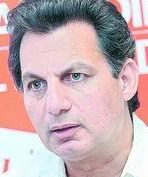
Canahuati |
Canahuati (Panayotti), Mario (Miguel) (b. Sept. 12, 1955, San Pedro Sula, Honduras), foreign minister of Honduras (2010-11). He was ambassador to the U.S. in 2002-05.
Canal González, Leonardo (b. Nov. 6, 1822, Pamplona, Colombia - d. May 5, 1894, Bogotá, Colombia), provisional president of Santander (1860-61) and acting war minister of Colombia (1890). He was also minister of development and public works (1888-90).
Canalejas y Méndez, José (b. July 31, 1854, El Ferrol, La Coruña province, Spain - d. [assassinated] Nov. 12, 1912, Madrid, Spain), prime minister of Spain (1910-12). He was also minister of development (1888), justice (1888-90, 1911-12), finance (1894-95), and agriculture, industry, commerce, and public works (1902) and president of the Congress of Deputies (1906-07).
Canales Clariond, Fernando (de Jesús) (b. July 21, 1946, Monterrey, Nuevo León, Mexico), governor of Nuevo León (1997-2003). He was also Mexican minister of economy (2003-05) and energy (2005-06).
Canalizo (Bocadillo), (José) Valentín (Raimundo) (b. Jan. 14, 1794, Monterrey, Nuevo León, Mexico - d. Feb. 20, 1850, Mexico City, Mexico), governor of Puebla (1842) and acting president (1843-44) and war and marine minister (1846-47) of Mexico.
Canard, Henri Philibert (b. April 10, 1824, Rocroi, Ardennes, France - d. April 20, 1894, Rochefort, Charente-Inférieure [now Charente-Maritime], France), governor of Senegal (1881-82).
Cañas (Quintanilla), Antonio José (b. Oct. 26, 1785, San Vicente, San Salvador - d. Feb. 24, 1844, near San Vicente), acting/provisional supreme chief of state of El Salvador (1839, 1840-41). He was also war and finance minister (1838-39, 1842-44).
Cañas Escalante, Alberto F., byname Beto Cañas (b. March 16, 1920, San José, Costa Rica - d. June 14, 2014), Costa Rican politician. He was permanent representative to the United Nations (1948-49, 1956-58), minister of culture, youth, and sports (1970-74), and president of the Legislative Assembly (1994-95).
Cancela Gómez, José Luis (b. 1961, Montevideo, Uruguay), Uruguayan diplomat. He was permanent representative to the United Nations (2008-13).
Cancellieri, Anna Maria (b. Oct. 22, 1943, Rome, Italy), interior minister (2011-13) and justice minister (2013-14) of Italy.
Candamo (Iriarte), Manuel (González de) (b. Dec. 14, 1841, Lima, Peru - d. May 7, 1904, Arequipa, Peru), president of the Governing Junta and acting foreign minister (1895) and president (1903-04) of Peru. He was also president of the Senate (1888-89, 1890-91, 1892-93, 1897-98, 1901-02).
Candeth, K(unhiraman) P(alat) (b. Oct. 23, 1916, Ottapalam [now in Kerala], India - d. May 19, 2003, New Delhi, India), Indian military governor of Portuguese India (1961-62).
Candia Castillo, (Juan) Fernando, finance minister of Bolivia (1995-97). He was also president of the Central Bank (1993-95).
Cândido, Helenês (b. Jan. 5, 1935, Morrinhos, Goiás, Brazil - d. March 17, 2021, between Santa Helena de Goiás and Caldas Novas, Goiás), governor of Goiás (1998-99).
Candu, Andrian (b. Nov. 27, 1975, Kishinev, Moldavian S.S.R. [now Chisinau, Moldova]), Moldovan politician. He was a deputy prime minister and minister of economy (2014-15) and chairman of parliament (2015-19).
Canelas (Canelas), Demetrio (b. April 7, 1881, Huaricaya, San Benito municipality, Cochabamba department, Bolivia - d. Nov. 8, 1964, Cochabamba, Bolivia), foreign minister of Bolivia (1933). He was also minister of finance and industry (1931-32), interior and justice (1932-33), and war and colonization (1934).
Canelas Jaime, (José) Manuel (b. Oct. 21, 1981, Caracas, Venezuela), Bolivian politician; son of Víctor Hugo Canelas Zannier. He was minister of communication (2019).
Canelas Zannier, Víctor Hugo (b. April 9, 1954, Cochabamba, Bolivia), acting interior minister of Bolivia (1997).
Canepa, Adolfo (John) (b. Dec. 17, 1940, London, England), chief minister of Gibraltar (1987-88). He was also mayor of Gibraltar (1976-79, 2014-17) and speaker of parliament (2012-19).
Canepa, Daniel (Raoul) (b. July 16, 1948, Clichy, France), prefect of Paris département (2008-13). He was also prefect of Indre-et-Loire (1996-99), Var (1999-2002), and Nord (2006-08).
Canet, Jayme, Júnior (b. Jan. 19, 1925, Ourinhos, São Paulo, Brazil - d. Aug. 31, 2016, Curitiba, Paraná, Brazil), governor of Paraná (1975-79).
Cañete, Alfredo (b. March 14, 1942, Asunción, Paraguay), Paraguayan diplomat. He was ambassador to the Benelux countries (1981-83, 1991-96), permanent representative to the United Nations (1983-91), and chargé d'affaires in the Netherlands (2000-05).
Canevaro (Valega), (José Sebastián) César (b. Jan. 19, 1846, Lima, Peru - d. Oct. 31, 1922, Lima), first vice president of Peru (1894-95, 1919-22); brother of José Francisco Canevaro. He was also mayor of Lima (1881, 1886-90, 1894-95), president of the Chamber of Deputies (1881) and the Senate (1894-95, 1921-22), and minister to the United States (1892-93).
Canevaro, Felice Napoleone (b. July 7, 1838, Lima, Peru - d. Dec. 30, 1926, Venice, Italy), foreign minister of Italy (1898-99). He was also minister of marine (1898).
Canevaro (Valega), José Francisco, duque de Zoagli (b. Jan. 20, 1837, Lima, Peru - d. Nov. 15, 1900, Paris, France), second vice president of Peru (1876-79).
Canham, Erwin D(ain) (b. Feb. 13, 1904, Auburn, Maine - d. Jan. 3, 1982, Agana, Guam), resident commissioner of the Northern Mariana Islands (1976-78). He was a longtime editor of the Christian Science Monitor.
Cani, Shkëlqim (b. May 6, 1956, Tiranë, Albania), finance minister of Albania (2013-16). He was also a deputy premier (1991) and governor of the Bank of Albania (1997-2004).
Canido Vericochea, Rolando, interior and justice minister of Bolivia (1981). Earlier in 1981 he was minister of labour.
Canikli, Nurettin (b. May 15, 1960, Alucra, Giresun province, Turkey), defense minister of Turkey (2017-18). He was also minister of customs and trade (2014-15) and a deputy prime minister (2016-17).
Canitz und Dallwitz, Julius (Ernst Constantin Heinrich August) Freiherr von (b. July 16, 1815 - d. April 12, 1894), Prussian/German diplomat; son of Karl Freiherr von Canitz und Dallwitz; brother of Karl Friedrich Freiherr von Canitz und Dallwitz. He was chargé d'affaires in Saxony (1848-50) and minister to Portugal (1857-59), Hesse-Darmstadt (1860-65), Württemberg (1865-67), Spain (1867-74), and the Netherlands (1874-82).
Canitz und Dallwitz, Karl (Wilhelm Ernst) Freiherr von (b. Nov. 17, 1787, Kassel, Hesse-Kassel [now in Hessen, Germany] - d. April 25, 1850, Frankfurt an der Oder, Prussia [now in Brandenburg, Germany]), foreign minister of Prussia (1845-48). He was also minister to Hesse-Kassel and Hanover (1833-37), Hanover and Brunswick (1837-42), and Austria (1842-45).
Canitz und Dallwitz, Karl (Wilhelm Helmut) Friedrich Freiherr von (b. March 31, 1812 - d. June 28, 1894), Prussian diplomat; son of Karl Freiherr von Canitz und Dallwitz. He was minister to Hesse-Darmstadt (1851-53), the Two Sicilies (1854-59), and the Papal State (1859-62).
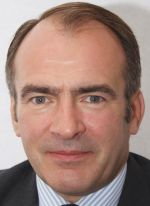
Cannan |
Cannan, Alfred (Louis) (b. 1968, Reading, England), chief minister of the Isle of Man (2021- ).
Canning, Charles John Canning, (1st) Earl (b. Dec. 14, 1812, London, England - d. June 17, 1862, London), governor-general/viceroy of India (1856-62); son of George Canning. He was also British postmaster general (1853-55). He succeeded his mother as (2nd) viscount in 1837 and was made an earl in 1859.
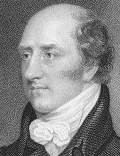
G. Canning |
Canning, George (b. April 11, 1770, London, England - d. Aug. 8, 1827, Chiswick, near London), British prime minister (1827). In July 1792, he came under the influence of the prime minister, William Pitt, who undertook to find him a seat in Parliament. He was elected for the privately controlled borough of Newtown, Isle of Wight, in July 1793 and quickly became recognized as one of the rising men on the government side of the House. Pitt further procured for him the undersecretaryship of state for foreign affairs in 1796. In 1799 he left the foreign office and was appointed a commissioner of the Board of Control for the government of India. In May 1800 he was promoted to the office of joint paymaster of the forces and was made a privy councillor. When Pitt resigned in 1801, Canning, too, left office. On the formation of Pitt's last ministry in May 1804, Canning became treasurer of the navy, but his unpopularity (his biting wit made him many enemies) kept him out of the cabinet. He became foreign secretary in 1807. Holding Viscount Castlereagh, the war secretary, responsible for disasters in the Peninsular War, Canning in 1809 insisted on his dismissal. They quarreled and fought a duel on September 21, in which Canning was wounded in the thigh. Both had already resigned, Canning because of the nonfulfillment by Prime Minister William Bentinck of his promise that Castlereagh should be removed from the War Department. After Castlereagh committed suicide (Aug. 12, 1822), King George IV reluctantly acquiesced in Canning's succession to the "whole inheritance" - the foreign secretaryship and the leadership of the House of Commons. In April 1827 he became prime minister and chancellor of the exchequer. But his health broke down, and his ministry lasted only four months.

L. Cannon |
Cannon, Lawrence (b. Dec. 6, 1947, Québec, Quebec), foreign minister of Canada (2008-11); grandson of Charles Gavan Power. He has also been minister of transport, infrastructure, and communities (2006-08) and ambassador to France (2012-17).
Cannon, Patrick (DeAngelo) (b. Nov. 27, 1966), mayor of Charlotte (2013-14). He resigned when he was arrested on bribery and corruption charges.
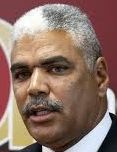
Cannonier |
Cannonier, (Legay) Craig (b. 1963, St. David's, Bermuda), premier of Bermuda (2012-14).
Cano (y Dávila), Luciano María (b. Dec. 11, 1789, Siguas, Arequipa, Peru - d. 1864, Lima, Peru), finance minister (1841-42) and justice and education minister (1857-59) of Peru. He was also president of the Supreme Court (1860-61, 1863-64).
Cano Manuel y Ramírez de Arellano, Antonio (Vicente Pascual Pedro de Alcántara) (b. May 14, 1769, Chinchilla [now Chinchilla de Montearagón, Albacete province, Castilla-La Mancha], Spain - d. December 1836, Madrid, Spain), justice minister (1812-13) and acting first secretary of state (1813) of Spain (in Resistance); brother of Vicente Cano Manuel y Ramírez de Arellano. He was also president of the Supreme Court (1820-23).
Cano Manuel y Ramírez de Arellano, Vicente (b. Sept. 6, 1764, Chinchilla [now Chinchilla de Montearagón, Albacete province, Castilla-La Mancha], Spain - d. December 1837/January 1838, Madrid, Spain), justice minister (1821-22) and acting interior minister (1822) of Spain.
Cánovas del Castillo, Antonio (b. Feb. 8, 1828, Málaga, Spain - d. [assassinated] Aug. 8, 1897, Santa Águeda, Mondragón, Guipúzcoa province, Spain), prime minister of Spain (1874-75, 1875-79, 1879-81, 1884-85, 1890-92, 1895-97). He was also chargé d'affaires in the Papal State (1855-57), civil governor of Cádiz (1857-58), minister of interior (1864), overseas (1865-66), and finance (interim, 1866), and president of the Congress of Deputies (1885-86).
Cansanção, José Júlio (Bezerra) (b. Jan. 7, 1905, Pilar, Alagoas, Brazil - d. Aug. 18, 1958, Maceió, Alagoas), acting governor of Alagoas (1928).
Canta, Iordache (b. 1740 - d. May 1826), princely lieutenant of Moldavia (1802).
Cantacuzino, Alexandru (b. 1813 - d. February 1884, Athens, Greece), foreign minister (1862) and finance minister (1862-63) of Romania.
Cantacuzino, Prince George (Grigore), byname Nababul (b. Sept. 22, 1837, Bucharest, Walachia [now in Romania] - d. March 23, 1913, Bucharest), prime minister and interior minister of Romania (1899-1900, 1905-07). He was also mayor of Bucharest (1869-70), minister of justice (1870), agriculture, commerce, and public works (1873-75), and finance (1875-76), and president of the Chamber of Deputies (1889-91, 1900-01) and the Senate (1892-95, 1911-13).
Cantacuzino, Serban (b. 1640 - d. Nov. 8 [Oct. 29, O.S.], 1688), prince of Walachia (1678-88).
Cantacuzino, Stefan Constantin (b. 16... - d. [executed] June 1716, Constantinople, Ottoman Empire [now Istanbul, Turkey]), prince of Walachia (1714-16); cousin of Constantin Pavel Basarab Cantacuzino Brâncoveanu; nephew of Serban Cantacuzino.
Cantanhedes, José Thomaz de Aguiar (b. 1833? - d. July 31, 1883, Teresina, Piauí, Brazil), acting president of Piauí (1872).
Cantau, Julien Edgard (b. Dec. 26, 1877 - d. July 23, 1952), acting governor of French Guiana (1923).
Cantemir, Antioh Constantin (b. Dec. 4, 1670 - d. 1724, Constantinople, Ottoman Empire [now Istanbul, Turkey]), prince of Moldavia (1695-1700, 1705-07); son of Constantin Cantemir.
Cantemir, Constantin (d. March 23 [March 13, O.S.], 1693, Iasi, Moldavia [now in Romania]), prince of Moldavia (1685-93).
Cantemir, Dimitrie Constantin, Russian Dmitry (Konstantinovich) Kantemir (b. Nov. 5 [Oct. 26, O.S.], 1673, Silisteni, Moldavia [now Dimitrie Cantemir, Romania] - d. Sept. 1 [Aug. 21, O.S.], 1723, Dmitrovka [now Dmitrovsk, Oryol oblast], Russia), prince of Moldavia (1693, 1710-11); son of Constantin Cantemir; brother of Antioh Constantin Cantemir. He was also known as a scholar and scientist.
Canterbury, Charles Manners-Sutton, (1st) Viscount (b. Jan. 29, 1780, Screveton, Nottinghamshire, England - d. July 21, 1845, Paddington, Middlesex [now part of London], England), British politician. He was speaker of the House of Commons (1817-35). He was knighted in 1833 and made viscount in 1835.
Canterbury, John Henry Thomas Manners-Sutton, (3rd) Viscount (b. May 27, 1814, London, England - d. June 23, 1877, London), lieutenant governor of New Brunswick (1854-61) and governor of Trinidad (1864-66) and Victoria (1866-73); son of Charles Manners-Sutton, Viscount Canterbury. He was knighted in 1866 and succeeded as viscount in 1869.
Cantero de San Vicente (González y González), Manuel (b. Sept. 21, 1804, Madrid, Spain - d. Dec. 6, 1876, Madrid), finance minister of Spain (1843, 1854, 1856). He was also governor of the Bank of Spain (1868-76).
Cantilo (Botet), José María (b. Aug. 23, 1877, Buenos Aires, Argentina - d. July 29, 1953, Buenos Aires), foreign minister of Argentina (1938-40). He was also chargé d'affaires in Brazil (1910), minister to Paraguay (1916-19), Portugal (1919-27), and Switzerland (1927-32), and ambassador to Uruguay (1932-33) and Italy (1933-38).
Canto Dinzey, Alfonso (b. San Pedro de Macorís province, Dominican Republic), Dominican Republic diplomat. He was ambassador to Japan (c. 1989), Mexico (c. 1991), France (c. 2012), and the United Kingdom (c. 2013) and permanent representative to the United Nations (1995-96).
Cantoni, Aldo (b. June 25, 1892, San Juan, San Juan, Argentina - d. Sept. 18, 1948, San Juan, San Juan), governor of San Juan (1926-28); brother of Federico Cantoni.
Cantoni, Federico (José María) (b. April 12, 1890, San Juan, San Juan, Argentina - d. July 22, 1956, San Juan, San Juan), governor of San Juan (1923-25, 1932-34). He was also Argentine ambassador to the Soviet Union (1947-50).
Cantonnet, Jean Joseph Adolphe (b. Oct. 15, 1826, Vandenesse, Nièvre, France - d. Sept. 23, 1918, Clermont-Ferrand, Puy-de-Dôme, France), French administrator. He was prefect of the départements of Allier (1870, provisional administrator), Indre (1870-71), Pyrénées-Orientales (1871-72), and Rhône (1872-73).
Cantrell, LaToya, née Wilder (b. April 3, 1972, Los Angeles, Calif.), mayor of New Orleans (2018- ).
Cantuária, João Tomás de (b. Sept. 24, 1835, Rio Grande do Sul province [now state], Brazil - d. March 20, 1908, Rio de Janeiro, Brazil), war minister of Brazil (1897-98).
Canty, Brian (George John) (b. Oct. 23, 1931), governor of Anguilla (1989-92).

Cao Kun |
Cao Kun, Wade-Giles Ts'ao K'un (b. Dec. 12, 1862, Tianjin, China - d. May 16, 1938, Tianjin), military (1916-22) and civil (1917-18) governor of Zhili and president of China (1923-24). He was a commander in the Beiyang Army since the Qing dynasty. After the founding of the republic, he became commander of a division. He became a leader of the Zhili Military Group after the death of Gen. Feng Guozhang. Having defeated Duan Qirui in 1920 together with Zhang Zuolin, and then defeated his ally Zhang in 1922, he forced Pres. Xu Shichang to resign, and revived the parliament, which elected Li Yuanhong president again. But soon after that, he grew a strong desire to be the chief of state himself, so he first bought off the speaker of the House of Representatives, Wu Jinglian, who persuaded the MPs to "impeach" President Li. After Li left, Cao managed to get the MPs to elect him as president by bribery (5,000 yuan per congressman vote). In 1924, after reorganizing his own army, Zhang Zuolin started a war against Cao, during which Cao's general Feng Yuxiang left the front line and unexpectedly occupied Beijing in October, detained the Cao brothers, and dissolved the parliament which elected him. Cao moved to Tianjin after being released in April 1926.
Cao Rui (b. 1868, Tianjin, China - d. Nov. 30, 1924, Beijing, China), civil governor of Zhili (1918-22). He was a general of the Zhili military group. He helped his elder brother Cao Kun to win his presidential campaign in 1923 through bribery and was detained by Feng Yuxiang in the Beijing coup of October 1924. He committed suicide as a detainee the following month.

Cao Rulin |
Cao Rulin (b. Jan. 23, 1877, Shanghai, China - d. Aug. 4, 1966, Detroit, Mich.), foreign minister (1913, 1916), transport minister (1916, 1917-19), and finance minister (1918-19) of China. He studied abroad in Japan; after his return, he was appointed deputy secretary of foreign affairs. In 1913, he was appointed deputy foreign minister; he signed the "Twenty-one Demands" treaty with Japanese delegates in 1915. China's failure in diplomacy at the Paris conference of 1919, which, in accordance with the Twenty-one Demands, transferred all the German interests in China to Japan instead of restoring them to China, despite the fact that China was a victorious nation of World War I, led to the famous "May 4 Movement." The students in anger burnt Cao's house. Under pressure from all sides, Cao was sacked as minister. He served for the Japanese-backed "North China Provisional Government" during World War II. He fled to Taiwan in 1949, and then moved to Japan and the U.S.
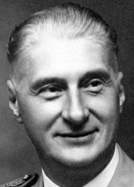
Capagorry |
Capagorry, André (Jean Charles) (b. Feb. 17, 1894, Bayonne, Basses-Pyrénées [now Pyrénées-Atlantiques], France - d. May 19, 1981, Saint-Denis, Réunion), governor of Réunion (1942-47).
Capanema, Gustavo, Filho (b. Aug. 10, 1900, Pitangui, Minas Gerais, Brazil - d. March 10, 1985, Rio de Janeiro, Brazil), federal interventor in Minas Gerais (1933). He was also Brazilian minister of education and health (1934-45).
Capdeville, Robert (b. Dec. 2, 1919, Gensac, Gironde, France - d. Oct. 19, 2001, Carcassonne, Aude, France), president of the Regional Council of Languedoc-Roussillon (1983-86).
Capelle, Alfred (b. March 20, 1940, Jabwor, Jaluit Atoll, Marshall Islands), Marshall Islands official. He was mayor of Likiep Atoll (1966-68) and permanent representative to the United Nations (2002-07).
Capello, Guilherme Augusto de Brito (b. Aug. 5, 1839, Lisbon, Portugal - d. March 21, 1926), governor-general of Angola (1886-92, 1896-97).
Caperon, (Aignan) Maurice (b. April 28, 1846, Orléans, France - d. Jan. 2, 1907, Paris, France), interim governor of Saint-Pierre and Miquelon (1893-94, 1897-99, 1899-1900, 1900-01, 1902-03, 1904).
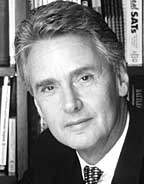
Caperton |
Caperton, W. Gaston, in full William Gaston Caperton III (b. Feb. 21, 1940, Charleston, W.Va.), governor of West Virginia (1989-97). Running for governor in 1988, the Democrat won 38% in a seven-candidate primary; in the general, he faced Arch Moore, elected in 1968, 1972, and 1984, but under a cloud on corruption charges for which in 1990 he was sentenced to five years in jail; Caperton won 59%-41%. Once in office, Caperton's job rating plunged when he broke his no-new-taxes pledge and steered to passage a $392 million tax increase, restoring the food sales tax former governor (now Senator) Jay Rockefeller had repealed. Then came a soap opera episode, as his wife divorced him and ran for state treasurer. But he had positive achievements, including an ethics bill, a road building package, and, most important, an education bill that raised teacher pay, set performance standards, and promised a computer for every classroom. Caperton won the 1992 Democratic primary, but led "coal miner's daughter" Charlotte Pritt by only 43%-35%. But he beat state Agriculture Secretary Cleve Benedict 56%-37% in the general, and afterwards his popularity seemed to rise as the West Virginia economy grew and new jobs were created. He claimed credit for reorganizing, rationalizing, and cutting state government; but he failed to get his Health Care Authority bill through the legislature in 1995. Caperton was not eligible for reelection in 1996.

Capes |
Capes, Mark (Andrew) (b. Feb. 19, 1954), deputy governor of Anguilla (2002-06) and Bermuda (2006-09) and governor of Saint Helena (2011-16).
Capest, Pierre Paul Marie (b. Oct. 26, 1857, Pointe-à-Pitre, Guadeloupe - d. 19...), governor of Senegal and acting governor-general of French West Africa (1902).
Capgras, Émile (b. June 5, 1926, Le Robert, Martinique - d. Aug. 14, 2014, Fort-de-France, Martinique), president of the Regional Council of Martinique (1992-98).
Capiberibe, Carlos Camilo Góes (b. May 23, 1972, Macapá, Amapá, Brazil), governor of Amapá (2011-15); son of João Alberto Rodrigues Capiberibe.
Capiberibe, João Alberto Rodrigues (b. May 6, 1947, Afuá, Pará, Brazil), governor of Amapá (1995-2002). He was also mayor of Macapá (1989-93).
Capiberibe, Manoel de Souza Teixeira, barão de (b. 1785, Recife, Pernambuco, Brazil - d. Aug. 11, 1861, Recife), acting president of Pernambuco (1841, 1845, 1848). He was made baron in 1849.

Capicchioni | 
J. Capitanich |
Capicchioni, Gian Carlo (b. Feb. 19, 1956, Borgo Maggiore, San Marino), captain-regent of San Marino (2013-14).
Capitanich, (Mateo) Daniel (b. Sept. 12, 1969, Roque Sáenz Peña, Chaco, Argentina), Argentinian diplomat; brother of Jorge Capitanich. He has been ambassador to Nicaragua (2020- ).
Capitanich, Jorge (Milton) (b. Nov. 28, 1964, Roque Sáenz Peña, Chaco, Argentina), cabinet chief of Argentina (2002, 2013-15) and governor of Chaco (2007-15, 2019- ). He was also economy minister (2001).
Capitant, René (Marie Alphonse Charles) (b. Aug. 19, 1901, La Tronche, Isère, France - d. May 23, 1970, Suresnes, Hauts-de-Seine, France), justice minister of France (1968-69). He was also Free French commissioner (1943-44) and French minister (1944-45) of national education and general secretary of the Democratic Union of Labour (1959-62).
Caplikas, Julius (b. June 20, 1888, Ryliskiai, Russia [now in Lithuania] - d. [executed] July 30, 1941, Moscow, Russian S.F.S.R.), interior minister of Lithuania (1935-38).
Caplovic, Dusan (b. Sept. 18, 1946, Bratislava, Czechoslovakia [now in Slovakia]), a deputy prime minister of Slovakia (2006-10). He was also minister of environment (acting, 2009) and education, science, research, and sport (2012-14).
Capo-Chichi, Gratien Tonakpon (b. 1938, Savalou, Dahomey [now Benin] - d. April 11, 2010), Beninese politician. He was prefect of Ouémé province (1975-80), minister of literacy and popular culture (1981-84), and permanent representative to the United Nations (1988-90).
Capobianco Ribera, Guillermo (b. June 6, 1945, Concepción, Santa Cruz, Bolivia - d. May 12, 2020, Santa Cruz, Bolivia), interior and justice minister of Bolivia (1989-91). He was also minister of housing and urban development (1984-85).
Cappelen, Andreas (Zeier) (b. Jan. 31, 1915, Vang, Hedemarkens amt [now in Innlandet fylke], Norway - d. Sept. 2, 2008, Stavanger, Norway), finance minister (1963, 1963-65), foreign minister (1971-72), and justice minister (1979-80) of Norway. He was also minister of municipal affairs and labour (1958-63).
Cappelen, Johan (b. Feb. 25, 1889, Skogn, Nordre Trondhjems amt [now in Trøndelag fylke], Norway - d. Oct. 18, 1947, Trondheim, Norway), governor of Sør-Trøndelag (1940-47) and justice minister of Norway (1945). He was also mayor of Trondheim (1931-34).
Cappelen, Ulrik Frederik (b. May 13, 1797, Skien, Bratsberg amt [now in Vestfold og Telemark fylke], Norway - d. Nov. 24, 1864, Laurvig [now Larvik], Jarlsberg og Laurvigs amt [now in Vestfold og Telemark fylke], Norway), governor of Finmarkens amt (1829-33) and Jarlsberg og Laurvigs amt (1833-64).
Cappelli, Marchese Raffaele (b. March 23, 1848, San Demetrio nei Vestini, Two Sicilies [now in Italy] - d. June 1, 1921, Rome, Italy), foreign minister of Italy (1898).
Capriles Radonski, Henrique (b. July 11, 1972, Caracas, Venezuela), governor of Miranda (2008-17) and Venezuelan presidential candidate (2012, 2013).

Caprivi |
Caprivi (de Caprara de Montecuculi), (Georg) Leo Graf von (b. Feb. 24, 1831, Charlottenburg, Prussia [now part of Berlin, Germany] - d. Feb. 6, 1899, Skyren, Brandenburg, Prussia, Germany [now Skórzyn, Poland]), chancellor of Germany (1890-94). He entered the army in 1849 and took part in the Austrian campaign of 1866. In 1870-71, in the Franco-German War, he was chief of staff to the X Army Corps (part of the II Army) and took part in battles before Metz as well as in those around Orléans. In 1883 he was made chief of the admiralty, in which post he commanded the fleet and represented the department in the Reichstag. He resigned in 1888 and was appointed commander of the X Army Corps. Chancellor Otto von Bismarck had already referred to Caprivi as a possible successor, for Caprivi had shown great administrative ability and was unconnected with any political party, and in March 1890 he was appointed chancellor, foreign minister, and Prussian prime minister. His first achievement as chancellor was the conclusion in July 1890 of a general agreement with Great Britain regarding the spheres of influence of the two countries in Africa. But the abandonment of an aggressive policy in East Africa and Nigeria and the withdrawal of German claims to Zanzibar (in exchange for Helgoland) aroused the hostility of the colonial parties. He was given the title of count (Graf) in 1891. His position was seriously compromised in 1892 when an education bill that he had defended by saying that the question at issue was Christianity or atheism failed to carry, and he resigned the Prussian prime ministry, which was then given to Count Eulenburg. In 1894 a difference arose between Eulenburg and Caprivi concerning the bill for an amendment of the criminal code (the Umsturzvorlage), and in October the emperor dismissed both.
Captan, Monie (Ralph) (b. May 28, 1962), foreign minister of Liberia (1996-2003); nephew of Charles Taylor.
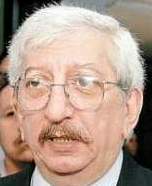
Caputo |
Caputo, Dante (Mario Antonio) (b. Nov. 25, 1943, Buenos Aires, Argentina - d. June 20, 2018, Buenos Aires), foreign minister of Argentina (1983-89) and president of the UN General Assembly (1988-89).

Caputová |
Caputová, Zuzana, née Strapáková (b. June 21, 1973, Bratislava, Czechoslovakia [now in Slovakia]), president of Slovakia (2019- ).
Car, Stanislaw (Henryk) (b. July 26, 1882, Warsaw, Poland - d. June 18, 1938, Warsaw), justice minister of Poland (1928-29, 1930). He was also head of the presidential chancellery (1922-23, 1926) and marshal of the Sejm (1935-38).
Caradon, Hugh Mackintosh Foot, Baron (b. Oct. 8, 1907, Plymouth, England - d. Sept. 5, 1990, near Plymouth), British colonial administrator. He was a son of Isaac Foot, a scholarly, impassioned Liberal Party member of Parliament; his two brothers Dingle and Michael were also elected to Parliament (later the three brothers were known as "the Three Left Feet" for their politics). Hugh instead joined the civil administrative service (1929) and was posted to Palestine (1929-39) and then to Transjordan (1939-43), where he joined the Army as a lieutenant colonel in charge of the military administration of Cyrenaica (1943). He was named colonial secretary of Cyprus (1943-45) and then, having established a record of ruling under turmoil, was dispatched to Jamaica (1945-47) as colonial secretary. Next he was sent to Nigeria (1947-50), where he was a steadying presence as the idea of independence grew. He returned to Jamaica in 1951 and stayed until 1957 as captain general and governor in chief. He then accepted the post of governor of Cyprus, where he championed conciliation between Greeks and Turks and a plan for peaceable independent rule, which Cyprus achieved in 1960. Foot was made (1961) Britain's representative to the UN and appointed principal adviser on emerging countries. He resigned (1962) over Britain's policy on Rhodesia, but in 1963 he returned to the UN as a special adviser on African development and inquirer into apartheid in South Africa. In 1964, with the return of a Labour government, Foot was created a life peer and appointed permanent U.K. representative to the UN. He left that post in 1970 but continued as a consultant (1970-75) to the UN Development Program. He was made an Officer of the Order of the British Empire in 1939.
Carafa di Traetto, Luigi (b. May 17, 1797, Naples, Kingdom of Naples [now in Italy] - d. March 25, 1871), foreign minister of the Two Sicilies (1852-60). He was also chargé d'affaires in the Papal State (1831), Austria (1831-34), the Ottoman Empire (1834-35), and France (1835-40).
Caragea, Ioan Gheorghe (b. 1745 [or 1754?], Constantinople, Ottoman Empire [now Istanbul, Turkey] - d. 1845, Athens, Greece), prince of Walachia (1812-18).
Caragea, Nicolae Constantin (b. 1737, Constantinople, Ottoman Empire [now Istanbul, Turkey] - d. 1784, Constantinople), prince of Walachia (1782-83). He was also grand dragoman of the Porte (1777-82).
Caraman-Chimay, (Marie) Joseph (Guy Henri Philippe de Riquet), prince de (b. Oct. 9, 1836, Menars, Loir-et-Cher, France - d. March 29, 1892, Brussels, Belgium), foreign minister of Belgium (1884-92). He was also chargé d'affaires in Switzerland (1868-70) and governor of Hainaut (1870-78). He became prince de Caraman in 1867 and prince de Chimay in 1886.

A. Carattoni | 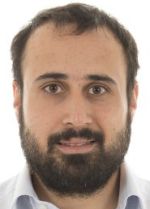
E. Carattoni |
Carattoni, Antonio (b. Nov. 8, 1945, Sant'Agata Feltria, Italy), captain-regent of San Marino (2006-07).
Carattoni, Enrico (b. May 18, 1985, Borgo Maggiore, San Marino), captain-regent of San Marino (2017-18).
Caravedo, Enrique, interior, police, and public works minister of Peru (1887).
Caravelas, Carlos Carneiro de Campos, visconde de (b. Nov. 1, 1805, São Salvador da Bahia [now Salvador], Brazil - d. April 28, 1878, Rio de Janeiro, Brazil), foreign minister (1862, 1864, 1873-75) and finance minister (1864-65) of Brazil; son of José Joaquim Carneiro de Campos, visconde e marquês de Caravelas. He was also president of Minas Gerais (1842, 1857-60) and São Paulo (acting, 1852-53). He was made viscount in 1872.
Caravelas, José Joaquim Carneiro de Campos, visconde e marquês de (b. March 4, 1768, São Salvador da Bahia [now Salvador], Brazil - d. Sept. 8, 1836, Rio de Janeiro, Brazil), principal minister (1823, 1826-27, 1829-30) and foreign minister (1823) of Brazil. He was also justice minister (1826-27) and member of the Regency (1831). He was made viscount in 1825 and marquess in 1826.
Caravelas, Manoel Alves Branco, visconde de (b. June 7, 1797, São Salvador da Bahia [now Salvador], Brazil - d. July 13, 1855, Niterói, Brazil), foreign minister (1835-36), principal minister (1837, 1847 [acting]), and chairman of the Council of Ministers (1847-48) of Brazil. He was also justice minister (1835, 1844) and finance minister (1837, 1839-40, 1847, 1847-48). He was made viscount in 1854.
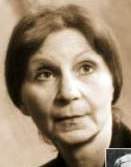
H.O. Caraway |
Caraway, Hattie Ophelia, née Wyatt (b. Feb. 1, 1878, near Bakerville, Tenn. - d. Dec. 21, 1950, Falls Church, Va.), U.S. politician. In 1902 she married Thaddeus H. Caraway, who subsequently became U.S. senator for Arkansas. When he died in November 1931, his widow was appointed to his seat by the state's governor, and she subsequently won a special election (January 1932) to fill the few remaining months of her late husband's term. She thus became the first woman elected to the U.S. Senate. She won reelection to the seat later in 1932 with the help of Louisiana governor Huey Long, who campaigned for her. Caraway was reelected again in 1938, after a primary victory over Rep. John L. McClellan, but failed in her bid for a third term in 1944, being defeated in the Democratic primary by Rep. J. William Fulbright. In her 13 years in the Senate, she was the first woman to preside over a session of that body and the first to serve as a committee chairman. She supported prohibition, labour unions' and women's rights, and most of the New Deal legislation.
Caraway, Paul W(yatt) (b. Dec. 23, 1905, Jonesboro, Ark. - d. Dec. 13, 1985, Washington, D.C.), U.S. high commissioner of the Ryukyu Islands (1961-64); son of Hattie Ophelia Caraway and Thaddeus H. Caraway.
Caraway, Thaddeus H(oratius) (b. Oct. 17, 1871, near Springhill, Stoddard county, Mo. - d. Nov. 6, 1931, Little Rock, Ark.), U.S. politician. A Democrat, he was a member of the House of Representatives (1913-21) and senator from Arkansas (1921-31).
Carayon, Jean-Louis (Joseph) (b. Jan. 26, 1794, Castres, Tarn, France - d. ...), commandant of Sainte-Marie de Madagascar (1819-21, 1830).
Carazo (Aranda), Evaristo (b. Oct. 24, 1821, Cartago, Costa Rica [according to other sources Rivas, Nicaragua] - d. Aug. 1, 1889, Managua, Nicaragua), president of Nicaragua (1887-89).

R. Carazo |
Carazo Odio, Rodrigo (José Ramón Francisco de Jesús) (b. Dec. 27, 1926, Cartago, Costa Rica - d. Dec. 9, 2009, San José, Costa Rica), president of Costa Rica (1978-82); great-grandson-in-law of Saturnino Lizano. Through the 1950s and 1960s he was active in the Partido de Liberación Nacional (PLN) and served as director of the National Institute of Housing and Urbanization (1954-59) and the Central Bank of Costa Rica (1960-65). He resigned from the party in 1969 and became a leader of the political opposition. He was an unsuccessful presidential candidate for Renovación Democrática in 1974. In a stunning upset, Carazo defeated the candidate of the dominant PLN to capture the presidency in February 1978. His triumph was in part due to the PLN's ties with fugitive U.S. financier Robert Vesco. Carazo campaigned on a reform platform as candidate of a four-party opposition coalition. Speaking from a balcony in downtown San José following announcement of his narrow victory (Carazo captured slightly more than half of the 755,000 votes cast), he pledged, as he had throughout the campaign, to get rid of "waste and corruption." Indeed, Carazo's campaign had focused not so much on opponent Luis Alberto Monge as on his opponent's party. Appealing to what he sensed was the nation's "enormous desire for change," he lashed out at the government's expanding bureaucracy and budget. But when Carazo talked about getting rid of corruption, he usually meant expelling Vesco, the accused expatriate embezzler. He viewed Vesco's activities in Costa Rica, especially his close association with former president and PLN founder José Figueres Ferrer and with outgoing president Daniel Oduber Quirós, as reprehensible. Carazo charged that Vesco had been involved in government corruption in Costa Rica, and he vowed that he would be asked to leave Costa Rica "as quickly as possible." Vesco's application for Costa Rican citizenship was turned down in August.
Carazo Zeledón, Rodrigo Alberto (b. March 15, 1948), Costa Rican politician; son of Rodrigo Carazo Odio. He was ombudsman (1993-97) and permanent representative to the United Nations (2018-22).
Carbajal, Manuel, finance minister of Peru (1891-92).
Carbillet, Gabriel Marie Victor (b. June 19, 1884, Langres, Haute-Marne, France - d. 19...), governor of Jebel Druze (1924-25).
Carbó (Ortiz), Enrique (Ventura Modesto) (b. Feb. 24, 1861, Paraná, Entre Ríos, Argentina - d. Feb. 2, 1920, Paraná), governor of Entre Ríos (1903-07) and finance minister of Argentina (1914-15). He was also mayor of Paraná (1890-92).
Carbo (y Amador), Luis F(elipe) (b. Aug. 17, 1857, Guayaquil, Ecuador - d. Feb. 25, 1913, New York), interior minister (1882-83, 1895) and foreign minister (1895, 1907-08) of Ecuador. He was also minister to Mexico (1893), the United States (1896-1903, 1906-07), and Colombia (1899-1900).
Carbo (y Noboa), Pedro (José) (b. March 19, 1813, Guayaquil, New Granada [now in Ecuador] - d. Dec. 24, 1894, Guayaquil), foreign minister of Ecuador (1845, 1877-78). He was also chargé d'affaires in Colombia (1839-40) and Peru (1847) and supreme chief of Guayas (in rebellion against national government 1883).
Carbonara, Luigi (Domenico Gaetano) (b. March 11, 1753, Genoa - d. Jan. 25, 1826, Genoa), member of the Extraordinary Commission of Government of the Ligurian Republic (1800-02). He was made count by Napoléon on Oct. 15, 1809.
Carbonnel, Eric (Charles Marie) de (b. July 8, 1910, Paris, France - d. Aug. 2, 1965, Biarritz, France), French ambassador to Saarland (1955-56).

Çarçani |
Çarçani, Adil (b. May 4 or 15, 1922, Fushëbardhë, southern Albania - d. Oct. 13, 1997, Tiranë, Albania), prime minister of Albania (1982-91). He rose from the ranks to become the political leader of a partisan army division during Albania's fight against the Italian fascist and Nazi occupiers during World War II. A member of the Communist party as early as a year after its creation in November 1941, he became a member of the 11-member Politburo in 1961. He was minister of industry (1951-53), industry and mines (1955-60), and mines and geology (1960-65), a deputy premier (1965-74), and first deputy premier (1974-82). The avuncular Çarçani became premier following the mysterious death of Prime Minister Mehmet Shehu in December 1981. His government fell after crowds tore down the statue of Enver Hoxha in central Tiranë in February 1991. He was later elected to parliament and made the opening speech of Albania's first freely-elected parliament in April 1991. In 1994 he was found guilty of abuse of power and embezzlement and was sentenced to five years in jail which were commuted to house arrest because he was too ill to serve.
Cárcano (Sáenz de Zumarán), Miguel Ángel (b. July 18, 1889, Buenos Aires, Argentina - d. May 8, 1978, Buenos Aires), foreign minister of Argentina (1961-62). He was also agriculture minister (1936-38) and ambassador to France (1938-42) and the United Kingdom (1942-46).
Carcano, Paolo (b. Jan. 24 or 27, 1843, Como, Austria [now in Italy] - d. April 6, 1918, Como), finance minister (1898-99, 1901-03) and treasury minister (1905-06, 1907-09, 1914-17) of Italy. He was also minister of agriculture, industry, and commerce (1900-01).
Carde, Jules (Gaston Henri) (b. June 3, 1874, Batna, Algeria - d. July 10, 1949), lieutenant governor of Middle Congo (1916-17), commissioner of French Cameroons (1919-23), and governor-general of French West Africa (1923-30) and Algeria (1930-35).
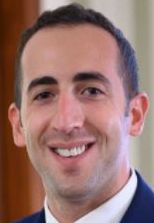
A. Cardelli |
Cardelli, Alessandro (b. May 7, 1991, Cesena, Italy), captain-regent of San Marino (2020-21).
Cardelli, Luciano (b. Dec. 6, 1949), captain-regent of San Marino (1988-89).
Carden, Derrick Charles, byname Bill Carden (b. Oct. 30, 1921 - d. April 26, 2006), British political agent in Qatar (1955-58) and consul-general in Muscat and Oman (1965-69). He was also ambassador to Yemen (Sana) (1973-76) and The Sudan (1977-79).
Cardenal (Martínez), Ernesto (b. Jan. 20, 1925, Granada, Nicaragua - d. March 1, 2020, Managua, Nicaragua), Nicaraguan politician. Also known as a poet, he was culture minister (1979-87).
Cardenal (Martínez), Fernando (b. Jan. 26, 1934, Granada, Nicaragua - d. Feb. 20, 2016, Managua, Nicaragua), Nicaraguan politician; brother of Ernesto Cardenal. He was education minister (1984-90).
Cardenal (Martínez), Rodrigo (b. Aug. 6, 1946, Managua, Nicaragua), Nicaraguan diplomat; brother of Ernesto Cardenal and Fernando Cardenal. He was ambassador to East Germany (1985-90).
Cárdenas (del Castillo), Adán (b. Feb. 22, 1836, Rivas, Nicaragua - d. July 12, 1916, Managua, Nicaragua), minister of foreign affairs, development, and public instruction (1880-82) and president (1883-87) of Nicaragua.
Cárdenas (Hurtado), Adán, finance minister of Nicaragua (1925-26); son of the above.
Cárdenas (Navarro), Catón (b. Dec. 5, 1890, Quito, Ecuador - d. Jan. 30, 1969), foreign minister of Ecuador (1932). He was also education minister (1933) and minister to Colombia (1935-37).
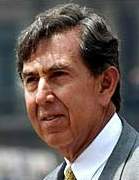
C. Cárdenas |
Cárdenas (Solórzano), Cuauhtémoc (b. May 1, 1934, Mexico City, Mexico), chief of government of the Distrito Federal (mayor of Mexico City; 1997-99); son of Lázaro Cárdenas. He was elected to the Senate in 1976. In 1980, as a member of the Institutional Revolutionary Party (PRI), he began a six-year term as governor of Michoacán. Disillusioned with PRI manoeuvres to undo reforms instituted by his father, Cárdenas split with the party in 1987. The following year he headed a coalition comprising Socialists and former Communists and made a bid for the presidency. In what Cárdenas believed to be an act of intimidation, his top campaign aide was murdered shortly before the election. While ballots were being tabulated, the government abruptly ended the count, declaring PRI candidate Carlos Salinas de Gortari president. In October 1988 he announced the formation of a new party, the Party of the Democratic Revolution (PRD). Cárdenas ran third in the 1994 presidential election. In retaliation for his outspoken stand against government privatization and the North American Free Trade Agreement, Salinas's government targeted Cárdenas and his supporters. From 1988 to 1994 approximately 500 activists affiliated with the PRD were murdered. Cárdenas returned, however, to clinch the 1997 Mexico City race for mayor. Promising to tackle problems never before addressed by PRI leaders, he campaigned against poverty, corruption, crime, and pollution. He won the July 6 election in a landslide, with 47% of the vote, the largest margin of victory by an opposition leader since 1929. The PRI polled 26% of the vote, followed by the right-wing National Action Party with 16%. In December he was sworn in as the first-ever elected mayor of North America's largest city. Previously, the president of Mexico had appointed the mayor. Cárdenas made a third unsuccessful attempt for the presidency in 2000. In later years he often clashed with the PRD leadership, and he resigned from the party in 2014.
Cárdenas (Ezcurra), Emilio (Jorge) (b. Aug. 13, 1942, Buenos Aires, Argentina), Argentine diplomat. He was permanent representative to the United Nations (1993-96).
Cárdenas (Garza), Francisco A(tenógenes) (b. July 16, 1879, Abasolo, Nuevo León, Mexico - d. July 3, 1943, San Antonio, Texas, U.S.), governor of Nuevo León (1931-33).
Cárdenas, Jesús, governor of Tamaulipas (1848-51, 1851-52). In 1840 he was president of the "Republic of Rio Grande" which declared independence at Laredo, Texas, in January and claimed extensive territory of northern Mexico before collapsing in November.

Lázaro Cárdenas |
Cárdenas (del Río), Lázaro (b. May 21, 1895, Jiquilpan, Michoacán, Mexico - d. Oct. 19, 1970, Mexico City, Mexico), president of Mexico (1934-40). At the age of 18, he joined a branch of the revolutionary army led by Gen. Guillermo García Aragón, and within a year he had risen to the rank of captain. When the revolutionary forces split into opposing factions, he remained loyal to Venustiano Carranza, whose army triumphed in 1920. In that year Cárdenas was appointed general, the highest rank in the Mexican army, and continued to participate in military campaigns until 1929. In 1928, he was elected governor of his native state of Michoacán, serving in that position for a full term, until 1932. Cárdenas also played an important role in forming the Partido Nacional Revolucionario (PNR) in 1929, and in the following year he was chosen to be the party's president. He was minister of the interior for six weeks in 1931 and minister of war and marine for five months in 1933. It was from the latter job that he retired to become the PNR's candidate for president in the 1934 election. Although his election was assured, he spent the year between his nomination and polling day carrying out an intensive campaign. Once elected president, he moved cautiously at first. The army, the civil administration, and much of the political structure of the regime remained under the control of former president Plutarco Elías Calles. In 1936, Cárdenas felt strong enough to have Calles sent into exile in the United States. Under his agrarian reform program, Cárdenas distributed nearly twice as much land to peasants as had all of his predecessors combined. His presidential term ended in 1940, but he returned to public office to serve as minister of national defense (1943-45). A supporter of Cuba's Fidel Castro, he left the ruling party in 1961.
Cárdenas (Iglesias), Leonidas (b. July 9, 1861, Tarma, Peru - d. July 6, 1912, Lima, Peru), interior minister of Peru (1901-02).
Cárdenas (Santamaría), Mauricio (b. June 9, 1962, Medellín, Colombia), finance minister of Colombia (2012-18). He was also minister of economic development (1994), transport (1998-99), and mines and energy (2011-12) and director of the National Planning Department (1999-2000).
Cárdenas, Miguel, interior and justice minister of Nicaragua (1911-13).
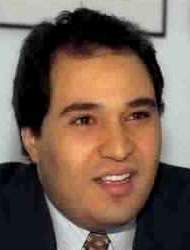
Cárdenas Batel |
Cárdenas Batel, Lázaro (b. April 2, 1964, Jiquilpan, Michoacán), governor of Michoacán (2002-08); son of Cuauhtémoc Cárdenas.
Cárdenas Jiménez, Alberto (b. April 4, 1958, Zapotlán el Grande, Jalisco, Mexico), governor of Jalisco (1995-2001). He was also Mexican minister of environment and natural resources (2003-05) and agriculture (2006-09).
Cardi, Sebastiano (b. Nov. 15, 1956, Rome, Italy), Italian diplomat. He was permanent representative to the United Nations (2013-18).
Cardon, Philip V(incent) (b. April 25, 1889, Logan, Utah - d. Oct. 13, 1965), director-general of the Food and Agriculture Organization (1954-56).
Cardoso, Adauto Lúcio (b. Dec. 24, 1904, Curvelo, Minas Gerais, Brazil - d. July 20, 1974, Rio de Janeiro, Brazil), Brazilian politician. He was president of the Chamber of Deputies (1966).
Cardoso, António (da) Silva (b. Feb. 3, 1928, Tomar, Portugal - d. June 13, 2014, Lisbon, Portugal), high commissioner of Angola (1975).
Cardoso, Augusto Ignácio do Espírito Santo (b. May 31, 1867, Goiás, Goiás, Brazil - d. Sept. 23, 1947, Rio de Janeiro, Brazil), war minister of Brazil (1932-34).
Cardoso, Boaventura da Silva (b. July 26, 1944, Luanda, Angola), Angolan politician. He was minister of culture (1981-90, 2002-08) and information (1990-91), ambassador to France (1992-99) and Italy (1999-2002), and governor of Malanje (2008-12).
Cardoso, Ciro do Espírito Santo (b. Aug. 24, 1898, Lapa, Paraná, Brazil - d. Aug. 31, 1979, Belo Horizonte, Minas Gerais, Brazil), war minister of Brazil (1952-54); son of Augusto Ignácio do Espírito Santo Cardoso; brother of Dulcídio do Espírito Santo Cardoso. He was also head of the military cabinet (1951-52).
Cardoso, Clodomir Serra Serrão (b. Dec. 29, 1879, São Luís, Maranhão, Brazil - d. July 31, 1953, Rio de Janeiro, Brazil), federal interventor in Maranhão (1945). He was also mayor of São Luís (1916-19).
Cardoso, Dulcídio do Espírito Santo (b. Nov. 5, 1896, Lapa, Paraná, Brazil - d. Feb. 14, 1978, Rio de Janeiro, Brazil), prefect of Distrito Federal (1952-54); son of Augusto Ignácio do Espírito Santo Cardoso.
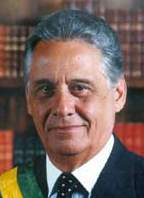
F.H. Cardoso |
Cardoso, Fernando Henrique ("FHC") (b. June 18, 1931, Rio de Janeiro), president of Brazil (1995-2003). Not long after the military took control of the government in Brazil in 1964, he went into exile. He returned in 1968. Cardoso entered politics in 1986 when he won a seat as senator from São Paulo; he gained a reputation as a centrist who was willing to compromise. In 1988 he co-founded the centre-left Party of Brazilian Social Democracy, which ran on a clean-government platform. In 1992, after Pres. Fernando Collor de Mello was impeached on corruption charges and Itamar Franco took over, Cardoso resigned his Senate seat and joined the cabinet as foreign minister. In May 1993 Cardoso allowed himself to be drafted as finance minister - the fourth in 13 months. He oversaw the complicated political negotiations that produced the Real Plan, an anti-inflation package that introduced a new currency, the real. In March 1994 Cardoso announced his bid for the presidency, and he stepped down from his post as finance minister. Inflation was running at 45% in June, and when the Real Plan went into effect on July 1, Cardoso was trailing his closest opponent by 20 points. As inflation plummeted to less than 2% in September, however, his popularity soared. Many observers suspected that the business sector had held a lid on prices to boost Cardoso's campaign and, further, that painful economic restructuring loomed after the election. During his campaign Cardoso called for moving Brazil away from a state-dominated economy and toward increased foreign investment, more rapid privatization of state-owned companies, and large-scale funding of education and social services.
Cardoso, Flávio de Assunção (b. Jan. 6, 1925, Porto Alegre, Rio Grande do Sul, Brazil), governor of Rondônia (1967).
Cardoso, Francisco António Gonçalves (b. Feb. 8, 1800, Aljubarrota, Portugal - d. Feb. 24, 1875), governor of Macau (1851) and governor-general of Angola (1866-69).
Cardoso, Francisco José, Junior (b. Jan. 15, 1826, São Francisco Xavier de Itaguaí [now Itaguaí], Rio de Janeiro, Brazil - d. Sept. 21, 1917, Rio de Janeiro, Brazil), president of Sergipe (1869-71), Mato Grosso (1871-72), and Pará (acting, 1887-88) and governor of Paraná (1889, 1894).
Cardoso, Hunald Santaflor (b. Sept. 2, 1894, Aracaju, Sergipe, Brazil - d. June 24, 1973, Aracaju), federal interventor in Sergipe (1945-46).
Cardoso, Joaquim Maurício (b. Aug. 9, 1888, Soledade, Rio Grande do Sul, Brazil - d. [air crash] May 22, 1938, Santos, São Paulo, Brazil), justice and interior minister of Brazil (1931-32) and acting federal interventor in Rio Grande do Sul (1938).
Cardoso, José Francisco (b. March 23, 1830, Santa Cruz, Rio de Janeiro, Brazil - d. Feb. 8, 1885, Rio de Janeiro, Brazil), president of Paraná (1859-61).
Cardoso, Leonel (Alexandre Gomes) (b. Sept. 28, 1919 - d. Sept. 15, 1988), high commissioner of Angola (1975).
Cardoso, Maurício Graccho (de Azevedo) (b. Aug. 9, 1874, Estância, Sergipe, Brazil - d. May 3, 1950, Rio de Janeiro), governor of Sergipe (1922-26).
Cardoso, Newton (b. May 22, 1938, Brumado, Bahia, Brazil), governor of Minas Gerais (1987-91). He was also mayor of Contagem (1973-77, 1983-86, 1997-98).
Cardoso, Sandoval Lobo (b. March 19, 1977, Goiânia, Goiás, Brazil), governor of Tocantins (2014-15).
Cardoze (Fábrega), Fernando (b. Oct. 11, 1937, Panama City, Panama), foreign minister of Panama (1984-85).
Cardozo, José Eduardo (Martins) (b. April 18, 1959, São Paulo, Brazil), justice minister of Brazil (2011-16).
Cardwell, Edward Cardwell, (1st) Viscount (b. July 24, 1813, Liverpool, England - d. Feb. 15, 1886, Torquay, Devon, England), British secretary of state for war (1868-74). He was also president of the Board of Trade (1852-55), chief secretary for Ireland (1859-61), chancellor of the Duchy of Lancaster (1861-64), and secretary of state for the colonies (1864-66). He was created viscount in 1874.
Carenco, Jean-François (b. July 7, 1952, Talence, Gironde, France), prefect of Saint-Pierre and Miquelon (1996-97) and of Guadeloupe (1999-2002). He has also been prefect of the départements of Tarn-et-Garonne (1997-99), Haute-Savoie (2002-04), Seine-Maritime (2006-07), Haute-Garonne (2007-08), Rhône (2010-15), and Paris (2015-17).
Carepa, Ana Júlia de Vasconcelos (b. Dec. 23, 1957, Belém, Pará, Brazil), governor of Pará (2007-11).
Carey, Sir de Vic (Graham) (b. June 15, 1940), bailiff of Guernsey (1999-2005); knighted 2002; grandson of Sir Victor Gosselin Carey. He was solicitor general (1977-82), attorney general (1982-92), and deputy bailiff (1992-99).
Carey, George Jackson (b. Oct. 5, 1822, Rozel, Jersey - d. June 12, 1872, Manchester, England), acting governor of Victoria (1866).
Carey, Joseph M(aull) (Jan. 19, 1845, Milton, Del. - d. Feb. 5, 1924, Cheyenne, Wyo.), governor of Wyoming (1911-15).
Carey, Robert D(avis) (b. Aug. 12, 1878, Cheyenne, Wyo. - d. Jan. 17, 1937, Cheyenne), governor of Wyoming (1919-23); son of Joseph M. Carey.
Carey, Sheila (Gweneth), Bahamian diplomat. She was chargé d'affaires in China (2012-15) and permanent representative to the United Nations (2017-20).
Carey, Sir Thomas Godfrey (b. Jan. 5, 1832 - d. Nov. 6, 1906), bailiff of Guernsey (1895-1902); knighted 1900.
Carey, Sir Victor Gosselin (b. July 2, 1871 - d. June 28, 1957), bailiff of Guernsey (1935-46); knighted 1945.
Carey, Sir William (b. Feb. 1, 1853 - d. July 27, 1915, Beechwood, Guernsey), bailiff of Guernsey (1908-15); knighted 1915.
Carey of Clifton, George (Leonard) Carey, Baron (b. Nov. 13, 1935, Bow, London, England), archbishop of Canterbury (1991-2002). He was made a life peer in 2002.
Cariaga, Juan, finance minister of Bolivia (1986-88).
Carías Andino, Tiburcio (b. March 15, 1876, Tegucigalpa, Honduras - d. Dec. 23, 1969, Tegucigalpa), president of Honduras (1933-49). Active in the right-wing National Party from its inception in 1902, Carías spent parts of the following two decades in exile in El Salvador and Guatemala, but he served as governor of Copán (1907-08) and Cortés (1908-10) and was a delegate to the Federal Convention of Central America in 1921. He secured a plurality of votes in the 1923 presidential election; the Congress failed to decide the election and a brief civil war ensued in 1924, during which he claimed the executive power for some time as "first chief of the liberating revolution" (pending the taking office of Fausto Dávila as provisional president, which never occurred), but, following an interim government in which Carías was interior and justice minister, ultimately Miguel Paz Baraona, who had been his running mate, was chosen in new elections. Carías became president of the National Congress (1926-29, 1930-31). After defeat in the 1928 presidential election, he finally had success in 1932, defeating Ángel Zuñiga Huete. However, he assumed power at a time of political instability and economic depression, which he reacted to with political repression and retrenchment. During his presidency press and labour union freedoms were curtailed. A new constitution was introduced in 1936 that allowed for Carías to remain in office until 1943. Several years later his term of office was extended until 1949. He chose not to contest the 1948 presidential elections, which were won by his protégé Juan Manuel Gálvez. He attempted a comeback in the 1954 elections, but received less than a third of the vote.
Carías Castillo, Tiburcio (b. May 16, 1908, Tegucigalpa, Honduras - d. ...), foreign minister of Honduras (1965-71); son of Tiburcio Carías Andino. He was also permanent representative to the United Nations (1946-57) and ambassador to the United Kingdom (1948-57) and the United States (1957-58).
Carías Zapata, Mario (b. July 1, 1941), foreign minister of Honduras (1990-94). He was also permanent representative to the United Nations (1977-82) and ambassador to the Netherlands (1986-89) and France (2002-05).
Cariati, Gennaro Spinelli, principe di (b. Aug. 16, 1780, Naples, Kingdom of Naples [now in Italy] - d. June 3, 1851, Naples), prime minister and foreign minister of the Two Sicilies (1848-49).
Cariello, Mario J(oseph) (b. Jan. 23, 1907, New York City - d. Aug. 9, 1985, New York City), borough president of Queens (1963-68).
Cariot, Auguste René (b. May 7, 1833, Grand-Bourg, Marie-Galante island, Guadeloupe - d. ...), interim commandant of Saint-Pierre and Miquelon (1879-80).
Carl XII (b. June 27 [June 17, O.S.], 1682, Stockholm, Sweden - d. Dec. 11 [Nov. 30, O.S.], 1718, Fredrikshald [now Halden], Norway), king of Sweden (1697-1718). He was the son of Carl XI of Sweden and Ulrika Eleonora "the Elder" of Denmark. He assumed the throne at the age of 15, having been declared of age. In 1700 the Great Northern War broke out, with a joint invasion of Swedish territory by Denmark and Saxony. Carl initially had no desire for war himself, but when Russia joined the alliance later in the year he counter-attacked by invading Denmark, forcing them to sue for peace. He defeated a Russian army at Narva, and in the following year gained a costly victory over the Saxons on the river Dvina. Next he defeated the Saxons at Kliszow in 1702, and dethroned King Augustus II of Poland in 1704 in favour of his ally Stanislaw Leszczynski. His victories were consolidated at the Peace of Altranstädt in 1706. Carl's grand design for total Swedish dominion of the Baltic was not realized. A surprise invasion of Russia in 1707, although he almost captured the tsar, Pyotr I, resulted in a heavy defeat at Poltava in June 1709. The Swedish army surrendered and Carl retired to Turkey. He tried in vain to convince the Turks to declare war on the Russians. In 1714 he made an incognito journey across half of Europe, covering 2,000 km on horseback in 15 days to the Baltic port of Stralsund. Cornered there by a ring of enemies for a year, he escaped in December 1715 to Lund in Sweden, 15 years after he had left his homeland. Undaunted, he raised a new army to keep the Russians at bay, and in 1716 launched a preliminary attack on Norway. He now formed an ambitious plan: he would be given freedom by Russia to conquer Norway in exchange for the Baltic provinces of Sweden, and then land in Scotland to put the Jacobite James Edward Stuart, the "Old Pretender," on the British throne. But having made his treaty with the Russians and invaded Norway again in 1718, he was fatally struck by a bullet of unknown origin during the siege of the border fortress of Fredriksten, at Fredrikshald. He died unmarried, and was succeeded by his younger sister, Queen Ulrica Eleonora.
Carl XIII (b. Oct. 7, 1748, Stockholm, Sweden - d. Feb. 5, 1818, Stockholm), king of Sweden (1809-18) and (as Carl II) Norway (1814-18); son of Adolf Fredrik.
Carl XIV Johan, original name Jean-Baptiste (Jules) Bernadotte, also called (1806-10) prince de Ponte-Corvo (b. Jan. 26, 1763, Pau [now in Pyrénées-Atlantiques département], France - d. March 8, 1844, Stockholm, Sweden), king of Sweden and (as Carl III Johan) Norway (1818-44); husband of sister-in-law of José I Napoleón. He was also French ambassador to Austria (1798) and minister of war (1799).
Carl XV, in full Carl Ludvig Eugène (b. May 3, 1826, Stockholm, Sweden - d. Sept. 18, 1872, Malmö, Sweden), king of Sweden and (as Carl IV) Norway (1859-72); son of Oscar I.
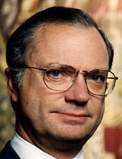
Carl Gustaf |
Carl XVI Gustaf, in full Carl Gustaf Folke Hubertus (b. April 30, 1946, Haga palace, Stockholm, Sweden), king of Sweden (1973- ). The only son of King Gustaf VI Adolf's eldest son, Prince Gustaf Adolf (who died in an air crash in 1947), Carl Gustaf became crown prince in 1950, when his grandfather acceded to the throne. He studied at military cadet schools, at the University of Uppsala, and in France and was commissioned as a naval officer in 1968. At the 1972 Munich Olympic Games he met Silvia Sommerlath (b. Dec. 23, 1943, Heidelberg, Germany), whom he married on June 19, 1976, three years after his accession, which occurred at a time when the role of the Swedish monarchy was being radically altered. Under the constitution prior to 1975, the king played a formal role in the administration of the country; for example, he presided over councils of state, signed government decisions, commanded the armed forces, and appointed someone to form a new government upon the resignation of the current administration. The new constitutional laws, enacted in 1973 and made effective on Jan. 1, 1975, relieved the king of all these duties, leaving him with a solely symbolic function. The king has three children. According to the Act of Succession of 1980, which superseded that of 1810, the eldest child of the king and queen is heir to the throne, regardless of gender. Accordingly, Crown Princess Victoria (b. July 14, 1977, Stockholm) is heir to the throne. The other children are Prince Carl Philip (b. May 13, 1979, Stockholm) and Princess Madeleine (b. June 10, 1982, Drottningholm).
Carle, (Cyr Louis Charles) Joseph (b. Sept. 2, 1830, La Gorgue, Nord, France - d. ...), commandant of Nossi-Bé (1875-76).
Carleson, (Axel Oskar) Conrad (b. Aug. 23, 1868, Döderhult socken, Kalmar, Sweden - d. March 16, 1954, Gnesta, Södermanland, Sweden), finance minister of Sweden (1917); nephew of Edvard Carleson.
Carleson, Edvard (Henrik) (b. Nov. 16, 1820, Klockrike socken, Östergötland, Sweden - d. April 1, 1884, Stockholm, Sweden), prime minister for justice of Sweden (1874-75).
Carlesse, Mauro (b. June 25, 1960, Terra Boa, Paraná, Brazil), governor of Tocantins (2018-22).
Carleton, Henry Boyle, (1st) Baron (b. July 12, 1669 - d. March 14, 1725, London, England), British chancellor of the exchequer (1701-08) and secretary of state for the Northern Department (1708-10). He was also lord president of the council (1721-25). He was created baron in 1714.
Carleton, Joseph (b. 1754 - d. March 11, 1812), acting U.S. secretary at war (1783-85).
Carli, (Antoine) Désiré (Toussaint) (b. Nov. 9, 1924, Brazzaville, Middle Congo [now Congo (Brazzaville)] - d. Jan. 12, 2010), prefect of French Guiana (1980-81). He was also prefect of Hautes-Alpes (1981-82) and Meurthe-et-Moselle (1986-89).
Carli, Guido (b. March 28, 1914, Brescia, Italy - d. April 23, 1993, Spoleto, Italy), treasury minister of Italy (1989-92). He was also minister of foreign trade (1957-58) and governor of the Bank of Italy (1960-75).
Carlisle, Frederick Howard, (5th) Earl of (b. May 28, 1748 - d. Sept. 4, 1825, Castle Howard, near Malton, Yorkshire, England), lord lieutenant of Ireland (1780-82). He was also British first lord of trade (1779-80) and lord privy seal (1783). He succeeded as earl in 1758.
Carlisle, George Howard, (6th) Earl of (b. Sept. 17, 1773, London, England - d. Oct. 7, 1848, Castle Howard, near Malton, Yorkshire, England), British politician; son of Frederick Howard, Earl of Carlisle. He was first commissioner for woods and forests (1827), lord privy seal (1827-28, 1834), and minister without portfolio (1830-34). He succeeded as earl in 1825.
Carlisle, George William Frederick Howard, (7th) Earl of, courtesy title before 1848 Viscount Morpeth (b. April 18, 1802, London, England - d. Dec. 5, 1864, Castle Howard, near Malton, Yorkshire, England), lord lieutenant of Ireland (1855-58, 1859-64); son of George Howard, Earl of Carlisle. He was also chief secretary for Ireland (1835-41), first commissioner for woods and forests (1846-50), and chancellor of the Duchy of Lancaster (1850-52). He succeeded as earl in 1848.
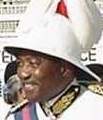
James Carlisle |
Carlisle, Sir James (Beethoven) (b. Aug. 5, 1937, Bolans, Antigua), governor-general of Antigua and Barbuda (1993-2007); knighted 1993.
Carlisle, John G(riffin) (b. Sept. 5, 1835, Campbell [now Kenton] county, Ky. - d. July 31, 1910, New York City), speaker of the U.S. House of Representatives (1883-89) and secretary of the treasury (1893-97).
Carlo, Joe Bomal (d. Aug. 21, 2016), finance minister of Vanuatu (2001-02).
Carlo Emanuele III, in full Carlo Emanuele Vittorio (b. April 27, 1701, Turin, Savoy [now in Italy] - d. Feb. 20, 1773, Turin), king of Sardinia (1730-73); son of Vittorio Amedeo II.
Carlo Emanuele IV, in full Carlo Emanuele Ferdinando Maria (b. May 24, 1751, Turin, Kingdom of Sardinia [now in Italy] - d. Oct. 6, 1819, Rome, Papal State [now in Italy]), king of Sardinia (1796-1802); son of Vittorio Amedeo III.

Carlos I |
Carlos I, in full Carlos Fernando Luís Maria Víctor Miguel Rafael Gabriel Gonzaga Xavier Francisco de Assis José Simão (b. Sept. 28, 1863, Lisbon, Portugal - d. Feb. 1, 1908, Lisbon), king of Portugal (1889-1908). The son of King Luís and of Maria Pia of Savoy, daughter of Vittorio Emanuele II of Italy, he married Marie Amélie of Orléans, a granddaughter of the French king Louis-Philippe, in 1886 and succeeded his father on Oct. 19, 1889. Forces generated by mistakes made before his time proved to be the undoing of this talented and intelligent man, who was also known for his paintings and oceanographical studies. At home, republicans, disaffected monarchists, and Freemasons kept up a running opposition. Popular indignation over the British ultimatum of 1890 demanding Portuguese withdrawal from certain African territories resulted in the republican revolt at Oporto (January 1891). In an effort to surmount political difficulties and bring about economic and administrative reform after a series of strikes and revolts, Carlos appointed João Franco as prime minister in May 1906 and allowed him to assume dictatorial powers soon thereafter. Although some useful reforms were effected, strong opposition was aroused by governmental coercion and controversies over extravagances and the private life of Carlos. While driving through the streets of Lisbon, the king and his eldest son, Luís Filipe, were assassinated. Carlos was succeeded by another son, Manuel II.
Carlos II, in full Carlos José Joaquín Leonardo Severo Benito Melchor Antonio Francisco Ignacio Domingo Diego Juan Félix Eusebio Vicente Agustín Isidro, byname Carlos el Hechizado (Charles the Mad) (b. Nov. 6, 1661, Madrid, Spain - d. Nov. 1, 1700, Madrid), king of Spain (1665-1700).
Carlos III, in full Carlos Sebastián de Borbón y Farnesio, Italian Carlo (IV) Sebastiano (b. Jan. 20, 1716, Madrid, Spain - d. Dec. 14, 1788, Madrid), king of Naples and Sicily (1734-59) and Spain (1759-88); son of Felipe V.
Carlos IV, in full Carlos Antonio Pascual Francisco Javier Juan Nepomuceno José Genaro Serafín Diego de Borbón y Sajonia (b. Nov. 11, 1748, Portici, Kingdom of Naples [now in Italy] - d. Jan. 20, 1819, Rome, Papal State [now in Italy]), king of Spain (1788-1808); son of Carlos III.
Carlos, Adelino da Palma (b. March 3, 1905, Faro, Portugal - d. Oct. 25, 1992, Lisbon, Portugal), prime minister of Portugal (1974).
Carlot, Alfred (Rolland) (b. June 11, 1959), foreign minister of Vanuatu (2011, 2011-13); nephew of Maxime Carlot Korman. He was also chargé d'affaires at the United Nations (2001-05) and minister of justice (2010, 2014-15), lands and natural resources (2011), and education (2015).

M. Carlot |
Carlot Korman, Maxime (b. April 26, 1941, Erakor village, Efate island, New Hebrides [now Vanuatu]), prime minister (1991-95, 1996), foreign minister (1993-95), deputy prime minister (2004), and acting president (2009) of Vanuatu. He was also minister of internal affairs (1978-79), lands and mineral resources (1999-2001, 2007-08), agriculture (2004), and infrastructure and public utilities (2004-05) and speaker of parliament (1980-83, 1995-96, 2009-10, 2010-11). Korman is an honorific title given to him by his home village in 1992.
Carlsen, Hans Rasmussen (b. Oct. 28, 1810, Køge, Denmark - d. July 2, 1887, near Køge), interior minister of Denmark (1864).
Carlsköld, Carl, originally Carl Hultman (b. Sept. 3, 1699, Norrköping, Östergötland, Sweden - d. July 4, 1788, Västerås, Västmanland, Sweden), governor of Västmanland (1772-84). He was ennobled under the name Carlsköld in 1743.
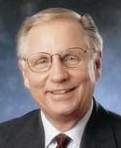
Carlson |
Carlson, Arne (Helge) (b. Sept. 24, 1934, New York City), governor of Minnesota (1991-99). The Republican spent eight years in the state legislature and 12 as elected state auditor until he ran for governor in 1990. He bypassed the convention, already solidly conservative and anti-abortion, and lost to its designee Jon Grunseth in the primary 49%-32%. But in mid-October the Minneapolis Star-Tribune charged Grunseth with sexual improprieties; Grunseth hesitated, then withdrew. A Republican delegation named Carlson as the party's nominee, and for two weeks he ran against embattled Democratic incumbent Rudy Perpich. Carlson won the general 51%-47%, carrying the Twin Cities metro area, losing the rest of the state. In office, he made a liberal record, signing HealthRight, wetlands preservation, and gay rights legislation. He succeeded in keeping the Minnesota Timberwolves basketball team in Minnesota by buying the Target Center arena for $55 million. He boasted of spending more for education and cutting taxes. His personal life was often the subject of his former wife Barbara Carlson, a radio talk show host, who occasionally broadcast her program while in a hot tub. In 1994, Carlson was opposed by farmer and former legislator Allen Quist, a strong abortion opponent. Quist was endorsed by the Republican convention 69%-29%, but Carlson won the primary 66%-34%. The DFL convention endorsed John Marty, who displayed less than overwhelming strength in the primary, winning 38% to 36% for Mike Hatch and 25% for Tony Bouza. Carlson won the general 62%-33%. On his agenda for a second term were welfare reform, scaling back workmen's compensation, term limits and more education spending.
Carlsson, Bernt (Wilmar) (b. Nov. 21, 1938, Stockholm, Sweden - d. [plane crash] Dec. 21, 1988, Lockerbie, Scotland), secretary-general of the Socialist International (1976-83) and UN commissioner for Namibia (1987-88).
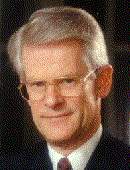
I. Carlsson |
Carlsson, Ingvar (Gösta) (b. Nov. 9, 1934, Borås, Västra Götaland county, western Sweden), prime minister of Sweden (1986-91, 1994-96). During the period 1958-60 he was, like Olof Palme, one of "Erlander's boys," part of the group of bright young men working with Prime Minister Tage Erlander. After spending a year in the U.S. in 1961, Carlsson returned to Sweden to become chairman of the Social Democratic Youth Movement. He was elected to the Riksdag (parliament) in 1964 and three years later he graduated to the post of undersecretary in the Cabinet Office. He served in Palme's governments as minister of education (1969-73) and minister of housing (1973-76). When the Social Democrats lost power after 44 years in office, Palme gave Carlsson the job of orchestrating the party's return to power, coupled with the task of preparing a master plan to put the economy on a sounder footing. When the party returned to power in 1982, Carlsson received his reward. He became deputy prime minister and, as Palme's personal troubleshooter, occupied himself with a study of possible future strategies for the Social Democrats. When the party won again in 1985, he was appointed minister of the environment. On Palme's assassination in February 1986, Carlsson replaced him as party leader and prime minister. He pursued a predictably cautious path, his biggest triumph being victory over public-sector labour union militancy in late 1986. He lost his majority in September 1991 and resigned, but was returned in September 1994 at the head of a minority government. In 1995 he announced his intention to resign March 1996, citing personal reasons.
Carlsson, (Tord Erland) Roine (b. Dec. 10, 1937, Norrtälje, Stockholm county, Sweden - d. Aug. 25, 2020, Gustavsberg, Stockholm county), defense minister of Sweden (1985-91).
Carlsson, Stefan (Lennart) (b. April 22, 1954), governor of Kalmar (2012-16).
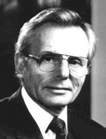
Carlucci |
Carlucci, Frank (Charles, III) (b. Oct. 18, 1930, Scranton, Pa. - d. June 3, 2018, McLean, Va.), U.S. politician. He joined the U.S. Department of State as a foreign service officer in 1956. While serving in Congo (Kinshasa), he used his athletic ability to rescue U.S. citizens from mobs. In 1969 he accidentally encountered Donald Rumsfeld, director of the Office of Economic Opportunity (OEO) in the administration of Pres. Richard Nixon, and accepted Rumsfeld's offer of a job at OEO. He succeeded Rumsfeld as director in 1970. In 1971 he became associate director of the Office of Management and Budget (OMB), and he was named deputy director in 1972. Caspar Weinberger, director of the OMB, came to appreciate Carlucci's skills. In 1973 Carlucci became undersecretary of health, education, and welfare - by invitation of Weinberger, who had become secretary. Carlucci later returned to the State Department as ambassador to Portugal (1975-78). He established ties with military officers who were leftist but not pro-Soviet and apparently helped them to defeat a plot by pro-Soviet officers to take over the government. In 1978 he became deputy to the director of central intelligence. Weinberger became secretary of defense in the Ronald Reagan administration in 1981 and insisted on having Carlucci as his deputy. In December 1986 Reagan appointed Carlucci as assistant for national security affairs. Carlucci tried to mediate rivalries between government agencies. On Nov. 23, 1987, Carlucci succeeded Weinberger as secretary of defense, having been nominated by Reagan on November 5 and confirmed by the Senate by a vote of 91-1 on November 20. He was considered less of a hardliner than Weinberger, and before taking office had secured the resignation of one of Weinberger's most vocally anti-Soviet aides.
Carlzon, Thomas (Gustav), originally Tomas Gustav Karlsson (b. Sept. 15, 1955, Älmhult, Kronoberg, Sweden), governor of Kalmar (2017-19).
Carmichael (of Skirling), Thomas David Gibson-Carmichael, (1st) Baron (b. March 18, 1859, Castlecraig, near Edinburgh, Scotland - d. Jan. 16, 1926, London, England), governor of Victoria (1908-11), Madras (1911-12), and Bengal (1912-17). He succeeded as (11th) Baronet in 1891 and was created baron in 1912.
Carmine, Pietro (b. Nov. 13, 1841, Camparada or Cernobbio, Austria [now in Italy] - d. July 10, 1913, Varese or Milan, Italy), finance minister of Italy (1899-1900). He was also minister of posts and telegraphs (1896) and public works (1906).
Carmo, Aurélio Correia do (b. Jan. 31, 1922, Belém, Pará, Brazil - d. May 1, 2020, Belém), governor of Pará (1961-64).
Carmo, José Joaquim do (b. Aug. 29, 1832, Rio de Janeiro, Brazil - d. Aug. 16, 1915, Rio de Janeiro), president of Paraná (1864), Espírito Santo (1865), and Pará (1878-79).

A. Carmona | 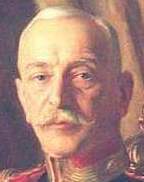
A.Ó. Carmona |
Carmona, Anthony (Thomas Aquinas) (b. March 7, 1953, Palo Seco, Trinidad and Tobago), president of Trinidad and Tobago (2013-18).
Carmona, António Óscar de Fragoso (b. Nov. 24, 1869, Lisbon, Portugal - d. April 18, 1951, Lisbon), war minister (1923, 1926), foreign minister (1926), prime minister (1926-28), and president (1926-51) of Portugal.
Carmona (Vílchez), Nicanor M(anuel) (b. 1842, Ferreñafe, Lambayeque, Peru - d. Oct. 1, 1940, Lima, Peru), finance minister of Peru (1894-95). He was also mayor of Lima (1910-13, 1915) and president of the Senate (1914-15).
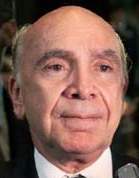
P. Carmona |
Carmona Estanga, Pedro (Francisco) (b. July 6, 1941, Barquisimeto, Lara state, Venezuela), president of Venezuela (2002). As head of Venezuela's largest business association, Fedecámaras, from 2001, he often clashed with left-leaning president Hugo Chávez. Carmona was installed as president in a short-lived coup in April 2002 by rebel military officers. When Chávez was restored to power, Carmona was put under house arrest and faced trial for rebellion and conspiracy. He escaped house arrest and fled to the Colombian ambassador's residence in Caracas. Colombia, which had stood virtually alone among Latin American countries in applauding the coup, granted him asylum on May 26; he arrived in Bogotá on May 29. In 2007 Venezuela requested his extradition.
Carmona Peralta, Juan de Dios (b. Dec. 22, 1916, Antofagasta, Chile - d. Oct. 27, 2009, Santiago, Chile), defense minister of Chile (1964-68). He was also mayor of Antofagasta (1947-49), minister of economy, development, and reconstruction (1968), and ambassador to Spain (1980-83).
Carnahan, A(lbert) S(idney) J(ohnson) (b. Jan. 9, 1897, near Ellsinore, Mo. - d. March 24, 1968, Rochester, Minn.), U.S. politician. He was a member of the House of Representatives (1945-47, 1949-61) and ambassador to Sierra Leone (1961-63).

M. Carnahan |
Carnahan, Mel(vin Eugene) (b. Feb. 11, 1934, Birchtree, Mo. - d. Oct. 16, 2000, Jefferson County, Mo.), governor of Missouri (1993-2000); son of A.S.J. Carnahan. The Democrat was elected to the legislature in 1962, and was majority leader in 1965-67. In 1980, he was elected state treasurer and served four years; in 1988, he was elected lieutenant governor. In 1992, he won the Democratic gubernatorial primary over St. Louis Mayor Vince Schoemehl, 55%-34%. In the general, Carnahan won over Republican William Webster 59%-41%. There is a certain similarity between Carnahan's record as an executive and Bill Clinton's as president. In 1993, Carnahan got his education reform and tax increase through the Democratic legislature; in 1994 the legislature rejected his attempt to require health insurers to disregard preexisting conditions and make policies portable between jobs. He spent much effort on avoiding federal control, to counter what some considered draconian federal sanctions imposed on the St. Louis area under the Clean Air Act. But his attempt to negotiate with the EPA proved unsuccessful, and the state attorney general took the case to court. Carnahan's job rating in early 1995 was much higher than Clinton's and one well-known challenger, former secretary of state Roy Blunt, decided not to run. His 1996 opponent was Auditor Margaret Kelly. In 2000 Carnahan, his son Randy, and aide Chris Sifford died in a plane crash while heading to a campaign event for Carnahan's closely watched race for the U.S. Senate. Carnahan's name remained on the ballot because a deadline for changes had passed and ballots were being printed. In the election, Carnahan became the first dead person to be elected to the Senate. His widow Jean was appointed to take his seat.
Carnarvon, Henry Howard Molyneux Herbert, (4th) Earl of (b. June 24, 1831, London, England - d. June 28, 1890, London), lord lieutenant of Ireland (1885-86). He was also British secretary of state for the colonies (1866-67, 1874-78). He succeeded as earl in 1849.
Carneckis, Voldemaras Vytautas (b. Jan. 9, 1893, Pajiesio village, Marijampole county, Russia [now in Lithuania] - d. [executed] Nov. 4, 1942, Sverdlovsk, Russian S.F.S.R. [now Yekaterinburg, Russia]), foreign minister of Lithuania (1924-25). He was also transport minister (1919-20), minister to the United States (1921-23), chargé d'affaires in the United Kingdom (1923-24), and minister to Italy (1925-39).
Carneiro, António da Silva Osório Soares (b. Jan. 25, 1928, Custóias, Matosinhos concelho, Porto district, Portugal - d. Jan. 28, 2014, Lisbon, Portugal), acting governor-general of Angola (1974).
Carneiro, Francisco Higino Lopes (b. July 8, 1955), Angolan politician. He was governor of Cuanza Sul (1999-2002), Cuando Cubango (2012-16), and Luanda (2016-17) and minister of public works (2002-12).
Carneiro, Hugo Ribeiro (b. July 28, 1889, Belém, Pará, Brazil - d. July 9, 1979, Rio de Janeiro, Brazil), governor of Acre (1927-30).
Carneiro, João Durval (b. May 8, 1929, Feira de Santana, Bahia, Brazil), governor of Bahia (1983-87). He was also mayor of Feira de Santana (1967-71, 1993-94).
Carneiro, Justino Ferreira (b. 1834, Serro, Minas Gerais, Brazil - d. Aug. 14, 1896, Rio de Janeiro, Brazil), president of Paraíba (1880-82) and Pará (1882).
Carneiro, Nelson (de Souza) (b. April 8, 1910, Salvador, Bahia, Brazil - d. Feb. 6, 1996, Niterói, Rio de Janeiro, Brazil), Brazilian politician. He was president of the Senate (1989-91).
Carneiro, Rui (b. Aug. 20, 1906, Pombal, Paraíba, Brazil - d. July 20, 1977, Brasília, Brazil), federal interventor in Paraíba (1940-45).

Carnell |
Carnell, Kate, byname of Anne Katherine Carnell (b. May 30, 1955, Brisbane, Qld.), chief minister of the Australian Capital Territory (1995-2000). She joined the Liberal Party in 1991, was elected to the Legislative Assembly from Molonglo on March 20, 1992 (reelected on March 2, 1995), and became leader of the Liberal Party (and thus leader of the opposition) on April 21, 1993. On March 9, 1995, she became chief minister, and on March 15 also treasurer and minister for health and community care; on Feb. 3, 1997, she took the additional portfolio of minister for business and employment.
Carnieri, Claudio (b. March 17, 1944, Terni, Umbria, Italy), president of Umbria (1993-95).
Carnogurský, Ján (b. Jan. 1, 1944, Bratislava, Slovakia), prime minister (1991-92) and justice minister (1998-2002) of Slovakia. He was also a first deputy premier (1989-90), joint acting interior minister (1989), and a deputy premier (1990) of Czechoslovakia.
Carnot, Lazare (Nicolas Marguerite), comte (b. May 13, 1753, Nolay [now in Côte-d'Or département], France - d. Aug. 2, 1823, Magdeburg, Prussia [now in Sachsen-Anhalt, Germany]), member of the Committee of Public Safety (1794, 1794-95) and president (1794) of the National Convention, member (1795-97) and president (1796, 1797) of the Executive Directory, minister of war (1800) and interior (1815), and member of the Commission of Government (1815) of France. He was made comte (count) in 1815.
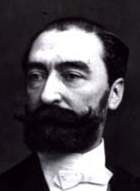
S. Carnot |
Carnot, (Marie François) Sadi (b. Aug. 11, 1837, Limoges, France - d. June 25, 1894, Lyon, France), president of France (1887-94); grandnephew of Pierre-Antoine, comte Dupont de l'Étang. He was the son of Hippolyte Carnot, a leftist deputy who was a vigorous opponent of the July Monarchy (after 1830), grandson of Lazare Carnot, the famous "Organizer of Victory" of the French Revolution, and nephew of the scientist Sadi Carnot. After service as a government engineer at Annecy, he was named commissioner of Normandy with responsibility for organizing resistance there in the Franco-German War (1870-71). After a brief term as prefect of Seine-Inférieure he was elected to the National Assembly from the Côte-d'Or département, and later to the Chamber of Deputies from Beaune. Sitting with the Left Republicans, he concentrated on issues concerning public works and railroad development. In October 1878 he was appointed undersecretary of public works, and in 1880-81 he was minister. He served as vice president of the Chamber in 1883-85, and thereafter served as minister of commerce and finance. After the resignation of Jules Grévy in 1887, he was elected president of the republic without actively aspiring to the office. The Carnot presidency was marked by the plots of the political adventurer Gen. Georges Boulanger, labour agitation, anarchist movements, and the Panama Canal scandals (1892). Yet he managed to retain his popularity through 10 different governments formed in the course of seven years. On June 24, 1894, after delivering a speech at a Lyon exposition, he was fatally stabbed by the Italian anarchist Sante Caserio (though he did not die until past midnight).
Carnot-Feulins, Claude (Marie) Carnot, dit (b. July 15, 1755, Nolay [now in Côte-d'Or département], France - d. July 17, 1836, Autun, Saône-et-Loire, France), interior minister of France (1815); brother of Lazare, comte Carnot.
Carnoy, Albert (Joseph) (b. Nov. 7, 1878, Leuven, Belgium - d. Jan. 12, 1961), interior minister of Belgium (1927-29).
Caro (Tobar), Miguel Antonio (José Zoylo Cayetano Andrés Avelino de las Mercedes) (b. Nov. 10, 1843, Bogotá, New Granada [now Colombia] - d. Aug. 5, 1909, Bogotá), vice president (1892-94) and acting president (1892, 1894-98) of Colombia.
Caro Escallón, Luis (b. March 5, 1912, Bogotá, Colombia - d. Jan. 24, 1969, Bogotá), justice minister of Colombia (1954-56). He was also governor of Cundinamarca (1953-54) and ambassador to Italy (1956-57).
Caro Figueroa, (José) Armando (b. July 5, 1944, Salta, Argentina), labour minister of Argentina (1993-97).
Carod-Rovira, Josep Lluís (b. May 17, 1952, Cambrils de Mar, near Tarragona, Catalonia, Spain), prime councillor of Catalonia (2003-04).
Carol I, original name Karl Eitel Friedrich Zephyrin Ludwig Prinz von Hohenzollern-Sigmaringen (b. April 20, 1839, Sigmaringen, Prussia [now in Baden-Württemberg, Germany] - d. Oct. 10, 1914, Sinaia, Romania), prince (1866-81) and king (1881-1914) of Romania. In 1864 he served as an officer of the Prussian army in the war against Denmark. With the tacit approval of his cousin, the French emperor Napoléon III, he was offered the throne of Romania after the deposition of the reigning prince, Alexandru Ioan I (February 1866), and in April 1866 was elected prince by plebiscite. In 1869 he married the princess Elisabeth of Wied, who later gained fame as a prolific writer under the pseudonym Carmen Sylva. His Germanophile sentiments caused him to be domestically unpopular during the Franco-Prussian War (1870-71), and in 1871 unrest almost forced his abdication. In 1877, Romania joined Russia in a war against the Ottoman Empire, and he regained popular support for his military leadership at the Battle of Plevna. Despite previous assurances to the contrary, Russia at the Congress of Berlin (1878) took southern Bessarabia from Romania, allowing her in return the poorer Dobruja. However, Romania was now declared fully independent of the Ottoman Empire, and in May 1881 he was crowned as Romania's first king. In 1883 he concluded an alliance with Germany and Austria-Hungary, which remained a closely guarded state secret until the outbreak of World War I. In internal politics, he cooperated with the Liberal Party leader Ion Bratianu until 1888, but thereafter Liberals and Conservatives alternated in office. He successfully promoted urban industrial development and financial interests and built up the military establishment, but neglected rural problems and crushed a peasant rebellion in 1907 at the cost of several thousand lives. He favoured entrance into World War I on the side of the Central Powers but accepted the decision of the Crown Council to declare neutrality; his successor (his nephew King Ferdinand I) declared for the Allies in 1916.
Carol II (b. Oct. 15, 1893, Sinaia, Romania - d. April 4, 1953, Estoril, Portugal), king of Romania (1930-40); son of Ferdinand I (1865-1927).
Caron, Sir (Joseph Philippe René) Adolphe (b. Dec. 24, 1843, Québec, Canada East [now Quebec] - d. April 20, 1908, Montreal, Que.), defence minister of Canada (1880-92); knighted 1885. He was also postmaster-general (1892-96).
Caron, Giuseppe (b. Feb. 24, 1904, Treviso, Italy - d. March 3, 1998), Italian politician. He was a vice president of the European Commission and commissioner for the internal market (1959-63) and minister of budget (1969-70).
Carossino, Angelo (b. Feb. 21, 1929, Genoa, Italy - d. July 25, 2020), president of Liguria (1975-79).
Carp, Petre P. (b. June 29, 1837, Iasi, Moldavia [now in Romania] - d. June 19, 1919, Tibanesti, Vaslui county, Romania), foreign minister (1870, 1888-89) and prime minister and finance minister (1900-01, 1910-12) of Romania. He was also minister of culture and education (1870, 1876) and agriculture, industry, commerce, and domains (1888, 1891-95), diplomatic agent to Austria-Hungary (1871-73) and Italy (1873), and minister to Austria-Hungary (1882-84).
Carpelan, Johan Fredrik friherre (b. Dec. 14, 1745, Halikko socken [now part of Salo], Finland - d. Dec. 27, 1808, Göteborg, Sweden), governor of Uleåborg (1785-1800) and Göteborg och Bohus (1800-08); brother of Simon Wilhelm friherre Carpelan. He was made friherre (baron) in 1790.
Carpelan, Simon Wilhelm friherre (b. Aug. 12, 1733, Reso socken [now part of Turku], Finland - d. Jan. 4, 1814, Idensalmi socken [now Iisalmi], Finland), governor of Savolax och Karelen (1788-91 [acting], 1809-10). He was made friherre (baron) in 1790.
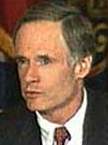
Carper |
Carper, Tom, byname of Thomas Richard Carper (b. Jan. 23, 1947, Beckley, W.Va.), governor of Delaware (1993-2001). In 1976, the Democrat was elected state treasurer; he ran for Congress in 1982 and beat a scandal-tarred incumbent. In the House, Carper had a moderate voting record and worked to let banks into the securities business and to prevent ocean sludge dumping, both causes supported by Delaware constituencies. After 10 years in Congress, Carper was the favourite for governor when Republican Mike Castle had to step down in 1992 after two terms; with Castle elected to Congress, these two politicians of different parties changed places, seemingly postponing their inevitable showdown for a Senate seat. Carper won his primary with 89% and the general with 65% and pledged a partnership with Democratic Lieutenant Governor Ruth Ann Minner. After two years, he was proud that 20,000 more Delawareans had health insurance, and he also claimed credit for placing 2,400 welfare recipients in full- or part-time employment and removing 1,300 people from the rolls altogether. He took an active approach to creating and preserving Delaware jobs, lobbying General Motors to keep its Boxwood plant, which employed 3,000 people, open and quadrupling the state's economic development fund. In 1996 he beat Republican state treasurer Janet Rzewnicki for a second term, despite a smear campaign from an out-of-state GOP group that alleged Carper beat his wife and was planning a divorce. In 2000 he was elected to the U.S. Senate.
Carpio Bejarano, Karina (Isabel) (b. Jan. 20, 1959), governor of Aragua (2021- ).
Carpio Castillo, Rubén (b. Aug. 5, 1925), Venezuelan diplomat. He was ambassador to Canada (1974-77) and Spain (1977-78) and permanent representative to the United Nations (1978-79).
Carpio Nicolle, Jorge (b. Oct. 24, 1932, Guatemala City, Guatemala - d. [assassinated] July 3, 1993, El Quiché department, Guatemala), Guatemalan presidential candidate (1985, 1990-91); brother of Roberto Carpio Nicolle; cousin of Ramiro de León Carpio.
Carpio Nicolle, Roberto (Vicente) (b. July 16, 1930, Guatemala City, Guatemala - d. Feb. 24, 2022), vice president of Guatemala (1986-91) and president of the Central American Parliament (1991-92). He was also joint president of the National Constituent Assembly (1984-86).
Carpizo McGregor, Jorge (b. April 12, 1944, Campeche, Campeche, Mexico - d. March 30, 2012, Mexico City, Mexico), interior minister of Mexico (1994). He was also attorney general (1993-94) and ambassador to France (1995-98).

B. Carr |
Carr, Bob, byname of Robert John Carr (b. Sept. 28, 1947, Matraville, N.S.W., Australia), premier of New South Wales (1995-2005) and foreign minister of Australia (2012-13).
Carr of Hadley, (Leonard) Robert Carr, Baron (b. Nov. 11, 1916, London, England - d. Feb. 17, 2012), British home secretary (1972-74). He was also secretary for technical cooperation (1963-64) and employment and productivity (1970-72) and lord president of the council (1972). He was created a life peer in 1976.
Carra Saint-Cyr, Jean-François (b. Dec. 27, 1756, Lyon, France - d. Jan. 5, 1834, Vailly-sur-Aisne, Aisne, France), governor of French Guiana (1817-19).
Carranza (Ramírez), (José) Bruno (b. Oct. 5, 1822, San José, Costa Rica - d. Jan. 25, 1891, San José), provisional chief of Costa Rica (1870); brother-in-law of José María Montealegre.
Carranza, Roque (Guillermo) (b. Sept. 29, 1919, Buenos Aires, Argentina - d. Feb. 8, 1986), public works minister (1983-85) and defense minister (1985-86) of Argentina.
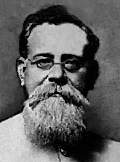
V. Carranza |
Carranza (de la Garza), Venustiano (b. Dec. 29, 1859, Cuatro Ciénegas, Mexico - d. May 21, 1920, Tlaxcalantongo, Mexico), president of Mexico (1915-20). He became active in local and state politics in 1877. In 1910, as governor of Coahuila, he joined the struggle of Francisco Madero against Porfirio Díaz and in 1913 led the forces against Victoriano Huerta. After Huerta fled in 1914, Carranza's Constitutionalist Army began to splinter. Rebels led by Pancho Villa and Emiliano Zapata opposed his provisional government, demanding immediate social reforms. He secured his position as provisional president, however, when his army, led by Gen. Álvaro Obregón, defeated Villa's forces at Celaya in April 1915. Only reluctantly did Carranza accept the provisions of the 1917 constitution establishing basic reforms in landownership, control of natural resources, and labour and social legislation. When he became the constitutional president on May 1, 1917, he did little to effectuate those provisions, and his term was marked by continued difficulties with Villa and Zapata, serious financial problems, and general social unrest brought on by his reluctance to institute far-reaching reforms. An ardent nationalist, he was involved in serious controversies with the U.S. He was instrumental in keeping Mexico neutral in World War I. In 1920 he attempted to force the election of his chosen successor, Ignacio Bonillas, despite opposition from his more radical generals. Obregón led an armed rebellion in April, and Carranza fled the capital before the rebels entered it on May 7. When he headed for Veracruz with government records and treasure, his train was attacked. With a few followers, he fled on horseback into the mountains. On the night of May 20/21 he was betrayed and murdered.
Carranza Ugarte, Luis (Julián Martín) (b. Dec. 21, 1966), economy and finance minister of Peru (2006-08, 2009). He was also executive president of the Andean Development Corporation (2017-21).
Carrão, João da Silva (b. May 14, 1810, Curitiba, Brazil - d. July 4, 1888, Rio de Janeiro, Brazil), finance minister of Brazil (1866). He was also president of Pará (1857-58) and São Paulo (1865-66).
Carras, Hubert Eugène Paul (b. Oct. 18, 1890 - d. March 1, 1947), governor of French Cameroons (1943-44).
Carrascalão, Mário Viegas (b. May 12, 1937, Uaitalibu, near Venilale, Baucau district, eastern Portuguese Timor [now Timor-Leste] - d. May 19, 2017, Dili, Timor-Leste), governor of Timor Timur (1983-92). He was also Indonesian ambassador to Romania (1993-97) and second deputy prime minister of Timor-Leste (2009-10) .
Carrasco (Carpio), Paúl (Ernesto) (b. March 22, 1971, Cuenca, Ecuador), Ecuadorian politician. He was prefect of Azuay department (2005-18) and a minor presidential candidate (2021).
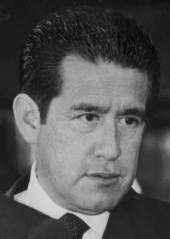
D. Carrasco |
Carrasco Altamirano, Diódoro (Humberto) (b. Jan. 30, 1954, Cuicatlán, Oaxaca, Mexico), governor of Oaxaca (1992-98) and interior minister of Mexico (1999-2000).
Carrasco Carrasco, Arnaldo (b. May 10, 1894, El Roble [now in Los Lagos region], Chile - d. March 6, 1986, Santiago, Chile), defense minister (1944-46) and justice minister (1946) of Chile. He was also ambassador to Canada (1947-53) and Brazil (1953-54).
Carrasco Fernández, Washington (b. 1922? - d. April 5, 2021), defense minister of Chile (1981-82). He was also intendant of Magallanes region (1975-77).
Carrasco Jiménez, Manuel (b. Sept. 27, 1892, Totora, Cochabamba department, Bolivia - d. July 7, 1964, La Paz, Bolivia), foreign minister of Bolivia (1935). He was also minister of public works (1935).
Carrasco Millones, Juan Manuel (b. Dec. 24, 1976, Chiclayo, Lambayeque, Peru), interior minister (2021) and defense minister (2021-22) of Peru.
Carrasquilla (Barrera), Alberto (b. April 24, 1959, Bogotá, Colombia), finance minister of Colombia (2003-07, 2018-21).
Carreira, Henrique (Alberto) Teles, byname Iko Carreira (b. June 3, 1933, Luanda or Quibala, Angola - d. May 30, 2000, Madrid, Spain), defense minister of Angola (1975-80). He was also ambassador to Algeria (1987-89).
Carreño (Arjona), Pedro María (b. May 15, 1872, Bogotá, Colombia - d. Oct. 15, 1946, Bogotá), interior minister (1911-13) and acting foreign minister (1912-13, 1933-34) of Colombia. He was also minister of education (1910-11, 1933-34).
Carrera (Padrón), Cesáreo (b. Feb. 1, 1865, Guayaquil, Ecuador - d. Nov. 2, 1933, Barcelona, Spain), foreign minister of Ecuador (1912-13). He was also mayor of Guayaquil (1892-96) and minister to Chile (1920-22) and the United Kingdom, France, Italy, and Spain (1933).
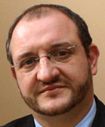
F. Carrera |
Carrera (Castro), (Luis) Fernando (b. April 1966, Guatemala City, Guatemala), foreign minister of Guatemala (2013-14). In 2014-15 he was permanent representative to the United Nations.
Carrera (Verdugo), José Miguel (de la) (b. Oct. 15/16, 1785, Santiago, Chile - d. [executed] Sept. 4, 1821, Mendoza, Argentina), Chilean independence leader. He was head of various juntas in rebellion against Spanish rule (1811-12, 1812-13, 1814). After defeat by the Spanish in 1814, he took refuge in Argentina, where he became involved in civil struggles and briefly was general-in-chief of San Luis (1821).
Carrera (Turcios), José Rafael (b. Oct. 25, 1814, Guatemala City, New Spain [now in Guatemala] - d. April 14, 1865, Guatemala City), president of Guatemala (1844-48, 1851-65). He attained prominence as leader of an insurrection against liberal governments in Guatemala and the Central American Federation, headed, respectively, by Mariano Gálvez and Francisco Morazán. The original grievance was a succession of unpopular reforms, especially anti-clerical measures, which alienated the rural population and brought to their support elements of the clergy and of the old aristocracy. Certain disaffected liberals cooperated with the rebels to force Gálvez from office in 1838. Carrera followed nationalistic policies. On April 17, 1839, Guatemala withdrew from the federation. In March 1840 at Guatemala City, Carrera defeated Morazán's last desperate effort to reassert federal control and drove him into exile. Separatist movements within the state, however, he crushed mercilessly, overwhelming the armies of Los Altos (the western departments of the country which had seceded and formed a sixth Central American state) in 1840. He first exerted his influence through nominal heads of state, but in December 1844 an obedient council elected him president. Liberals briefly forced him to resign in 1848, but they were unable to consolidate their position. Conservatives managed Carrera's return from exile in 1849 and reinstalled him as president in 1851. In 1854 he was given life tenure with the privilege of choosing his successor. His period of dominance, known as "the thirty-year regime," was an unrelieved absolutism. He ameliorated Guatemala's position with foreign creditors and improved roads and ports, but had only moderate success in diversifying Guatemala's commercial monoculture (cochineal) and allowed education to languish. He restored the church to its ancient position of power and prestige; in 1852 he made Guatemala the first independent Latin American nation to sign a concordat with the Holy See. He intervened repeatedly in neighbouring countries to eliminate unfriendly liberal governments, and in turn he had to defend his own regime against their attacks, singly or in combination. In 1859 he reached an agreement with Britain on the boundaries of British Honduras, the interpretation of which remained disputed.
Carrera Andrade, Jorge (b. Sept. 14, 1902, Quito, Ecuador - d. Nov. 7, 1978, Quito), foreign minister of Ecuador (1966-67). Also known as a poet, he was chargé d'affaires in Venezuela (1944-46), minister to the United Kingdom (1947-50), and ambassador to Venezuela (1961-63), Nicaragua (1963-64), France (1964-66), and the Netherlands (1967-69).
Carreras (Jiménez), Rodrigo (Xavier) (b. Aug. 10, 1947, San José, Costa Rica), Costa Rican diplomat. He was ambassador to Brazil (1982-84), Israel (1998-2001, 2010-15), Turkey (2000-01), Nicaragua (2003-06), Cyprus (2013-15), and Cuba (2015-16).
Carreras López, Juan Manuel (b. April 24, 1962, San Luis Potosí, Mexico), governor of San Luis Potosí (2015-21).
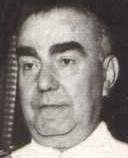
Carrero |
Carrero Blanco, Luis, posthumously duque de Carrero Blanco (b. March 3, 1903, Santoña, Cantabria, Spain - d. [killed in car bomb attack] Dec. 20, 1973, Madrid, Spain), prime minister of Spain (1973). He was also deputy prime minister (1967-73).
Carrié, Evremont (Justin) (b. Feb. 12, 1886, Port-au-Prince, Haiti - d. Sept. 2, 1962, Port-au-Prince), foreign minister of Haiti (1957). He was also minister to the Dominican Republic (1937-38).
Carrié, (Justin Alexis Victor) Turenne (b. Nov. 6, 1827, Santo Domingo, Haiti [now in Dominican Republic] - d. Sept. 4, 1905), member of the Council of Secretaries of State of Haiti (1874).
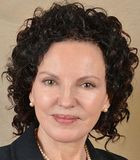
Carriere |
Carriere, Elizabeth (Anne), governor of Montserrat (2015-18).
Carriles Galarraga, Eduardo (b. Nov. 28, 1923, Santander, Spain - d. Jan. 12, 2020, Madrid, Spain), finance minister of Spain (1976-77).
Carrillo, Pedro José, finance minister of Peru (1865).
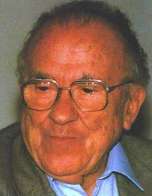
S. Carrillo |
Carrillo (Solares), Santiago (José) (b. Jan. 18, 1915, Gijón, Spain - d. Sept. 18, 2012, Madrid, Spain), secretary-general of the Spanish Communist Party (1960-82). He joined the party at the time of the Popular Front's electoral victory in Spain in 1936. He was in charge of public order in Madrid, and some held him responsible for the massacre of prisoners at Paracuellos in November of that year. After the Spanish Civil War he went to the Americas, and he later spent many years in Paris. He participated in the founding (July 1974) of the Junta Democrática Española, which partially united the opposition to the Franco regime, and in March 1977 he helped found the Coordinación Democrática, which incorporated the opposition parties and Spain's regional autonomy movements. After its legalization in 1977, the Spanish Communist Party maintained a low profile while winning votes and parliamentary seats. Carrillo received wide publicity from his book "Eurocomunismo" y Estado (1977; "Eurocommunism" and the State), which espoused the independence of national Communist parties. He cooperated in the drafting of Spain's new constitution and supported the government in its attempts to cope with economic difficulties and to overcome terrorism. He favoured working for "a plurality of political parties and for democratic alternation between the majority and the minority," and he supported the Basque and Catalan sections of the Communist Party in their desire to take an independent stance based on the needs of their own regions.
Carrillo Flores, Antonio (b. June 23, 1909, Mexico City - d. March 20, 1986, Mexico City), foreign minister of Mexico (1964-70). He was also finance minister (1952-58) and ambassador to the United States (1959-64) and the Soviet Union (1980-81).
Carrillo Flórez, Fernando (b. May 13, 1963, Bogotá, Colombia), interior minister of Colombia (2012-13). He was also justice minister (1991-92), ambassador to Spain (2014-16), and procurador general (2017-21).
Carrillo Gómez, Camilo (Nicanor) (b. Jan. 23, 1938, Tacna, Peru), justice minister of Peru (1988). He was also minister of transport and communications (1988-89).
Carrillo Martínez, Camilo N(icanor) (b. Dec. 13, 1830, Paita, Peru - d. May 7, 1900, Lima, Peru), prime minister of Peru (1882-83 [insurrectionary government of Lizardo Montero]). He was also minister of finance and commerce (1871, 1873-74), war and navy (1881, 1899), and interior, police, and public works (1882-83) and president of the Chamber of Deputies (1878-79).
Carrillo Puerto, Felipe (b. Feb. 28, 1872, Motul, Yucatán - d. [executed] Jan. 3, 1924, Mérida, Yucatán), governor of Yucatán (1922-23).
Carrillo Smith, (José) Carlos (b. March 15, 1911, Callao, Peru - d. Aug. 10, 2002), interior minister of Peru (1958-60). He was a minor presidential candidate in 1980.
Carrillo Zavala, Abelardo (b. Dec. 5, 1939, Palizada, Campeche, Mexico), governor of Campeche (1985-91).

E.W. Carrington |
Carrington, Sir Edwin W(ilberforce) (b. June 23, 1938, Tobago island, Trinidad and Tobago), secretary-general of the African, Caribbean and Pacific Group of States (1984-89) and of the Caribbean Community (1992-2010). He has also been ambassador of Trinidad and Tobago to the Caribbean Community (2011- ). He was knighted by Antigua and Barbuda in 2010.
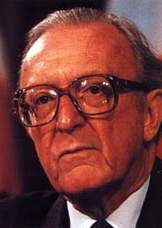
Baron Carrington |
Carrington (of Upton), Peter Alexander Rupert Carington, (6th) Baron (1797 U.K. peerage), (6th) Baron Carrington (of Bulcot Lodge) (1796 Irish peerage), Baron Carington of Upton (1999 life peerage) (b. June 6, 1919, London, England - d. July 9, 2018), British politician; grandnephew of Charles Robert Wynn-Carrington, Marquess of Lincolnshire. In 1938 he inherited a peerage and a place in the House of Lords. After service in World War II, he became a junior minister under Winston Churchill. He was high commissioner to Australia (1956-59) and first lord of the Admiralty (1959-63). He entered Alexander Douglas-Home's cabinet in 1963 as minister without portfolio and, after the Conservative defeat in the general election of 1964, led the opposition in the House of Lords. With the Conservatives back in power in 1970, he became defense secretary and, in the last days of the Edward Heath government, energy secretary (1974). One of Heath's closest confidants, he was described as "Ted's troubleshooter." When a Conservative government under Margaret Thatcher was formed in 1979, Carrington became foreign secretary. His charm and diplomatic skills, not least with the prime minister herself, enabled him to achieve a negotiated independence for Rhodesia (now Zimbabwe) and an end to the bloody civil war there in 1979-80. He then turned his attention to the Middle East and at the same time sought negotiated solutions to Britain's residual colonial problems, which included the Falkland Islands. While his back was turned in April 1982, the Argentines invaded the Falklands. He resigned his post amid harsh criticism of his misreading of the intentions of the Argentine government. Carrington became secretary-general of NATO on June 25, 1984, and served until 1988. He emphasized the importance of communication with the Soviet Union, believing that issue to be central to the restoration of public confidence in NATO.
Carrión (Mora), (Manuel) Benjamín (b. April 20, 1897, Loja, Ecuador - d. March 8, 1979, Quito, Ecuador), Ecuadorian politician. Also known as a writer, he was minister of education (1932-33) and ambassador to Mexico (1933-34, 1968), Colombia (1937-39), and Chile (1948-49).
Carrión (Mena), Francisco (Benjamín Esteban) (b. April 8, 1953, Quito, Ecuador), foreign minister of Ecuador (2005-07). He was also chargé d'affaires in the United Kingdom (1991-96), ambassador to Spain (2000-05) and the United States (2018-20), and permanent representative to the United Nations (2009-11). In 2021 he was appointed ambassador to Mexico.
Carrizalez (Rengifo), Ramón (Alonzo) (b. Nov. 8, 1952, Guárico, Venezuela), executive vice-president (2008-10) and acting defense minister (2009-10) of Venezuela and governor of Apure (2011-21). He was infrastructure minister in 2004-06 and housing minister in 2006-08.
Carrizosa Pardo, Hernando (b. Dec. 16, 1895, Bogotá, Colombia - d. May 1973, Bogotá), interior minister of Colombia (1960). He was also governor of Cundinamarca (1951-53).
Carroll, John Lee (b. Sept. 30, 1830, Baltimore, Md. - d. Feb. 27, 1911, Washington, D.C.), governor of Maryland (1876-80); great-grandson of Thomas Sim Lee.
Carson, Ben(jamin Solomon) (b. Sept. 18, 1951, Detroit, Mich.), U.S. secretary of housing and urban development (2017-21). A famed neurosurgeon, he was a candidate for the 2016 Republican presidential nomination.
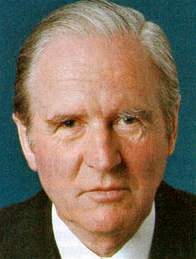
Carstens |
Carstens, Karl (Walter) (b. Dec. 14, 1914, Bremen, Germany - d. May 30, 1992, Meckenheim, Germany), president of West Germany (1979-84). He joined the Nazi party in 1940 but never was an active member of the party; he also had been a member of the SA, the Nazi paramilitary organization, in 1933-35. He served in an army anti-aircraft unit in World War II, and after the war he was cleared by an Allied denazification court. He represented Bremen in the new central government from 1949 until 1954, when he was chosen to represent West Germany in the Council of Europe. Three years later he was one of the architects of the Treaty of Rome, which established the European Economic Community. As a member of Chancellor Konrad Adenauer's Christian Democratic Union (CDU), Carstens served as state secretary of foreign affairs (1960-66), deputy defense minister (1966-67), and head of the chancellor's office (1968-69). In 1972 he was elected to the Bundestag (parliament), where he served as chairman of the joint parliamentary group of Christian Democrat and Christian Social Union (CSU) members (1973-76). He occupied a position in the CDU somewhat to the right of centre. His conservatism put him on good terms with the Bavarian CSU - an asset at all times, but especially when the two parties were on the brink of breaking their alliance. In December 1976 he was elected president, or speaker, of the Bundestag, a post he held until he became chief of state in 1979. Despite controversy over his nomination because of his Nazi affiliation, he was an effective and popular president. He retired from public office in 1984 at the end of his term.
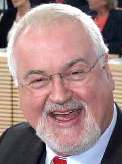
Carstensen |
Carstensen, Peter Harry (b. March 12, 1947, Elisabeth-Sophien-Koog, Nordstrand island, Schleswig-Holstein, Germany), minister-president of Schleswig-Holstein (2005-12). He was also president of the Bundesrat (2005-06).
Cartabia, Marta (b. May 14, 1963, Legnano, Lombardia, Italy), justice minister of Italy (2021-22). She was also president of the Constitutional Court (2019-20).
Carter, Ashton (Baldwin), byname Ash Carter (b. Sept. 24, 1954, Philadelphia, Pa. - d. Oct. 24, 2022, Boston, Mass.), U.S. defense secretary (2015-17).
Carter, (Edward) Charles (b. April 13, 1943), foreign minister of The Bahamas (1989-90). He was health minister in 1990-92.
Carter, George R(obert) (b. Dec. 28, 1866, Honolulu, Hawaii - d. Feb. 11, 1933, Honolulu), governor of Hawaii (1903-07).

Jimmy Carter |
Carter, Jimmy, byname of James Earl Carter, Jr. (b. Oct. 1, 1924, Plains, Ga.), president of the United States (1977-81). The Democrat won election to the Georgia state Senate in 1962 and was reelected in 1964. He won the governorship of Georgia in 1970. In his inaugural address he announced that "the time for racial discrimination is over" and proceeded to open Georgia's government offices to blacks and women. He announced his candidacy for the Democratic nomination for president in 1974, just before his term as governor ended. Though lacking a national political base or major backing, he managed through tireless and systematic campaigning to assemble a broad constituency whose votes enabled him to win the Democratic nomination in July 1976. He chose the liberal U.S. senator Walter F. Mondale of Minnesota as his running mate and defeated the incumbent Republican president, Gerald R. Ford, in November 1976, winning 51% of the popular vote and garnering 297 electoral votes to Ford's 240. In foreign affairs, although Carter's championship of international human rights received prominent attention, his major achievements were on the more pragmatic level of patient diplomacy. Despite the apparent failure of his domestic policies and the ongoing Iran hostage crisis, Carter won the Democratic nomination in 1980. But public confidence in Carter's executive abilities had fallen to an irretrievable low, and in the elections held that November he was overwhelmingly defeated by Republican nominee Ronald Reagan, winning only 41% of the popular vote. Carter later served as a sort of diplomat-without-portfolio in various conflicts in a number of countries - including Nicaragua, Panama, Ethiopia, and Haiti - and was known for his work with the housing charity Habitat for Humanity. He was awarded the 2002 Nobel Peace Prize. In 2019, at 94, he became the longest-living U.S. president ever.
Carter, John (McGregor) (b. May 8, 1950, Te Kopuru, New Zealand), high commissioner of the Cook Islands (2011-13). He was a National Party member of the New Zealand parliament in 1987-2011. In a 1998 speech in committee he was talking about "stunts" pulled by the Labour opposition and, when trying to say "cunning stunt," made a spoonerism of it which had the chairman almost fall out of his chair. In 2013 he resigned the high commissioner's post to run for mayor of Far North district; he was elected to a third term in 2019.
Carter, Sir John (Gregorio) (b. Jan. 27, 1919, Cane Grove Village, East Coast Demerara, British Guiana [now Guyana] - d. Feb. 23, 2005, Bethesda, Md.), Guyanese diplomat; knighted 1966. He was permanent representative to the United Nations (1966-67, 1968-69), ambassador to the United States (1966-70), France, West Germany, the Soviet Union, and Yugoslavia (1970-76), China (1976-81), and Japan (1979-81), and high commissioner to Canada (1966-70), the United Kingdom (1970-76), and Jamaica (1981-83).
Carter, Robert, byname King Carter (b. 1663, Lancaster county, Virginia - d. Aug. 4, 1732, Lancaster county), acting governor of Virginia (1726-27).
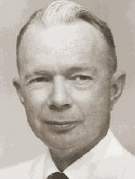
W.A. Carter |
Carter, William A(rnold) (b. June 27, 1907, Corsicana, Texas - d. May 18, 1996), governor of the Panama Canal Zone (1960-62). He was commissioned second lieutenant of the U.S. Army in 1930, and advanced through the ranks to major general in 1953. He was a combat engineer in World War II and was chief engineer of the II Corps in the Mediterranean under Gen. Omar Bradley and chief engineer of the 1st Army for Normandy invasion and European campaign. Carter was appointed chief engineer of the 3rd U.S. Army from 1948 to 1951. He served as Canal Zone governor for a short year and a half. During that time, he carried forward a number of programs begun by his predecessors. A project to widen the Panama Canal continued, the Thatcher Ferry bridge took shape, the first of the new locks towing locomotives arrived, three new towboats were ordered and plans were made to convert the canal's Marine Traffic Control Center to an electronic operation. Under his tenure, new methods of locks overhauls were studied to reduce time lost while chambers were drained for maintenance. A very visible leader, Carter traveled widely throughout Panama seeking to improve U.S. relations with the Panamanian people and their leaders. A group of Panamanian friends presented him with a gold medal and hailed him as a "Friend of Panama." Carter earned a Distinguished Service Medal. After retiring from active duty, he was senior engineering adviser of the Inter-American Development Bank in Washington, D.C.
Carteret, Antoine (Alfred Désiré) (b. April 3, 1813, Geneva - d. Jan. 28, 1889, Petit-Saconnex [now part of Geneva]), president of the Council of State of Genève (1871-72, 1873-74, 1875-76, 1877-78, 1880-81, 1882-83, 1884-85).
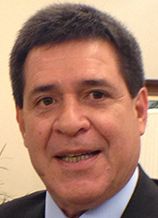
Cartes |
Cartes (Jara), Horacio (Manuel) (b. July 5, 1956, Asunción, Paraguay), president of Paraguay (2013-18).
Cartier, Sir George Étienne, (1st) Baronet (b. Sept. 6, 1814, Saint-Antoine, Lower Canada [now Quebec] - d. May 20, 1873, London, England), joint premier (1856-57, 1858-62) and defence minister (1867-73) of Canada. He was made a baronet in 1868.
Carton de Tournai, Henri (Joseph Georges) (b. Feb. 19, 1878, Tournai, Belgium - d. Jan. 18, 1969, Brussels, Belgium), interior minister of Belgium (1932). He was also minister of colonies (1924-26) and health (1932).
Carton de Wiart, Henri (Victor Marie Ghislain), comte (Count; from 1922) (b. Jan. 31, 1869, Brussels, Belgium - d. May 6, 1951, Uccle, Belgium), Belgian politician. Elected in 1896 to the Belgian House of Representatives as a member of the Catholic Party's reform-oriented left wing, he served as minister of justice (1911-18) and helped secure passage of child-welfare legislation (1912). Subsequently, he served as prime minister and interior minister (1920-21) and minister of social welfare (1932-34). He was later appointed president of the Supreme Court of the Belgian-Luxembourg Economic Council and was the Belgian delegate to the League of Nations (1928-35). In 1945 he reorganized the Catholic Party as the Social Christian Party. Serving as minister without portfolio (1949-50) and minister of justice (1950), he devoted much effort to an unsuccessful attempt to return the exiled Belgian king Léopold III to power. A member of the Jeune Belgique (Young Belgium), a nationalist literary movement, he wrote historical novels and treatises held to depict a uniquely Belgian national spirit.
Cartwright, Sir Richard (John) (b. Dec. 4, 1835, Kingston, Upper Canada [now Ontario] - d. Sept. 24, 1912, Kingston), finance minister of Canada (1873-78); knighted 1879. He was also minister of trade and commerce (1896-1911).
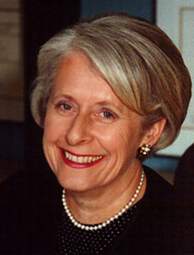
S. Cartwright | 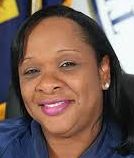
Cartwright R. | 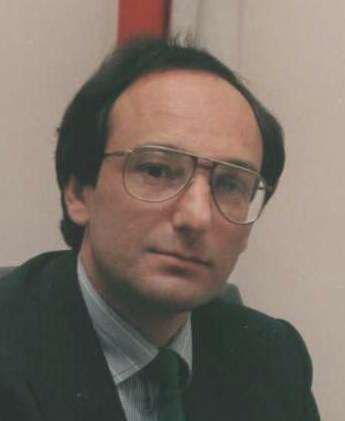
Caruana |
Cartwright, Dame Silvia (Rose), née Poulter (b. Nov. 7, 1943, Dunedin, N.Z.), governor-general of New Zealand (2001-06); knighted 1989. In 1989 she became the first female chief justice of a district court and in 1993 the first woman in the High Court.
Cartwright Robinson, Sharlene (Linette) (b. 1971, Bahamas), premier and finance minister of the Turks and Caicos Islands (2016-21).
Caruana, Clyde (b. Feb. 21, 1985, Malta), finance minister of Malta (2020- ).
Caruana, Sir Peter (Richard) (b. Oct. 15, 1956, Gibraltar), chief minister of Gibraltar (1996-2011); knighted 2013.
Caruana Demajo, Tommaso (b. Oct. 1, 1910 - d. Nov. 12, 1973), justice minister (1962-71) and finance minister (1964-66) of Malta. He was also speaker of the House of Representatives (1950-51) and minister of industry and commerce (1952-55, 1962).
Caruaru, Francisco Antonio Raposo, barão de (b. Nov. 24, 1817, Pernambuco province [now state], Brazil - d. March 23, 1880, Rio de Janeiro, Brazil), president of Mato Grosso (1870-71). He was made baron in 1880.
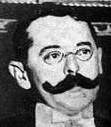
F.S. Carvajal |
Carvajal (y Gual), Francisco S(ebastián) (b. Dec. 9, 1870, Campeche, Mexico - d. Sept. 20, 1932, Mexico City, Mexico), foreign minister (1914) and interim president (1914) of Mexico. He held the interim presidency in his capacity as president of the Supreme Court (1912-13, 1914-15).
Carvajal (Ambulódegui), Manuel Melitón (b. March 1, 1847, Lima, Peru - d. Sept. 19, 1935, Lima), finance and commerce minister (1894), war and navy minister (1900, 1901-02, 1913-14), prime minister (1914), and second vice president (1915-19) of Peru.
Carvajal (Guzmán), Rafael (b. 1818, Ibarra, New Granada [now in Ecuador] - d. 1881, Lima, Peru), interior and foreign minister (1850, 1861-64, 1867-68, 1869), vice president (1864-65), and acting president (1865) of Ecuador.
Carvajal Bernal, Ángel (b. Oct. 1, 1900, Santiago Tuxtla, Veracruz, Mexico - d. Jan. 27, 1985, Mexico City, Mexico), governor of Veracruz (1948-50) and interior minister of Mexico (1952-58). He was also minister of national property and administrative inspection (1951-52).
Carvajal Moreno, Gustavo (b. Oct. 29, 1940, Mexico City, Mexico - d. Feb. 25, 2017, Mexico City), Mexican politician; son of Ángel Carvajal Bernal. He was president of the Institutional Revolutionary Party (1979-81) and minister of agrarian reform (1981-82).
Carvajal Prado, Patricio (b. Sept. 13, 1916, Santiago, Chile - d. [suicide] July 15, 1994), defense minister (1973-74, 1983-90) and foreign minister (1974-78) of Chile.
Carvalhaes, José Antonio Vaz de (b. Dec. 22, 1823, Santos, São Paulo, Brazil - d. Oct. 30, 1888, Petrópolis, Rio de Janeiro, Brazil), acting president of Paraná (1856-57).

Carvalhas |
Carvalhas, Carlos (Alberto do Vale Gomes) (b. Nov. 9, 1941, São Pedro do Sul, northern Portugal), general secretary of the Portuguese Communist Party (1992-2004).
Carvalho, Agostinho André Mendes de, byname Uanhenga Xitu (b. Aug. 29, 1924, Calomboloca [now in Bengo province], Angola - d. Feb. 13, 2014, Luanda, Angola), Angolan politician. Also known as a writer, he was provincial commissioner of Luanda (1979-80), minister of health (1980-83), and ambassador to East Germany (1984-90) and Poland (1985-93).
Carvalho, Alexandre Manoel Albino de (b. 1812, São Pedro, Rio Grande do Sul, Brazil - d. June 26, 1894, Rio de Janeiro, Brazil), president of Mato Grosso (1863-65).
Carvalho, Álvaro Pereira de (b. Feb. 19, 1885, Mamanguape, Paraíba, Brazil - d. Oct. 5, 1952, João Pessoa, Paraíba), acting president of Paraíba (1930).
Carvalho, Amphiloquio Botelho Freire de (b. July 16, 1850, Salvador, Bahia, Brazil - d. Nov. 15, 1903, Rio de Janeiro, Brazil), president of Alagoas (1885-86).
Carvalho, Antero Tavares de, governor-general of Angola (1924-25).
Carvalho, Antonio Augusto Ramiro de (b. Dec. 28, 1833, Cuiabá, Mato Grosso, Brazil - d. Nov. 5, 1891, Cuiabá), acting president of Mato Grosso (1886, 1887).
Carvalho, Antônio Balbino de, Filho (b. April 22, 1912, Barreiras, Bahia, Brazil - d. May 5, 1992, Rio de Janeiro, Brazil), governor of Bahia (1955-59). He was also Brazilian minister of education and culture (1953-54), health (acting, 1953), industry and commerce (1963), and finance (acting, 1963).
Carvalho, António de Albuquerque Coelho de (b. 16... - d. 1725, Angola), captain-major of Grão-Pará (1685-90) and governor of Maranhão (1690-1701), Rio de Janeiro (1709-13), São Paulo e Minas do Ouro (1710-13), and Angola (1722-25).
Carvalho, Antonio Francisco Pereira de (b. May 14, 1821, Pernambuco province [now state], Brazil - d. Aug. 9, 1855), president of Rio Grande do Norte (1852-53) and Piauí (1853-55).
Carvalho, Antonio Francisco Pereira de (d. Jan. 13, 1915), president of Rio Grande do Norte (1886-88).
Carvalho, Antonio Luiz Affonso de (b. March 5, 1828, São Salvador da Bahia [now Salvador], Brazil - d. Jan. 25, 1892, Salvador), president of Paraná (1869-70), Minas Gerais (1870-71), and Bahia (1889) and justice minister of Brazil (1891).
Carvalho, Aristides Napoleão de (b. 1868 - d. 1956), federal interventor in Sergipe (1935). He was also mayor of Aracaju (1912-13).
Carvalho, Carlos Augusto de (b. March 20, 1851, Rio de Janeiro, Brazil - d. Sept. 5, 1905, Rio de Janeiro), president of Paraná (1882-83) and Pará (1885) and foreign minister of Brazil (1893, 1894-96).
Carvalho, Carlos Leôncio da Silva (b. June 18, 1847, Rio de Janeiro, Brazil - d. Feb. 9, 1912, São Paulo, Brazil), interior minister of Brazil (1878-79).
Carvalho, Eduardo Pereira (b. Oct. 26, 1938, São Paulo, Brazil), acting finance minister of Brazil (intermittently 1980-81).
Carvalho, Elias Pinto de (b. July 20, 1815, Curvelo, Minas Gerais, Brazil - d. May 28, 1884), acting president of Minas Gerais (1867, 1878).
Carvalho, Eronides Ferreira de (b. April 25, 1895, Canhoba [then part of Propriá municipality], Sergipe, Brazil - d. March 19, 1969, Rio de Janeiro, Brazil), provisional governor (1930), governor (1935-37), and federal interventor (1937-41) of Sergipe.
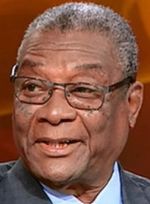
E. Carvalho |
Carvalho, Evaristo (do Espírito Santo) (b. Oct. 22, 1941, Santana, São Tomé and Príncipe - d. May 28, 2022, Lisbon, Portugal), prime minister (1994, 2001-02) and president (2016-21) of São Tomé and Príncipe. He was also minister of transport and communications (1978-80) and defense and internal order (1992-94), procurator-general (1986-89), and president of the National Assembly (2010-12). He was an unsuccessful presidential candidate in 2011.
Carvalho, Fernando Setembrino de (b. Sept. 13, 1861, Uruguaiana, Rio Grande do Sul, Brazil - d. May 24, 1947, Rio de Janeiro, Brazil), federal interventor in Ceará (1914) and war minister of Brazil (1922-26).
Carvalho, Francisco Afonso de (b. Oct. 18, 1897, Rio de Janeiro, Brazil - d. June 15, 1953, Rio de Janeiro), federal interventor in Alagoas (1933-34).
Carvalho, Gastão Baptista de (b. 1924 - d. August 1998), governor of Fernando de Noronha (1979-81).
Carvalho, Innocencio Seraphico de Assis (b. 1830? - d. April 8, 1884, Recife, Pernambuco, Brazil), president of Paraíba (1867-68).
Carvalho, João Antonio Rodrigues de (b. 1770, Rio de Janeiro, Brazil - d. Dec. 4, 1840, Rio de Janeiro), president of Santa Catarina (1824-25).
Carvalho, João da Costa Bezerra de, acting governor of Pernambuco (1911).
Carvalho, José Agapito da Silva (b. May 1, 1897, Chaves, Portugal - d. 1957), governor-general of Angola (1947-55).
Carvalho, José de Matos (b. May 2, 1905, Barreirinhas, Maranhão, Brazil - d. May 15, 1993), governor of Maranhão (1957-61).
Carvalho, José Nicoláo Tolentino de (b. April 13, 1847, Pernambuco province [now state], Brazil - d. June 27, 1910, Pernambuco), president of Rio Grande do Norte (1877-78).
Carvalho, José Paes de (b. Nov. 12, 1850, Belém, Pará, Brazil - d. March 17, 1943, Paris, France), governor of Pará (1897-1901).
Carvalho, José Pedro Dias de (b. July 16, 1805, Mariana, Minas Gerais, Brazil - d. July 26, 1881, Rio de Janeiro, Brazil), finance minister (1848, 1862, 1864, 1865-66) and interior minister (1848) of Brazil. He was also president of the Chamber of Deputies (1847-48), president of Minas Gerais (1847-48), and president of the Bank of Brazil (1857-59, 1869).
Carvalho, José Pinto de, acting president of Sergipe (1833).
Carvalho, Júlio Ferreira de (b. Jan. 28, 1894, São Tiago, Minas Gerais, Brazil - d. Oct. 22, 1962, Belo Horizonte, Minas Gerais), federal interventor in Minas Gerais (1946).
Carvalho, Luís Geolás de Moura (b. July 25, 1906, Belém, Pará, Brazil - d. Sept. 13, 1988, Belém), governor of Pará (1947-50 and [acting] 1959-61). He was also mayor of Belém (1961-64).
Carvalho, Luiz Antonio Neves de (d. Sept. 6, 1831), acting president of São Paulo (1826, 1827).
Carvalho, Manoel Capitolino da Rocha (b. Penedo, Alagoas, Brazil - d. June 22, 1942, Maceió, Alagoas), acting governor of Alagoas (1921).
Carvalho, Manuel de Abreu Ferreira de (b. Jan. 19, 1893, Porto, Portugal - d. af. 1956), governor of Portuguese Timor (1940-45). After the Allied occupation in 1941 he wished to be considered a prisoner of war and confined himself to his residence. Under the following Japanese occupation (1942-45), he was likewise nominally recognized but his authority was bypassed. He achieved a transfer of powers from the Japanese on Sept. 5, 1945.
Carvalho, Mariano Cirilo de (b. June 25, 1836, Abrigada [now part of Abrigada e Cabanas de Torres], Portugal - d. Oct. 19, 1905), finance minister of Portugal (1886-89, 1891-92).
Carvalho, Pedro Freire de (b. April 16, 1868, Simão Dias, Sergipe, Brazil - d. Aug. 3, 1948, Sergipe), acting president of Sergipe (1914).
Carvalho, Pedro Paulo Dias de (b. June 29, 1959, Chaves, Pará, Brazil), governor of Amapá (2010-11).
Carvalho, Raymundo Mendes de (b. 1830? - d. June 9, 1882, Teresina, Piauí, Brazil), acting president of Piauí (1878).
Carvalho, Sebastião Celso de (b. Jan. 24, 1923, Simão Dias, Sergipe, Brazil - d. Aug. 14, 2009, Aracaju, Sergipe), acting governor of Sergipe (1964-67).
Carvalho, Wellington de (d. May 9?, 1992), governor of Fernando de Noronha (1982-85).

Carvalho Pinto |
Carvalho Pinto, Carlos Alberto Alves de (b. March 15, 1910, São Paulo, Brazil - d. March 23, 1987, São Paulo), governor of São Paulo (1959-63) and finance minister of Brazil (1963); grandnephew of Francisco de Paula Rodrigues Alves.
Carvallo Elizalde, Ventura (b. Sept. 8, 1854, Santiago, Chile - d. Nov. 16, 1917, Santiago), justice (and education) minister of Chile (1901).
Carvel, Elbert N(ostrand) (b. Feb. 9, 1910, Shelter Island, N.Y. - d. Feb. 6, 2005, Laurel, Del.), governor of Delaware (1949-53, 1961-65). In 1944 he ran for lieutenant governor and won. Four years later, he ran for governor, campaigning on the need for more and better schools, along with better roads and state infrastructure. He defeated Hyland F. George and became only the second Democratic governor to win election in Delaware in the 20th century. There were some milestones in Carvel's first term - the first span of the Delaware Memorial Bridge opened to traffic, and the state Supreme Court was established in 1951 - but he found it difficult to advance his objectives in a Republican-controlled legislature. When he sought reelection in 1952, he and many of his fellow Democrats nationwide were swamped by the incoming Republican tide led by Dwight D. Eisenhower, who was elected president. Carvel lost the gubernatorial race to J. Caleb Boggs, and he suffered another defeat when he took on U.S. Sen. John Williams in 1958. But in 1960 he was elected governor once more, defeating Lt.Gov. John Rollins, amid the Democratic tide that sent John F. Kennedy to the White House. A champion of civil rights at a time when many supported segregation, he appointed the first Human Relations Commission, which recommended a public-accommodations law that Carvel pushed through a reluctant General Assembly in 1963.
Carver, John (b. c. 1576, Nottinghamshire or Derbyshire, England - d. April 15, 1621, Plymouth, Mass.), governor of Plymouth (1620-21). He joined the Separatists, a Puritan religious group. They were critical of the Church of England and also believed that the government was too tolerant towards those who were guilty of adultery, drunkenness, and breaching the Sabbath. The Separatists were persecuted, and in 1608 Carver and others decided to emigrate to Holland, which had a reputation of tolerance towards dissenters. But Carver and his friends soon became disillusioned with their new home, and in 1620 they decided to emigrate to North America. Carver obtained financial backing for the trip and chartered the Mayflower, which was boarded by 102 people in Delft harbour. After crossing the Atlantic they decided to settle at a place they called Plymouth in Massachusetts Bay. He was elected governor on Nov. 21, 1620, after the signing of the Mayflower Compact. His major accomplishment was the establishment of a treaty of alliance between the Indian chief Massasoit and James I of England.

Baron Carver |
Carver (of Shackleford), (Richard) Michael (Power) Carver, Baron (b. April 24, 1915, Bletchingley, Surrey - d. Dec. 9, 2001, Fareham, Hampshire), British military officer. He began moving up the ranks with a commission in the Royal Tank Corps in 1935 and went on to become chief of the General Staff (1971-73) and chief of the Defence Staff (1973-76). He was chief of staff in Kenya in 1954 during the Mau Mau rebellion, which led to Kenya's independence from Britain in 1963. He commanded UN peacekeeping forces in Cyprus in 1964, but later criticized them as impeding progress toward a political settlement. He was Britain's resident commissioner in Rhodesia in 1977-78. As a member of the House of Lords, he opposed Britain's decision to buy Trident submarines with nuclear-armed missiles. In a Lords debate on Britain's nuclear weapons in 1997, he tartly asked a government minister "who is supposed to be deterred by the deterrent to which she referred, and from doing what?" He was a member of the Canberra Commission on the Elimination of Nuclear Weapons, created by the Australian government, which released a report in 1996 outlining a plan for nuclear disarmament. "The destructiveness of nuclear weapons is so great, and their use so catastrophic, that they have no military utility against a comparably equipped opponent other than the belief that they deter such an opponent from using his nuclear weapons," he said. "Therefore, their elimination would remove that justification for their retention. Their use against a non-nuclear opponent is politically and morally indefensible, as history has shown." He was also a critic of NATO. In a Lords debate he urged abolition of the NATO command, saying it existed only to camouflage the reality that the United States commands the allied forces. He was knighted in 1966 and created a life peer in 1977.
Casa Irujo, Carlos Fernando Martínez de Irujo y Tacón (Erice y Gámiz), (I) marqués de (b. Nov. 4, 1763, Cartagena, Spain - d. Jan. 17, 1824, Madrid, Spain), first secretary of state of Spain (1812 [in Resistance], 1818-19 [acting], 1823-24); son-in-law of Thomas McKean. He was also minister to the United States (1796-1807) and France (1821-22). He was made marquess in 1803.
Casa-Valencia, Emilio Alcalá Galiano y Valencia, conde de (b. March 9, 1831, Madrid, Spain - d. Nov. 12, 1914, San Sebastián, Spain), foreign minister of Spain (1875). He was also minister to Portugal (1879-81) and ambassador to the United Kingdom (1895-97). He succeeded as count in 1875.
Casabianca, François (Xavier Joseph), comte de (b. June 27, 1796, Nice, France - d. May 24, 1881, Paris, France), finance minister of France (1851). He was also minister of agriculture and commerce (1851) and minister of state (1852).
Casabianca (Wersares), Manuel (b. June 15, 1840, Caribbean Sea - d. May 27, 1901, Bogotá, Colombia), civil and military chief (1885-86) and governor (1886-87, 1889, 1890-97, 1899) of Tolima and war minister of Colombia (1896 [acting], 1900).
Casado, Plínio de Castro (b. Sept. 30, 1870, Porto Alegre, Brazil - d. May 3, 1964, Rio de Janeiro, Brazil), federal interventor in Rio de Janeiro (1930-31).
Casagrande, José Renato (b. Dec. 3, 1960, Castelo, Espírito Santo, Brazil), governor of Espírito Santo (2011-15, 2019- ).
Casal de Fonsdeviela, Narcís (b. 1957, Escaldes-Engordany, Andorra), Andorran diplomat. He was permanent representative to the United Nations (2009-15) and ambassador to the United States (2009-15).
Casali, Augusto (b. April 14, 1949, San Marino), secretary of state for foreign and political affairs of San Marino (2002). He was also minister of transport, communications, tourism, and sport (1993-98), territory, environment, and agriculture (1998-2000), and justice, information, and research (2008-12) and secretary-general of the Socialist Party (1999-2002).
Casamatta, François (b. Dec. 6, 1899 - d. Nov. 4, 1961), acting chef de territoire (1944) and acting governor (1949, 1951) of Chad.
Casanova, Corina (Lydia) (b. Jan. 4, 1956, Ilanz, Graubünden, Switzerland), federal chancellor of Switzerland (2008-15).
Casanova Casanova, Rafael Antonio (b. Oct. 21, 1828, Santiago, Chile - d. Aug. 18, 1903, Santiago), justice (and education) minister of Chile (1890); son-in-law of José Ignacio Zenteno.
Casardi, Alberico (Aubrey) (b. Feb. 3, 1903, Siena, Italy - d. 1979), Italian diplomat. He was permanent representative to the United Nations (1955-56), acting secretary-general of NATO (1961), and ambassador to Belgium (1963-65) and Japan (1965-68).
Casares Quiroga, Santiago (b. May 8, 1884, La Coruña, Spain - d. Feb. 17, 1950, Paris, France), prime minister of Spain (1936). He was also minister of navy (1931), interior (1931-33, 1936), justice (1933), public works (1936), and war (1936).
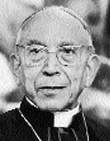
Casaroli |
Casaroli, Agostino Cardinal (b. Nov. 24, 1914, Castel San Giovanni, Piacenza province, Italy - d. June 9, 1998, Rome, Italy), secretary of the Council for the Public Affairs of the Church (1967-79) and secretary of state (1979-90) of Vatican City. He went to the Accademia Pontificia, the school for Vatican diplomats. The breakthrough in his career came in 1961, when Pope John XXIII, detecting signs of détente in Communist attitudes, sought ways of entering into contact. Casaroli was sent to Vienna to head the Vatican delegation at a conference on diplomatic relations; he was back again two years later for another conference on consular relations. He made his first contacts with Communist diplomats and henceforward was identified with the Vatican's Ostpolitik. Some of the landmarks along the way were the negotiation of a modus vivendi with Yugoslavia in 1966, the signing of the Treaty on the Non-proliferation of Nuclear Weapons in Moscow in 1971, and a notable speech at the Conference on Security and Cooperation in Europe at Helsinki in July 1973. He visited Eastern Europe many times, concentrating on establishing the freedom of the church to appoint its own bishops and then on the right to teach religion to children and students. Casaroli was sometimes accused of weakness in his dealings with Communists, but the election of a Polish pope in October 1978 changed the situation. John Paul II could not be accused of weakness, and his appointment (April 30, 1979) of Casaroli as secretary of state, the number-two post in the Vatican, was a mark of confidence. Casaroli was made a cardinal at the consistory of June 30, 1979.
Casas (Castañeda), José Joaquín (b. Feb. 24, 1866, Chiquinquirá, Boyacá, Colombia - d. Oct. 8, 1951, Bogotá, Colombia), acting foreign minister of Colombia (1902). He was minister of education (1901-03).
Casas (Moreno), Sergio (Guillermo) (b. Feb. 19, 1965, Los Robles, La Rioja, Argentina), governor of La Rioja (2015-19).
Casas Alemán, Fernando (b. July 8, 1905, Córdoba, Veracruz, Mexico - d. Oct. 30, 1968, Mexico City, Mexico), governor of Veracruz (1939-40) and chief of government of the Distrito Federal (1946-52).
Casas Santamaría, (Pablo) Alberto (b. 1944, Bogotá, Colombia), Colombian politician. He was minister of communications (1990-91) and culture (1998-99) and ambassador to Mexico (1992-93) and Venezuela (1993-94).
Casas y Arragorri, Luis de las (b. 1745, Sopuerta, País Vasco, Spain - d. 1800, El Puerto de Santa María, Andalucía, Spain), governor of Cuba (1790-96).
Casati, Ettore (b. March 24, 1873, Chiavenna, Lombardia, Italy - d. Aug. 14, 1945, Rome, Italy), justice minister of Italy (1944).
Cascardo, Hercolino (b. Jan. 2, 1900, Rio de Janeiro, Brazil - d. Feb. 26, 1967, Rio de Janeiro), federal interventor in Rio Grande do Norte (1931-32).
Casellati, (Maria) Elisabetta (Alberti) (b. Aug. 12, 1946, Rovigo, Italy), president of the Senate of Italy (2018-22).
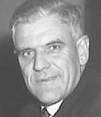
Casembroot | 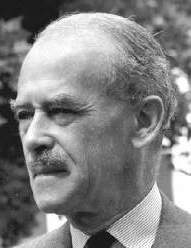
Baron Casey |
Casembroot, Guus de, byname of Auguste François Charles de Casembroot (b. Dec. 17, 1906, Middelburg - d. Feb. 10, 1965, Utrecht), queen's commissioner of Zeeland (1944-45, 1948-65).
Casey, Albert V(incent) (b. Feb. 28, 1920, Boston, Mass. - d. July 10, 2004, Dallas, Texas), U.S. postmaster general (1986). He was CEO of American Airlines in 1974-85.
Casey, Bob, byname of Robert Patrick Casey, Jr. (b. April 13, 1960, Scranton, Pa.), U.S. politician; son of Robert P. Casey. He has been U.S. senator from Pennsylvania (2007- ).
Casey (of Berwick in the State of Victoria and Commonwealth of Australia and of the City of Westminster), Richard Gardiner Casey, Baron (b. Aug. 29, 1890, Brisbane, Qld. - d. June 17, 1976, Berwick, Vic.), governor of Bengal (1944-46) and foreign minister (1951-60) and governor-general (1965-69) of Australia. He was created a life peer in 1960 and knighted (G.C.M.G.) in 1965.

R.P. Casey |
Casey, Robert P(atrick) (b. Jan. 9, 1932, Jackson Heights, Queens, New York City - d. May 30, 2000, Scranton, Pa.), governor of Pennsylvania (1987-95). He started his public career in 1962 when he was elected to the state Senate at age 31. He was endorsed for governor for the 1966 primary but lost. In 1968, Casey was elected state auditor general and in 1970 again received the party nod for governor, but again lost the primary. Despite gaining a reputation as a watchdog for taxpayers while auditor general between 1969 and 1977, Casey could not convert that trust to a gubernatorial victory. He lost in the 1978 primary while another Bob Casey, a Pittsburgh school teacher, apparently fooled voters and won the lieutenant governor's primary. In 1986, Casey finally exorcized the ghosts of primaries past and defeated Philadelphia District Attorney Ed Rendell for the Democratic gubernatorial nomination. With the help of a then unknown political consultant, Casey used a bitingly negative television ad to ensure a narrow gubernatorial win that November. The consultant, James Carville, went on to help Bill Clinton win the presidency in 1992. Casey was reelected handily in 1990. He was ineligible to run for a third consecutive term in 1994. As governor, Casey prided himself on overseeing a frugal government with a caring touch. He relentlessly berated his party and its 1992 presidential candidate, Clinton, for abandoning its traditional constituencies with what Casey called an abortion-on-demand philosophy. He made headlines in 1992 when he was denied a chance to speak at the Democratic National Convention. And in March 1995, he formed an exploratory committee to challenge Clinton for the 1996 nomination, only to drop the effort a month later.
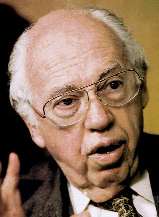
W. Casey |
Casey, William (Joseph) (b. March 13, 1913, Elmhurst, Queens, New York City - d. May 6, 1987, Glen Cove, N.Y.), CIA director (1981-87). During World War II he worked in Europe (1941-46) with the Office of Strategic Studies (forerunner of the CIA) to drop agents behind Nazi lines. After conducting research for Richard M. Nixon's 1968 presidential campaign, Casey helped the new president by establishing the Citizens Committee for Peace with Security. Casey later served as chairman of the Securities and Exchange Commission (1971-73), under secretary of state for economic affairs (1973-74), president and chairman of the Export-Import Bank (1974-75), and a member of the Foreign Intelligence Advisory Board (1976). He served as manager of Ronald Reagan's presidential campaign in 1980. He was named director of central intelligence in 1981, and under his leadership the agency built up its ability to act militarily and politically outside the U.S. Covert action increased in places such as Afghanistan, Central America, and Angola, and the agency stepped up its support for various anti-Communist insurgent organizations. During his tenure the agency began providing the contras with military assistance and clandestine training before such aid was outlawed by Congress in 1984. He was viewed as a pivotal figure in detailing the role of the CIA in the Iran-contra affair, in which weapons were sold by the U.S. to Iran and money from the sale was funneled to the Nicaraguan contras (in possible violation of U.S. law). Due to illness, his crucial testimony was never heard, and his death occurred less than 24 hours after the congressional hearings on the affair began.

Cash |
Cash, Sir Gerald (Christopher) (b. May 28, 1917, Nassau, Bahamas - d. Jan. 6, 2003), governor-general of The Bahamas (1979-88); knighted 1977.
Cashin, Sir Michael Patrick (b. Sept. 29, 1864, Cape Broyle, Newfoundland - d. Aug. 30, 1926, St. John's, Newfoundland), prime minister of Newfoundland (1919). He began his political career in 1893 with his election as an independent Member of the House of Assembly for Ferryland District. He was reelected in 1897. In 1900 and 1904 Cashin ran as a Liberal and was again elected in Ferryland. In the elections of 1908, 1909, and 1913 Cashin was elected as a member of the People's Party for Ferryland. From March 1909 Cashin served as minister of finance and customs. He was knighted in 1918. On May 22, 1919, Cashin was asked by the governor to form a new administration. As well as accepting the office of prime minister, Cashin retained his cabinet post of finance and customs. For the next election Cashin changed the name of his party from the People's Party to the Liberal-Progressives. His major opponent, Richard A. Squires, resigned his Legislative Council seat to lead the Liberal Reform Party, which he was instrumental in forming. The election was held on Nov. 3, 1919, and Cashin was elected in Ferryland for the eighth time. His party was elected to 12 seats and the Squires party elected 13. From 1919 to 1923 Cashin was opposition leader and a vocal critic of the administration. It was only in 1923, because of ill-health, that he surrendered the leadership of the Liberal-Progressive Party to John R. Bennett. After representing Ferryland for over 25 years Cashin chose to run in 1923 as a Liberal-Labour-Progressive candidate for the district of St. John's West, to try to break the Liberal administration's hold over the district. He was elected, and his son Peter Cashin was elected in his father's old district of Ferryland. Continuing ill-health forced Cashin to retire in 1924.
Casimir, Fernand Georges Gaston (Émile Robert) (b. Sept. 4, 1896, Arces, Charente-Inférieure [now Charente-Maritime], France - d. Aug. 24, 1985, Châteaulin, Finistère, France), resident commissioner of the New Hebrides (1935-37) and acting lieutenant governor of Niger (1952-53).
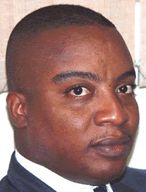
P.R. Casimir |
Casimir, Pierre Richard (b. Feb. 19, 1970, Port-au-Prince, Haiti), foreign minister of Haiti (2012-14). He was also minister of justice and public safety (2015-16).
Casimir-Perier, Auguste (Casimir Victor Laurent), original surname (until March 14, 1874) Perier (b. 1811, Paris, France - d. July 6, 1876, Paris), interior minister of France (1871-72, 1873); son of Casimir Perier.
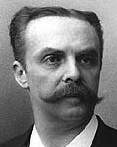
J. Casimir-Perier |
Casimir-Perier, Jean (Paul Pierre), original surname (until March 14, 1874) Perier (b. Nov. 8, 1847, Paris, France - d. March 11, 1907, Paris), prime minister and foreign minister (1893-94) and president (1894-95) of France; son of Auguste Casimir-Perier. He served as a captain during the Franco-German War (1870-71). In 1876 he was elected to the Chamber of Deputies as a Left Republican from Aube département, serving as the chamber's vice president (1890-92) and president (1893). In December 1893, he formed his own cabinet, which fell within six months because of his inability to cope with anarchist terrorism and the vexing church-state issue. Casimir-Perier returned to the presidency of the chamber (June 1894) and in the wake of the assassination of Sadi Carnot was elected (June 27, 1894) president of the Third Republic. Unable to control his premier, Charles Dupuy, and faced with the mounting fury of the Dreyfus affair, he quickly became a target for the political left. His most vigorous assailant, the journalist Alfred Gérault-Richard, was convicted of slander, but then the Socialist leader Jean Jaurès picked up the cudgel. Gérault-Richard's release by the Chamber of Deputies proved so embarrassing that, after only six months in office, Casimir-Perier resigned.
Casimiro Castro, Pablo R(afael) (b. June 29, 1933, Santiago de los Caballeros, Dominican Republic - d. Jan. 19, 2010, Santo Domingo, Dominican Republic), Dominican Republic diplomat. He was permanent representative to the United Nations (1978).
Casis, Roberto Enrique (b. 1927 - d. Dec. 10, 2011), governor of Santa Fe (1982-83).
Casparsson, (Karl) Ragnar (b. Feb. 10, 1893, Avesta, Kopparberg [now Dalarna], Sweden - d. Dec. 26, 1978), governor of Västmanland (1952-60).
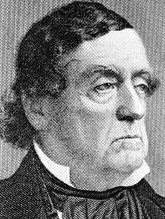
Cass |
Cass, Lewis (b. Oct. 9, 1782, Exeter, N.H. - d. June 17, 1866, Detroit, Mich.), U.S. presidential candidate (1848). In 1806 he was elected to the Ohio legislature. During the War of 1812 he rose from the rank of colonel of volunteers to brigadier general in the regular army. He was governor of Michigan Territory from 1813 to 1831. As such he was also superintendent of Indian affairs for the territory, and this remained for several years the most important part of his duties. As secretary of war in Pres. Andrew Jackson's cabinet (1831-36), he directed the conduct of the Black Hawk and Seminole wars. For the next six years he served as minister to France. As a member of the U.S. Senate (1845-48, 1849-57), Cass became a leader of the 1846 bloc demanding the "reannexation" of all the Oregon country south of latitude 54°40´ N or war with England. He supported Pres. James K. Polk's administration during the Mexican War (1846-48) and opposed the Wilmot Proviso, an anti-slavery proposal applying to land acquired from Mexico. In the 1848 presidential campaign, Cass was the Democratic nominee but was defeated by the Whig candidate, Zachary Taylor. He served as secretary of state (1857-60) under Pres. James Buchanan, but he retired from the post when the president refused to take a firmer stance against the secession of the Southern states.
Cassamá, Cipriano (b. 1958?, Bula, Portuguese Guinea [now Guinea-Bissau]), interior minister (2008-09) and interim president in opposition (2019, 2020) of Guinea-Bissau. He became president of parliament in 2014.
Cassandra, José (Cardoso dos Ramos), byname Tozé Cassandra (b. Feb. 17, 1964, Príncipe), president of the Regional Government of Príncipe (2006-20).
Cassar, Joseph (b. Jan. 22, 1918, Qrendi, Malta - d. Nov. 27, 2001), justice minister (1949-50, 1951-53, 1955-58, 1976-79, 1981-87) and finance minister (1979-81) of Malta. He was also speaker of the Legislative Assembly (1947-48), minister of labour, employment, and welfare (1971-74) and education and culture (1974-76), a deputy prime minister (1976-81), and a senior deputy prime minister (1981-87).
Cassar, Joseph (b. Dec. 22, 1947, Valletta, Malta - d. May 19, 2018), Maltese diplomat. He was permanent representative to the United Nations (1993-97) and ambassador to Italy (1999-2002), Russia (2002-05), Libya (2005-09), Portugal (2009-10), and China (2010-13).
Cassaro, Antonio Statella, (marchese di Spaccaforno e) principe di (b. July 31, 1785, Spaccaforno, Kingdom of Sicily [now Ispica, Sicilia, Italy] - d. Dec. 11, 1864, Torre del Greco [now in Napoli metropolitan city], Italy), foreign minister (1830-40) and prime minister (1860) of the Two Sicilies. He was also minister to Sardinia (1815-20), Spain (1820-26), and Austria (1826-30).
Casse, (Eugène François) Germain (b. Sept. 22, 1837, Pointe-à-Pitre, Guadeloupe - d. Dec. 9, 1900, Avignon, France), governor of Martinique (1889-92).
Casseres, Ronald Anthony, byname Ronny Casseres (b. Aug. 3, 1939, Curaçao - d. Oct. 22, 1988, Miami, Fla.), administrator of Curaçao (1982-88).
Cassidy, Joseph (b. 1866? - d. Nov. 21, 1920, Far Rockaway, Queens, New York City), borough president of Queens (1902-05).
Cassin, René (Samuel) (b. Oct. 5, 1887, Bayonne, France - d. Feb. 20, 1976, Paris, France), president of the European Court of Human Rights (1965-68). He was also Free French commissioner for justice and public instruction (1941-43). He won the Nobel Prize for Peace in 1968.
Cassinis, Giovanni Battista (b. Feb. 25, 1806, Masserano, Italy - d. [suicide] Dec. 18, 1866, Turin, Italy), justice minister of Sardinia (1860-61) and Italy (1861). He was also president of the Chamber of Deputies (1863-65).
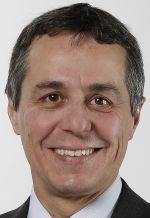
Cassis | 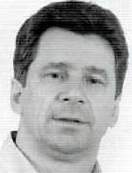
Cassol |
Cassis, Ignazio (b. April 13, 1961, Sessa, Ticino, Switzerland), foreign minister (2017- ) and president (2022) of Switzerland.
Cassol, Ivo Narciso (b. Jan. 20, 1959, Concórdia, Santa Catarina, Brazil), governor of Rondônia (2003-10).
Cassoni, Luis María, byname Neneche (b. Jan. 8, 1939 - d. Jan. 17, 2021, Posadas, Misiones, Argentina), governor of Misiones (1987).

Castaneda | 
J.G. Castañeda |
Castaneda (Magaña), Carlos (Alfredo) (b. April 24, 1954, Chalchuapa, Santa Ana department, El Salvador), foreign minister of El Salvador (2018-19).
Castañeda (Portocarrero), Fernando (Rafael) (b. May 5, 1972, Lima, Peru), justice minister of Peru (2020).
Castañeda, Flavio A., finance minister of Peru (1912).
Castañeda (Gutman), Jorge G(ermán) (b. May 24, 1953, Mexico City), foreign minister of Mexico (2000-03); son of Jorge Castañeda y Álvarez.
Castañeda (Rivas), Reinaldo (Antonio) (b. March 15, 1966), governor of Portuguesa (2016-17).
Castañeda Cornejo, Ricardo Guillermo (b. March 11, 1938), Salvadoran diplomat. He was permanent representative to the United Nations (1989-2000).
Castañeda Lossio, Luis (b. June 21, 1945, Chiclayo, Lambayeque, Peru - d. Jan. 12, 2022, Lima, Peru), Peruvian politician. He was a presidential candidate (2000, 2011) and mayor of Lima (2003-10, 2015-18).

J. Castañeda |
Castañeda y Álvarez (de la Rosa), Jorge (b. Oct. 1, 1921, Mexico City, Mexico - d. Dec. 11, 1997, Mexico City), foreign minister of Mexico (1979-82). A career diplomat, he served as permanent representative to the United Nations (1961-62) and ambassador to Egypt (1962-65), Algeria (1965-68), and France (1983-89). He also represented Mexico before UN organizations and was the author of numerous books and papers on national and international law.
Castberg, Johan (b. Sept. 21, 1862, Brevik [now part of Porsgrunn], Bratsberg amt [now in Vestfold og Telemark fylke], Norway - d. Dec. 24, 1926, Oslo, Norway), justice minister of Norway (1908-10). He was also founder and leader (1906-26) of the Labour Democrats (from 1921, Radical People's Party) and minister of trade, shipping, and industry (1913) and social affairs, trade, industry, and fisheries (1913-14).
Castellano y de Gastón, Gaspar (b. May 18, 1928, La Berné, Ejea de los Caballeros, Zaragoza province, Aragón, Spain - d. April 21, 2019, Zaragoza, Aragón), president of the Diputación General of Aragón (1981-82).
Castellano y Villarroya, Tomás (b. March 5, 1850, Zaragoza, Spain - d. June 11, 1906, Madrid, Spain), finance minister of Spain (1904-05). He was also minister of overseas (1895-97) and governor of the Bank of Spain (1903-04).
Castellanos (Rivas), Jacinto (b. April 26, 1843, San Vicente, El Salvador - d. June 24, 1898, Managua, Nicaragua), interior minister (1885), finance minister (1885-86), and foreign minister (1894-96) of El Salvador.
Castellanos Everardo, Milton (b. March 23, 1920, Copainalá, Chiapas, Mexico - d. Oct. 10, 2011, Mexicali, Baja California, Mexico), governor of Baja California (1971-77). He was also president of the Mexican Chamber of Deputies (1951).
Castelli, Roberto (b. July 12, 1946, Lecco, Lombardia, Italy), justice minister of Italy (2001-06).
Castello Branco, Antonio Borges Leal (b. 1817, Sítio Brejo [then part of Campo Maior; now part of José de Freitas], Piauí, Brazil - d. 1871, Alcântara, Maranhão, Brazil), president of Pernambuco (1865).
Castello Branco, Francisco Gil (b. Sept. 18, 1886, Rio de Janeiro, Brazil - d. April 1, 1956, Rio de Janeiro), governor of Fernando de Noronha (1942-43). He was also head of the military cabinet of Brazil (1945-46).
Castello Branco, José Moreira Brandão, Sobrinho (b. Nov. 13, 1888, São Gonçalo, Rio Grande do Norte, Brazil - d. June 28, 1961), federal interventor in Acre (1934-35).
Castello Branco, Nicolau de Abreu (b. May 20, 1781, Fornos de Algodres, Portugal - d. 1835, Lisbon, Portugal), governor of Angola (1824-29).
Castello Branco, Sérgio Tertuliano (b. July 12, 1844, Maranhão province [now state], Brazil - d. [executed] on or after April 24, 1894, Santa Cruz de Anhatomirim fortress [now in Governador Celso Ramos municipality], Santa Catarina, Brazil), president of São Paulo (1891).
Castellón (Larenas), Carlos (b. 1836?, Concepción, Chile - d. Jan. 31, 1885, Concepción), war and marine minister of Chile (1881-84). He was also intendant of Ñuble (1879-80) and Concepción (1882-84).
Castellón (Sanabria), Francisco (b. 1815, León, Nicaragua - d. Sept. 8, 1855), foreign minister (1851, 1852-53) and director (rival government, 1854-55) of Nicaragua. He was also minister to the United Kingdom, France, and Belgium (1844-...).
Castellón, Francisco, foreign minister of Nicaragua (1883-87).
Castellón (Larenas), Juan (b. 1843, Concepción province, Chile - d. Sept. 14, 1919, Santiago, Chile), foreign minister of Chile (1889-90, 1892); brother of Carlos Castellón. He was also minister of justice and education (1891-92).
Castelo, Augusto Viana do (b. Oct. 8, 1874, Curvelo, Minas Gerais, Brazil - d. Sept. 26, 1953, Rio de Janeiro, Brazil), justice and interior minister of Brazil (1926-30).

P.A. Castelo |
Castelo, Plácido Aderaldo (b. Jan. 11, 1906, Mombaça, Ceará, Brazil - d. June 17, 1979, Fortaleza, Ceará), governor of Ceará (1966-71). He was also acting mayor of Fortaleza (1945).

Castelo Branco |
Castelo Branco, Humberto de Alencar (b. Sept. 20, 1900, Fortaleza, Ceará, Brazil - d. July 18, 1967, Fortaleza), president of Brazil (1964-67). Entering the army in 1921, he was chief of operations of the Brazilian expeditionary force in Italy during World War II. In 1962 he became a full general. As army chief of staff, he was responsible for coordinating the military conspiracy of 1964 against Pres. João Goulart. The coup leaders ordered Congress to elect a new president, and he was chosen. Linked to other veteran officers in the Escola Superior da Guerra, founded in the 1940s in Rio de Janeiro, his foreign policy was anti-Communist, and he believed that short-term technocratic measures should be taken to create the conditions for democracy. His government succeeded in stabilizing the economy, reorganizing the financial system, and renegotiating foreign debt, but failed to alter traditional patterns of authority and prevent the emergence of hardline factions amongst the military, which established the "tutelary regime" that survived until 1985. When the October 1965 state elections went against the regime, the hardliners forced Castelo Branco to modify the constitution to dissolve all existing political parties, provide for election of the president by Congress instead of by the people, reinstate the right of the president to remove key government officials and to cancel citizens' civil rights, and provide for packing the Supreme Court. His term was scheduled to end on Jan. 31, 1966, but was extended to March 15, 1967, when he was succeeded by his war minister Artur da Costa e Silva. He died in an airplane accident.
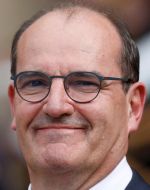
Castex | 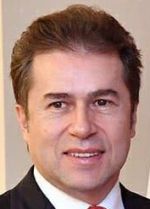
Castiglioni |
Castex, Jean (b. June 25, 1965, Vic-Fezensac, Gers, France), prime minister of France (2020-22).
Castiella (y Maíz), Fernando María (b. Dec. 9, 1907, Bilbao, Spain - d. Nov. 25, 1976, Madrid, Spain), foreign minister of Spain (1957-69). He was also ambassador to Peru (1948-51) and the Vatican (1951-57).
Castiglioni (Soria), Luis (Alberto) (b. July 31, 1962, Itacurubí del Rosario, Paraguay), vice president (2003-07) and foreign minister (2018-19) of Paraguay. He has also been minister of industry and commerce (2020- ).
Castilho (Barreto e Noronha), Augusto (Vidal) de (b. Oct. 10, 1844, Lisbon, Portugal - d. March 30, 1912), governor-general of Mozambique (1885-89).
Castilhos, Júlio Prates de (b. June 29, 1860, Vila Rica [then part of Cruz Alta; now Júlio de Castilhos], Rio Grande do Sul, Brazil - d. Oct. 24, 1903, Porto Alegre, Rio Grande do Sul), president of Rio Grande do Sul (1891, 1893-98).
Castilla (Rubio), Luis Miguel (b. Oct. 31, 1968, Lima, Peru), economy and finance minister of Peru (2011-14). He was also ambassador to the United States (2015-16).

R. Castilla |
Castilla (y Marquesado), Ramón (b. Aug. 27, 1797, Tarapacá, Peru - d. May 25, 1867, Arica, Peru [now in Chile]), president of Peru (1845-51, 1855-62). As a young man he fought for the Spaniards until he was captured by the Chilean patriots. He then fought against the Spaniards in Peru, performing heroically with José de San Martín and Simón Bolívar. In 1839 he was named minister of war and treasury in the government of Pres. Agustín Gamarra. Acting as minister of the treasury, he arranged the first contract (1841) with British capitalists to exploit guano, a fertilizer made from bird dung that accumulated on islands near the coast. In the anarchy that followed the death of Gamarra in 1841, Castilla assumed power and was elected president in 1845. He served until 1851 and then overthrew the next president, José Rufino Echenique, in 1855. When Castilla seized power, Peru had been racked by disorder and rebellions for almost 20 years. A strong and skillful leader, he had the good fortune to be in power when huge supplies of guano and sodium nitrate were discovered. The income from these resources helped him bring about economic improvements, reduce the nation's debt, build schools, improve transportation, and foster domestic business. He also abolished Negro slavery and the head tax on Indians, and, although he was a strong supporter of the church, he eliminated the church courts and the compulsory tithe. In 1860 he supported Peru's new constitution, which narrowed the franchise, gave wide powers to the president, and recognized the Roman Catholic Church exclusively; it remained in force until 1920. When Castilla's paternal despotism ended in 1862, the nation once again lapsed into 20 years of chaos and rebellion.
Castilla Mas, Belarmino, byname Aníbal (b. July 18, 1934, Santiago de Cuba, Cuba - d. Feb. 20, 2015, Havana, Cuba), a vice premier of Cuba (1972-78). He was also minister of education (1970-72).
Castillejos, Juan Prim y Prats, marqués de los, conde de Reus, vizconde del Bruch (b. Dec. 6, 1814, Reus, Spain - d. Dec. 30, 1870, Madrid, Spain), governor of Puerto Rico (1847-48) and war minister (1868-70) and prime minister (1869-70) of Spain. He was made count and viscount in 1843 and marquess in 1860. He died three days after being shot by unknown assassins.
Castillo (Bujase), Alfredo (b. Nov. 24, 1939, Guayaquil, Ecuador), interior minister of Ecuador (2005-06).
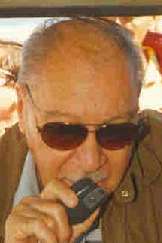
A. (A.) Castillo |
Castillo, Arnoldo (Aníbal) (b. April 29, 1922, Quilmes, Buenos Aires province, Argentina - d. Sept. 29, 2005, San Fernando del Valle de Catamarca, Catamarca, Argentina), governor of Catamarca (1981-83, 1991-99).
Castillo (Morales), Carlos Manuel (b. Dec. 19, 1928, San Pedro de Montes de Oca, San José province, Costa Rica - d. Feb. 20, 1999, Pinares de Curridabat, San José province), Costa Rican politician. He was minister of economy, industry, and commerce (1971-72), first vice president and minister of the presidency (1974-78), and executive president of the Central Bank (1982-84, 1994-95). Castillo was one of the founders of the social-democratic National Liberation Party. He sought his party's presidential nomination five times (for all elections from 1982 to 1998), but only once achieved it - in 1990, when he went on to lose to Social Christian candidate Rafael Ángel Calderón.
Castillo (Guas), Daniel (Isaac) (b. March 31, 1856, Huaraz, Peru - d. 19...), finance minister (1911) and justice and education minister (1914-15) of Peru.
Castillo (del Carpio), (Carlos) Eduardo del (b. Dec. 27, 1988, Santa Cruz, Bolivia), interior minister of Bolivia (2020- ).
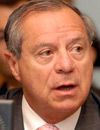
E. Castillo |
Castillo (Barrantes), (José) Enrique (b. Aug. 27, 1945, San José, Costa Rica), foreign minister of Costa Rica (2011-14). He was also ambassador to France (1986-90) and the United Kingdom (2015-18) and justice minister (1994-95).
Castillo (y Gil de la Torre Bustamante y Cossío), Ignacio María del, (from 1888) conde de Bilbao (b. 1817, Veracruz, Mexico - d. 1893, Madrid, Spain), governor of Cuba (1883-84).

J. del Castillo | 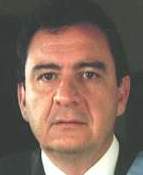
O. Castillo |
Castillo (Gálvez), Jorge (Alfonso Alejandro) del (b. July 2, 1950, Lima, Peru), prime minister of Peru (2006-08). He was also mayor of Lima (1987-89).
Castillo (y Rada), José María del (b. Dec. 20, 1776, Cartagena, New Granada [now in Colombia] - d. Feb. 23, 1835, Bogotá, New Granada [now Colombia]), acting president of New Granada (1814) and finance minister (1821-28) and foreign minister (1831) of Colombia.
Castillo, Miguel Ángel (b. Sept. 29, 1915, San Salvador - d. 19...), member of the Junta of Government of El Salvador (1960-61).
Castillo, Oscar (Aníbal) (b. Jan. 18, 1954, San Fernando del Valle de Catamarca, Catamarca, Argentina), governor of Catamarca (1999-2003); son of Arnoldo Castillo.
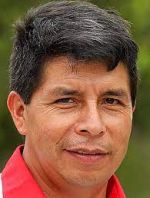
P. Castillo |
Castillo (Terrones), (José) Pedro (b. Oct. 19, 1969, Puña village, Tacabamba district, Cajamarca department [now region], Peru), president of Peru (2021-22).

R.S. Castillo |
Castillo (Barrionuevo), Ramón S.1 (b. Nov. 20, 1873, Ancasti, Catamarca, Argentina - d. Oct. 12, 1944, Buenos Aires, Argentina), president of Argentina (1942-43). As vice president from 1938, he became acting president for the incapacitated Pres. Roberto M. Ortiz in 1940; he succeeded as president on Ortiz's resignation in 1942 but was deposed in 1943.
1 He was named Ramón Antonio Castillo Barrionuevo (Ramón alone at birth; Antonio added at confirmation) before he adopted the initial S.; the meaning is undocumented, though it has been suggested that it stands for Santiago.
Castillo Armas, Carlos (b. Nov. 4, 1914, Santa Lucía Cotzumalguapa, Escuintla department, Guatemala - d. July 26, 1957, Guatemala City), president of Guatemala (1954-57). He participated in the revolt that ousted Pres. Jorge Ubico in July 1944 and supported the ouster of Ubico's successor, Gen. Federico Ponce, in October 1944. Castillo was a supporter of Col. Francisco Araña, the armed forces chief of staff who was assassinated in July 1949. Imprisoned after a failed coup attempt in 1950, he escaped to the Colombian embassy in 1951 and was allowed to leave the country. He went into exile in Honduras, where he remained an opponent of the left-wing regime of Jacobo Arbenz. He launched an invasion, supported by the U.S. Central Intelligence Agency, in June 1954 to "liberate" Guatemala, and Arbenz was forced to resign. A military junta led by Col. Élfego Monzón took power on June 29, and Castillo agreed to join the junta on July 2. He became head of the junta on July 8 and was installed as president on September 1. In October he won a plebiscite in which the electors had to appear in person before the polling committees and answer publicly "yes" or "no" to the question: "Do you wish Colonel Castillo Armas to continue as president of the republic?" With other political parties banned, his National Democratic Movement also won the December 1955 assembly elections. Arbenz's land reforms were reversed and a crackdown was launched against Communist and trade-union activity, before Castillo was assassinated in the presidential palace by a guard who then killed himself.
Castillo Arriola, Eduardo (b. Jan. 5, 1914, Huehuetenango, Guatemala), foreign minister of Guatemala (1982-83). He was also permanent representative to the United Nations (1952-54, 1978-82).
Castillo Claramount, Rodolfo Antonio (b. April 17, 1936, Sonsonate, El Salvador), vice president (1984-89), interior minister (1984-85), and foreign minister (1985-86) of El Salvador.
Castillo Figueroa, Fabio (b. 1921 - d. Nov. 4, 2012), member of the Junta of Government of El Salvador (1960-61).
Castillo Franco, Armando del (b. Aug. 27, 1920, Canatlán, Durango, Mexico - d. Feb. 7, 1992, Durango, Durango), governor of Durango (1980-86). He was also president of the Chamber of Deputies (1949).
Castillo Meza, Tomás (Guillermo) (b. Dec. 21, 1937, Pomabamba, Áncash department [now region], Peru - d. May 27, 2020), defense minister of Peru (1996-97). He was also minister of transport, communications, housing, and construction (1995-96).
Castillo Nájera, Francisco (b. Nov. 25, 1886, Durango, Durango, Mexico - d. Dec. 21, 1954, Mexico City, Mexico), foreign minister of Mexico (1945-46). He was also minister to China (1922-25), the Netherlands (1930-32), France (1933-35), and Austria (1934-35) and ambassador to the United States (1935-45).
Castillo Suárez, Víctor, finance minister of Bolivia (1974-76). He was also chief of staff (1978-79) and commander-in-chief (1979) of the armed forces.
Castillo Valdez, Rafael (Eduardo) (b. Jan. 15, 1928, Cunén, El Quiché, Guatemala - d. March 17, 2015, Guatemala), foreign minister of Guatemala (1978-82). He was also permanent representative to the United Nations (1970-74) and president of Congress (1977-78).
Castillo Velasco, Jaime (Fernando) (b. March 13, 1914, Santiago, Chile - d. Oct. 29, 2003, Santiago), justice minister of Chile (1968-69). He was also minister of lands and colonization (1965-67).
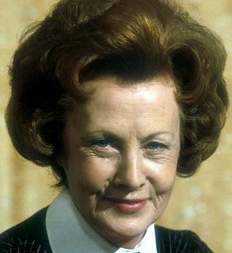
Castle |
Castle of Blackburn (of Ibstone in the County of Buckinghamshire), Barbara (Anne) Castle, Baroness, née Betts (b. Oct. 6, 1910, Chesterfield, Derbyshire, England - d. May 3, 2002, Ibstone, Buckinghamshire, England), British politician. She was committed to the Labour Party's traditional left-wing philosophy, favouring a welfare state that fought for the interests of pensioners and the disabled. She was a parliamentarian for 31 years (1945-79) and served as a cabinet minister under Harold Wilson, becoming the first woman in some posts. She first became minister of overseas development (1964-65), then minister of transport (1965-68) and secretary of state for employment and productivity (1968-70). She remained in the shadow cabinet during the Conservative government of the early 1970s and when Labour regained power in 1974 she became secretary of state for social services. However, when James Callaghan replaced Wilson as prime minister in 1976, Castle was banished to the back benches. She was the architect of legislation promoting equal pay for women and fighting drunken driving. However, she failed to rein in Britain's powerful unions in an effort to stop their unofficial strikes, which often undermined the British economy and Labour governments. She was once expected to become Britain's first female prime minister, a landmark achieved by Conservative Margaret Thatcher in 1979 when Labour was voted out of office. Castle left Westminster that year to begin a 10-year career as a member of the European Parliament, where she led the British Labour group until 1985 and was vice chairman of the Socialist group until 1986. She was granted a life peerage in 1990. She criticized Tony Blair's Labour government when his policies began moving the party from the left to the centre.
Castor, Elie (b. April 28, 1943, Cayenne, French Guiana - d. June 16, 1996, Clermont-Ferrand, Puy-de-Dôme, France), president of the General Council of French Guiana (1985-94).
Castrejón (Castrejón), Adrián (b. June 6, 1893, Apaxtla, Guerrero, Mexico - d. March 15, 1954, Mexico City, Mexico), governor of Guerrero (1929-33).
Castrén, (Johan) Arthur (b. June 10, 1866, Turtola [now Pello], Finland - d. June 29, 1946, Pietarsaari, Finland), interior minister of Finland (1917-18); brother of Kaarlo Castrén. He was also mayor of Helsinki (1931-36).
Castrén, Kaarlo (b. Feb. 28, 1860, Turtola [now Pello], Finland - d. Nov. 19, 1938, Helsinki, Finland), finance minister (1918-19) and prime minister (1919) of Finland.
Castrén, Urho (Jonas) (b. Dec. 30, 1886, Jyväskylä, Finland - d. March 8, 1965, Helsinki, Finland), prime minister of Finland (1944). He was also justice minister (1925-26) and president of the Supreme Administrative Court (1929-56).
Castries, Charles Eugène (Gabriel) de La Croix, marquis de (b. Feb. 25, 1727, Paris, France - d. Jan. 12, 1801, Wolfenbüttel, Principality of Brunswick [now in Niedersachsen, Germany]), French minister of marine and colonies (1780-87).
Castrillo Gamez, Salvador (b. Feb. 18, 1873, Rivas, Nicaragua - d. Sept. 28, 1950, Managua, Nicaragua), foreign minister of Nicaragua (1925). He was also minister to the United States (1911-13) and minister of development and public works (1925).
Castrillo Justiniano, (Ismar) Renán (b. July 19, 1920, Tarija, Bolivia - d. May 26, 1974, Tarija), Bolivian politician. He was president of the Chamber of Deputies (1956-57), ambassador to Chile (1957-61), and permanent representative to the United Nations (1961-64).
Castro (y Casal), Alejandro de (b. April 23, 1812, La Coruña, Spain - d. July 6, 1881, Zarauz, Guipúzcoa province, Spain), foreign minister of Spain (1867, 1874-75). He was also president of the Congress of Deputies (1864-65), minister of overseas (1864, 1866-67) and finance (1865), ambassador to the Papal State (1867-68), and minister to Portugal (1875-77).

Á. de Castro |
Castro, Álvaro (Xavier) de (b. Nov. 9, 1878, Guarda, Portugal - d. June 29, 1928, Coimbra, Portugal), member of the Constitutional Junta (1915) and prime minister (1920, 1923-24) of Portugal and governor-general of Mozambique (1915-18); son of José de Castro. He was also minister of justice (1913-14), finance (1914-15, 1923-24), colonies (1920, 1923), interior (1920), and war (1920-21, 1924).
Castro, Antônio Emiliano de Sousa (b. Aug. 15, 1875, Belém, Pará, Brazil - d. July 1, 1951, Rio de Janeiro, Brazil), governor of Pará (1921-25).
Castro, Augusto Olympio Gomes de (b. Nov. 7, 1836, Alcântara, Maranhão, Brazil - d. Jan. 31, 1909, Rio de Janeiro, Brazil), president of Piauí (1868-69) and Maranhão (1870-72, 1873-75, and [acting] 1890). He was also chairman of Brazil's Chamber of Deputies (1887-88).
Castro (Ruiz), (José) Cipriano (b. Oct. 12, 1858, Capacho, Táchira, Venezuela - d. Dec. 4, 1924, San Juan, Puerto Rico), president of Venezuela (1899-1909). He was governor of Táchira (1888-89) but was exiled to Colombia when the government in Caracas was overthrown in 1892. In Colombia he recruited a private army of cowboys, with which he successfully attacked Caracas in 1899. Known as the Lion of the Andes, he became the first man from the mountains to rule a nation that had been dominated by plainsmen and city dwellers from Caracas. When he refused to pay off foreign debts in 1902, British, German, and Italian ships blockaded the country, leaving the nation almost bankrupt. The issue was eventually resolved through arbitration. He is renowned for being one of the most corrupt leaders in South American history. He was constantly involved in uprisings, duels over mistresses, and the imprisonment of political rivals. He was ultimately deposed by his more ruthless lieutenant, Juan Vicente Gómez. Castro remained an exile for the rest of his life, mostly in Puerto Rico, unsuccessfully plotting his return to Venezuela.
Castro (e Silva), Cláudio (Bomfim de) (b. March 29, 1979, Santos, São Paulo, Brazil), governor of Rio de Janeiro (2020- ).
Castro (Palacio), Diego A. de (b. Oct. 14, 1853, Barranquilla, New Granada [now Colombia] - d. Feb. 23, 1922, Barranquilla), war minister of Colombia (1904-05). He was also governor of Atlántico (1905-06).
Castro, Duarte Vaz Pinto da Fonseca de Sá Pereira e (b. Jan. 26, 1932), Portuguese diplomat. He was chargé d'affaires in Congo (Léopoldville) (1963-66), at the United Nations (1967-70), and in Egypt (1973-76) and ambassador to Cape Verde (1979-82), Bulgaria (1984-87), Venezuela (1988-93), and Turkey (1994-97).
Castro, Fausto de Freitas e (b. April 12, 1846, Porto Alegre, Brazil - d. Dec. 14, 1900, Porto Alegre), acting president of Rio Grande do Sul (1886-87).
Castro, Fernando Augusto Santos e (b. July 20, 1922, Funchal, Madeira, Portugal - d. Nov. 10, 1983, Lisbon, Portugal), governor-general of Angola (1972-74). He was also mayor of Lisbon (1970-72).
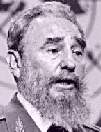
F. Castro |
Castro (Ruz), Fidel (Alejandro)1 (b. Aug. 13, 1926?2, near Birán, Cuba - d. Nov. 25, 2016, Havana, Cuba), Cuban premier (1959-76) and president of the Councils of State and Ministers (1976-2008). He became a member of the Cuban People's Party (called Ortodoxos) in 1947 and was their candidate for a parliamentary seat in elections scheduled for 1952. But on March 10, 1952, Gen. Fulgencio Batista overthrew the government of Pres. Carlos Prío Socarrás and canceled the elections. Castro began to organize a revolution early in 1953. On July 26 he led a small group against the Moncada military barracks in Santiago, but he was arrested. Upon his release from prison in 1955, he went to Mexico to organize the next step in the revolution, heading an organization called the 26th of July Movement. On Dec. 2, 1956, he led a group that landed in Cuba aboard the yacht Granma. Meeting initial setbacks, Castro, his brother Raúl, Che Guevara, and others retreated into the Sierra Maestra to wage guerrilla warfare against Batista's demoralized forces. Batista finally fled the country on Dec. 31, 1958. In February 1959 Castro became premier. His movement was merged with other groups in 1961 and became the Communist Party of Cuba in 1965, with him as first secretary. His government vastly expanded educational opportunities and redistributed economic wealth and access to health facilities. The U.S. equipped thousands of Cuban exiles to overthrow Castro, but their Bay of Pigs Invasion in April 1961 failed. In 1962 the Soviet Union stationed ballistic missiles in Cuba, and the world came close to nuclear war. The crisis ended when the Soviet Union agreed to withdraw its missiles in exchange for a pledge that the U.S. would no longer seek to overthrow the Cuban government. Still, the CIA continued for some time to plot to assassinate Castro. In 2006, for health reasons, he put his leading posts in charge of Raúl, and he did not stand for reelection as president in 2008 or as party chief in 2011.
1 Originally Fidel Hipólito Ruz. He was recognized by his father - and perhaps legitimated - in 1943.
2 His official birthday is Aug. 13, 1926, but some of his siblings told biographers that he was actually born in 1927 and that his parents falsified his age so that he could attend school a year earlier. In a letter he wrote to U.S. president Franklin D. Roosevelt in November 1940, congratulating him on his reelection, he said he was twelve years old which would suggest the birth year 1928.
Castro, Francisco, finance minister of Nicaragua (1934-36).
Castro, Francisco Bibiano de (b. 1789 - d. 1851), president of Maranhão (1837-38).
Castro, Francisco José Viveiros de (b. Nov. 13, 1862 - d. Aug. 6, 1906, Rio de Janeiro, Brazil), president of Piauí (1887-88).
Castro (Gomar), Héctor David (b. April 22, 1894, San Salvador, El Salvador - d. April 1, 1973, San Salvador), foreign minister of El Salvador (1931). He was also chargé d'affaires (1922-27), minister (1934-43), and ambassador (1943-44, 1945-48, 1949-61) to the United States, minister to Uruguay (1933-34), and representative to the United Nations (1945-51).
Castro (Rivera), Jesús Agustín (b. Aug. 15, 1887, Ciudad Lerdo, Durango, Mexico - d. March 22, 1953, Tetelpan, Distrito Federal, Mexico), governor of Chiapas (1914-15), Oaxaca (1915-16), and Durango (1920-24) and acting war and marine minister (1917-18) and defense minister (1939-40) of Mexico. He was a presidential candidate in 1946.
Castro, João Alves de (b. Dec. 7, 1868, Goiás, Goiás, Brazil - d. Aug. 25, 1926), president of Goiás (1917-21).
Castro, João Augusto de Araújo (b. Aug. 27, 1919, Rio de Janeiro, Brazil - d. Dec. 9, 1975, Washington, D.C.), foreign minister of Brazil (1963-64). He was also ambassador to Greece (1964-66), Peru (1966-68), and the United States (1971-75) and permanent representative to the United Nations (1968-71).
Castro, João Capistrano de Miranda e (b. 1812? - d. Nov. 10, 1882, Porto Alegre, Brazil), acting president of Rio Grande do Sul (1848, 1870).
Castro, João da Costa Lima e (b. 1822, Rio de Janeiro, Brazil - d. July 9, 1884, Rio de Janeiro), acting president of Espírito Santo (1861).
Castro, João Dias de (b. 1807, Piratini, Rio Grande do Sul, Brazil - d. ...), acting president of Rio Grande do Sul (1839, 1871, 1877).
Castro, Joaquim Pereira Pimenta de (b. Nov. 5, 1846, Pias, Viana do Castelo district, Portugal - d. May 14, 1918, Lisbon, Portugal), prime minister of Portugal (1915). He was also minister of war (1911, 1915), finance (1915), development (1915), and foreign affairs (1915).
Castro, José Antonio de Azevedo (b. Feb. 19, 1839, Rio de Janeiro, Brazil - d. Jan. 1, 1911, Ealing, Middlesex [now part of London], England), president of Rio Grande do Sul (1875-76).
Castro, José (Augusto Soares Ribeiro) de (b. April 7, 1848, Valhelhas, Guarda concelho, Portugal - d. July 31, 1929, Lisbon, Portugal), prime minister of Portugal (1915). He was also minister of education (1915), interior (1915), war (1915), and navy (1915).
Castro, José Fernandes Leite de (b. Oct. 5, 1871, Cruz Alta, Rio Grande do Sul, Brazil - d. Dec. 13, 1950, Rio de Janeiro, Brazil), war minister of Brazil (1930-32).
Castro (Madriz), José María (b. Sept. 1, 1818, San José, Costa Rica - d. April 4, 1892, San José), foreign minister (1844, 1846-47, 1859, 1873, 1877-83, 1883-85) and president (1847-49, 1866-68) of Costa Rica. He was also vice-chief (1846-47) and president of the Supreme Court (1860-66, 1870-73).
Castro, José Plácido de (b. Dec. 9, 1873, São Gabriel, Rio Grande do Sul, Brazil - d. Aug. 11, 1908, Bemfica plantation, Acre, Brazil), commander-in-chief of the Acrean Army (1902-03), governor of Acre (1903, 1903-04), and prefect of Alto Acre (1906-07). He was shot by assassins on Aug. 9, 1908.
Castro (Fernández), Juan Diego (b. June 15, 1955, San José, Costa Rica), Costa Rican presidential candidate (2018). He was also minister of public security (1994-96) and justice (1996-97).
Castro (Contreras), Julián (b. 1805, Petare, Miranda, Venezuela - d. June 12, 1875, Valencia, Carabobo, Venezuela), governor of Carabobo (1854-55, 1855-57, 1857-58) and head of state of Venezuela (1858-59).
Castro, Julián (b. Sept. 16, 1974, San Antonio, Texas), mayor of San Antonio (2009-14) and U.S. secretary of housing and urban development (2014-17). In January 2019 he announced his candidacy for the 2020 Democratic presidential nomination; he ended his campaign in January 2020. His twin brother Joaquin Castro has been a U.S. representative from Texas (2013- ).
Castro, Manoel de, Filho (b. July 1, 1912, Morada Nova, Ceará, Brazil - d. Sept. 18, 1995, Fortaleza, Ceará), acting governor of Ceará (1982-83).
Castro, Manoel (Francisco Zacarias) de Portugal e (b. Nov. 5, 1787 - d. July 13, 1854), governor of Minas Gerais (1814-21), captain-general of Madeira (1823-27), governor (1827-30) and viceroy (1830-35) of Portuguese India, and Portuguese minister of navy and overseas (1846-47) and foreign affairs (acting, 1846); son of Afonso Miguel de Portugal e Castro, conde de Vimioso, marquês de Valença; brother of José Bernardino de Portugal e Castro, conde de Vimioso, marquês de Valença.
Castro, Manoel Fontenele de (b. July 8, 1898, Viçosa, Ceará, Brazil - d. Oct. 25, 1965, Rio de Janeiro, Brazil), governor of Acre (1958-61).
Castro, Manoel Pinto de (b. Aug. 30, 1774, Natal, Rio Grande do Norte, Brazil - d. Aug. 2, 1850), president of the Provisional Junta (1822-24) and acting president (1832, 1832-33) of Rio Grande do Norte.
Castro, Miguel Joaquim de Almeida (b. Dec. 4, 1834, Ipu, Ceará, Brazil - d. May 6, 1901, Recife, Pernambuco, Brazil), president of Piauí (1882-83) and Rio Grande do Norte (1891).
Castro, Noli de, byname of Manuel Leuterio de Castro, also nicknamed Kabayan (b. July 6, 1949, Pola, Oriental Mindoro province, Philippines), vice president of the Philippines (2004-10).
Castro, Olegario Herculano de Aquino e (b. March 30, 1828, São Paulo, Brazil - d. Aug. 10, 1906, Rio de Janeiro, Brazil), president of Minas Gerais (1884-85). He was also president of the Federal Supreme Court (1894-1906).
Castro, Otávio Ismaelino Sarmento de (b. May 21, 1905, Pará, Brazil - d. Dec. 28, 1989, Rio de Janeiro, Brazil), member of the Governing Junta of Pará (1930, 1930).
Castro, Pacifico A(lbano) (b. June 30, 1932, Ilocos Norte province, Philippines - d. March 11, 2001, Makati, Philippines), acting foreign secretary of the Philippines (1985-86). He joined the country's foreign service in July 1957 and served as Philippine ambassador to Algeria (1975-77), Jordan (1989-93), Canada (1993-96), and Belgium (1996-97). He also served in the country's diplomatic posts in Seoul and Paris as third secretary and vice consul and in Paris and Geneva as Minister counselor and consul general. In the Home Office, he served in various capacities, as special assistant in the Office of Legal Affairs; chief of the Division of UN Affairs and concurrently acting executive officer and later special assistant to the undersecretary for policy; director of the Foreign Service Institute; deputy minister; and director-general of the Office of Middle East and African Affairs. He authored and edited several books on international law and diplomacy, among them, Philippine Diplomatic and Consular Practice, Digest of Philippine International Law Jurisprudence, and the Philippine Foreign Service Code.
Castro, Pedro Luís Correia e (b. Sept. 17, 1881, Vassouras, Rio de Janeiro, Brazil - d. Nov. 16, 1953, Itararé, São Paulo, Brazil), finance minister of Brazil (1946-49).
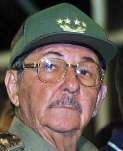
Raúl Castro |
Castro (Ruz), Raúl (Modesto), originally Raúl Ruz (b. June 3, 1931, Birán, Cuba), Cuban politician. He stood alongside his brother Fidel Castro since 1953. After the successful revolution he was armed forces (defense) minister from 1959 to 2008. As second secretary of the Communist Party from 1965 and first vice president of the Council of State and Council of Ministers from 1976, he was Fidel's designated successor. Although he was thought to be the more traditional Communist of the two, he demonstrated greater interest in economic reform than his brother. While Fidel was the charismatic public face of the revolution, Raúl appeared quiet and reserved. His wife Vilma Espín (1930-2007) was also an important senior party figure. In 2006 Fidel, because of ill health, delegated his leading positions to Raúl. Fidel was not able to take them up again, and Raúl officially succeeded him as president in 2008 and as first secretary of the Communist Party in 2011. He implemented various liberalizing reforms, mainly with regard to private property rights, without loosening the party's power monopoly. In December 2014 he and U.S. president Barack Obama announced that the two countries would reestablish diplomatic ties. That opening reached its zenith in March 2016, when Obama visited Havana. He left the presidency in 2018, when Miguel Díaz-Canel became the first non-Castro to lead Cuba in 59 years. In 2021 he also passed the party leadership to Díaz-Canel.
Castro, Raul H(ector) (b. June 12, 1916, Cananea, Sonora, Mexico - d. April 10, 2015, San Diego, Calif.), governor of Arizona (1975-77). He was also U.S. ambassador to El Salvador (1964-68), Bolivia (1968-69), and Argentina (1977-80).

René Castro | 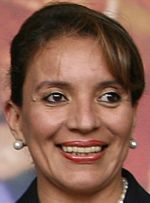
X. Castro |
Castro (Salazar), René (b. Aug. 25, 1957), foreign minister of Costa Rica (2010-11).
Castro (Spíkula), Sergio (Alejandro) de (b. Jan. 25, 1930, Santiago, Chile), finance minister of Chile (1976-82). He was also minister of economy (1975-76).
Castro (Sarmiento), (Iris) Xiomara (b. Sept. 30, 1959, Tegucigalpa, Honduras), president of Honduras (2022- ); wife of Manuel Zelaya.
Castro Avendaño, Walter, interior minister (1973-74) and defense minister (1978) of Bolivia.
Castro Castro, Jaime (b. March 28, 1938, Moniquirá, Boyacá, Colombia), interior minister of Colombia (1984-86). He was also justice minister (1973-74), ambassador to Italy (1976-78), and mayor of Bogotá (1992-94).
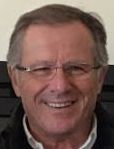
E. de Castro |
Castro González, Eduardo de (b. March 3, 1957, Melilla, Spain), president of Melilla (2019- ).
Castro Martínez, José Joaquín (b. April 5, 1899, Tunja, Colombia - d. Aug. 23, 1956, Bogotá, Colombia), finance minister (1937) and war minister (1938-41) of Colombia. He was also governor of Boyacá (1936-37), minister of education (1937-38), and ambassador to Brazil (1948-49).
Castro Morán, Mariano (b. 1916 - d. Nov. 7, 2005), member of the Civic-Military Directory of El Salvador (1961-62).
Castro Sánchez, Juventino (b. Jan. 25, 1919, Amealco, Querétaro, Mexico - d. Feb. 3, 2006, Querétaro, Querétaro), governor of Querétaro (1967-73). He was also mayor of Querétaro (1961-64).
Castro Soteldo, Wilmar (Alfredo) (b. March 3, 1956), governor of Portuguesa (2008-16). He has also been Venezuelan minister of production and commerce (2003-05), tourism (2005-07), and agricultural production and lands (2016- ) and vice president for economy (2017-18).
Castro Zaldívar, Mariano (b. 1828, Cajamarca, Peru - d. 1900), interior and police minister (1883-84), acting foreign minister (1884), and prime minister and minister of justice, education, and worship (1884-85) of Peru (insurrectionary government of Miguel Iglesias).
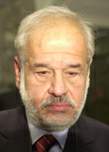
Casule |
Casule, Slobodan (b. Sept. 27, 1945, Skopje, Macedonia - d. Dec. 18, 2015, Madrid, Spain), foreign minister of Macedonia (2001-02). He was also ambassador to Spain (2013-15).
Catalá (Polo), Rafael (b. June 21, 1961, Madrid, Spain), justice minister of Spain (2014-18). He was also acting minister of development (2016).
Catan, Victor (b. Aug. 17, 1949, Druta, Moldavian S.S.R.), interior minister of Moldova (1998-99, 2009-11).
Catanho, Lourenço Francisco de Almeida (b. 1816? - d. Aug. 16, 1886, São Luís, Maranhão, Brazil), acting president of Piauí (1856-57).
Catão, Olimpio Carneiro Viriato (d. April 29, 1858, Vitória, Espírito Santo, Brazil), president of Espírito Santo (1857-58).
Catargiu, Barbu (b. Nov. 7 [Oct. 26, O.S.], 1807, Bucharest, Walachia [now in Romania] - d. [assassinated] June 20 [June 8, O.S.], 1862, Bucharest), prime minister of Walachia (1861) and prime minister and interior minister of Romania (1862).
Catargiu, Lascar (Stefan) (b. Nov. 13, 1823, Iasi, Romania - d. April 11, 1899, Bucharest, Romania), prime minister (1866, 1871-76, 1889, 1891-95) and foreign minister (1873 [acting], 1875-76) of Romania. Under Prince Grigore Ghica (1849-56), he rose to be prefect of police at Iasi. In 1858 he served on the Moldavian divan ad hoc (representative commission) formed to determine the future political organization of the Danubian principalities - Moldavia and Walachia - and in 1859 was the Conservative candidate for the throne of Moldavia. After the unification of the principalities, he joined the secret committee that successfully planned the overthrow of the first prince of united Romania, Alexandru Ioan, and his replacement by Prince Karl of Hohenzollern-Sigmaringen (1866), thereafter prince, and later (1881) King Carol I. From February 1866 until the accession of Carol in May, he served on the three-member governing regency and, from May to July 1866, headed his first cabinet. During the anti-dynastic agitation of 1871, he was called to form another government. His policy, which averted revolution and revived the popularity of the crown, was regarded as unpatriotic and reactionary by the Liberals, who resumed office in 1876, and a proposal to impeach the whole Catargiu cabinet was only withdrawn in 1878. In opposition, he led his Conservative Party in violent attacks against the ruling Liberals, until in 1889 he formed another cabinet, but this administration fell after seven months. In office again in 1891-95, he was responsible for several useful reforms, chiefly financial and commercial. He held the interior portfolio in all his administrations as well as in Ioan Emanoil Florescu's ministry in 1891; he also was war minister (1894) and president of the Chamber of Deputies (1866-67, 1888-89).
Catarino, Pedro Manuel dos Reis Alves (b. Dec. 5, 1941, Lisbon, Portugal), Portuguese diplomat. He has been permanent representative to the United Nations (1992-96), ambassador to China (1997-2002) and the United States (2002-06), and representative of the republic in the Azores (2011- ).
Cateriano, José G., finance minister of Peru (1931-32).
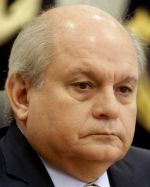
P. Cateriano |
Cateriano (Bellido), Pedro (Álvaro) (b. June 26, 1958), defense minister (2012-15) and prime minister (2015-16, 2020) of Peru.
Cathala, Pierre (Adolphe Juste) (b. Sept. 22, 1888, Montfort-sur-Meu, Ille-et-Vilaine, France - d. July 27, 1947, Paris, France), interior minister (1932) and finance minister (1942-44) of France. He was also minister of agriculture (1935-36, 1944), national economy (1942-44), and supply (1944).
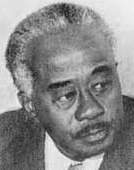
Cato |
Cato, (Robert) Milton (b. June 3, 1915, Saint Vincent island - d. Feb. 10, 1997, Kingstown, Saint Vincent), prime minister of Saint Vincent and the Grenadines (1979-84). Having joined the Canadian army, he saw active service in Europe in World War II. Back in St. Vincent, he began to identify himself with local political aspirations. He was elected a parliamentary member of the short-lived West Indies Federation. In 1955 he, along with others, founded the St. Vincent Labour Party (SVLP). He became leader of the opposition in 1961. In May 1967, as leader of the SVLP, he became chief minister, and in 1969 premier when the island moved from dependency status to associated statehood. In 1972 his party lost to an opposition coalition, but in 1974, in an extraordinary turnabout, he led it to victory in conjunction with the island's other main political party. By 1976 this coalition had collapsed, but Cato retained the position of premier as the SVLP still had a majority in the legislative assembly. When St. Vincent cast loose its links of association with Britain on Oct. 27, 1979, Cato became its first prime minister under the new constitution, a position that was confirmed in elections on December 5. Cato was one of the few remaining Caribbean heads of government of the old school. Though a socialist, his political convictions did not embrace modern regional interpretations, let alone Marxism-Leninism. He had been highly critical, in both public and private, of the effect of the revolution in neighbouring Grenada and developments in Jamaica and Guyana. Instead he preferred to establish closer links with the relatively conservative governments of Trinidad and Barbados, both at an economic level and through the establishment of a joint coast guard and a fisheries protection service with Barbados. He was also minister of finance (1968-72, 1975-84) and information and Grenadines affairs (1980-84). The SVLP was defeated in July 1984 elections, and in November he announced his retirement from politics.
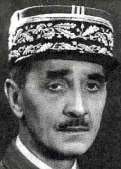
Catroux |
Catroux, Georges (Albert Julien) (b. Jan. 29, 1877, Limoges, Haute-Vienne, France - d. Dec. 21, 1969, Paris, France), French administrator. He served in World War I, was wounded and taken prisoner in 1916 at which time he met another wounded POW, Charles de Gaulle. He was promoted to general in 1931, led a pacification campaign in Morocco, and commanded an army corps in Algeria. Appointed acting governor-general of Indochina in 1939, he was dismissed by the Vichy government in 1940 and joined General de Gaulle's Free French movement. He was tried in absentia and sentenced to death by Vichy in 1941. De Gaulle gave him the command of the French forces in the Syrian campaign in 1941 and he was delegate-general of Syria and Lebanon in 1941-43 where his tact and negotiating ability took some of the edge off quarrels between the British and Free French. He restored calm after a disastrous Free French decision to arrest the president and the government of Lebanon in 1943. He was governor-general of Algeria in 1943-44, minister for North Africa in the French provisional government in 1944, and French ambassador to the Soviet Union in 1945-48. He was a member of the Grand Council of de Gaulle's Rassemblement du Peuple Français but left it in 1952. He remained in close contact with de Gaulle and, like him, protested against the forced exile of the sultan of Morocco in 1953. In September 1955, when Prime Minister Edgar Faure was undoing the work of French reactionaries, it was Catroux who was sent to Madagascar for talks with the exiled Muhammad V and who brought him back to France. He was appointed resident minister of Algeria in 1956, but his reputation as a liberal and friend of Muslims caused an outcry among the Europeans in Algeria and he quickly resigned.
Catto, Henry E(dward), Jr. (b. Dec. 6, 1930, Dallas, Texas - d. Dec. 18, 2011, San Antonio, Texas), U.S. diplomat; son-in-law of William P. Hobby and Oveta Culp Hobby. He was ambassador to El Salvador (1971-73) and the United Kingdom (1989-91).
Catuama, João José Ferreira de Aguiar, barão de (b. Jan. 10, 1810, Goiana, Pernambuco, Brazil - d. Nov. 15, 1888, Recife, Pernambuco), president of Rio Grande do Norte (1836-37) and Ceará (1877-78). He was made baron in 1888.
Catusse, Anatole Charles (b. Dec. 24, 1847, Saint-Dizier, Haute-Marne, France - d. March 1901, Stockholm, Sweden), French official. He was prefect of the départements of Aude (1877, 1877-79), Dordogne (1879-82), Loire-Inférieure (1882-85), and Alpes-Maritimes (1885-87) and minister to Sweden (1899-1901).
Cauas (Lama), Jorge (Elías) (b. Aug. 13, 1934, San Felipe, Chile), finance minister of Chile (1974-76). He was also ambassador to the United States (1977-78).
Caudière, Paul Michel Frédéric (b. June 26, 1822, Martigues, Bouches-du-Rhône, France - d. ...), commandant-particular of Gabon (1876-79).
Caullet, Jean-Yves (b. Feb. 8, 1957, Roubaix, Nord, France), personal representative of the French co-prince of Andorra (1993-97).
Causevic, Sead (b. Sept. 15, 1949, Tuzla, Bosnia and Herzegovina), premier of Tuzla canton (2011-14).
Caux, Louis Victor de Blacquetot, vicomte de, de Caux also spelled Decaux (b. May 23, 1775, Douai [now in Nord département], France - d. June 6, 1845, Saint-Germain-en-Laye, Seine-et-Oise [now in Yvelines], France), war minister of France (1828-29). He was made vicomte (viscount) in 1818.
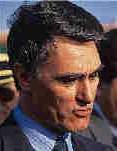
Cavaco |
Cavaco Silva, Aníbal (António) (b. July 15, 1939, Boliqueime parish, Loulé municipality, Algarve, Portugal), finance minister (1980-81), prime minister (1985-95), and president (2006-16) of Portugal. He was president of the Social Democratic Party in 1985-95. He was an unsuccessful presidential candidate in 1996 but won in 2006 and was reelected in 2011.
Cavagna Martínez, Ildefonso Félix (b. March 14, 1905, Buenos Aires, Argentina - d. May 5, 1970, Buenos Aires), foreign minister of Argentina (1955). He was also president of the Banco de la Nación Argentina (1947-49).
Cavaignac, Godefroy (Jacques Marie Eugène) (b. May 21, 1853, Paris, France - d. Sept. 24, 1905, Flée, Sarthe, France), war minister of France (1895-96, 1898); son of Louis Eugène Cavaignac. He was also minister of marine and colonies (1892).

L.E. Cavaignac |
Cavaignac, Louis Eugène (b. Oct. 15, 1802, Paris, France - d. Oct. 28, 1857, Ourne, Sarthe, France), chief executive of France (1848). Cavaignac's father, Jean-Baptiste, was a Jacobin member of the Committee of General Security during the French Revolution (1789-92), and Louis retained his father's strong republican beliefs. His uncle, Jacques-Marie, served the Bourbons and the July Monarchy, which ruled France in 1830-48, and helped Cavaignac regain his appointment in the army, from which he had been dismissed in 1831 because of his republicanism. Nevertheless, he was sent to the relative isolation of Algeria. Cavaignac performed with distinction during the French conquest of Algeria in the 1840s, and in 1848 he was appointed governor-general. Amid the revolutionary activity of that year, he was elected to the legislature in France and appointed minister of war by the provisional government of the newly formed Second Republic. That June there was a large workers' revolt in Paris to protest the expulsion of Socialist leaders from the National Assembly and the closing of the national workshops (government-sponsored employment centres). Cavaignac directed the suppression of the revolt, for which he became known as "the butcher of June." On June 28 the National Assembly named him chief executive of France, but he lost the presidential election to Louis-Napoléon Bonaparte (later Emperor Napoléon III) that December. Cavaignac remained a leader of the opposition to Bonaparte. He was arrested in 1851, but the next year he was elected to the Corps Législatif. He refused, however, to take an oath of allegiance to the new emperor and thus was denied his seat in the legislature both then and again in 1857.
Cavalcante, Diogo Velho Cavalcante de Albuquerque, visconde de (b. Nov. 9, 1829, Pilar, Paraíba, Brazil - d. June 14, 1899, Juiz de Fora, Minas Gerais, Brazil), foreign minister of Brazil (1877-78). He was also president of Piauí (1859-60), Ceará (1868-69), and Pernambuco (1870-71) and minister of agriculture (1870) and justice (1875-77). He was created viscount in 1888.
Cavalcante, Luiz de Souza (b. June 18, 1913, Rio Largo, Alagoas, Brazil - d. Sept. 30, 2002, Brasília, Brazil), governor of Alagoas (1961-66).
Cavalcânti, Amaro (b. Aug. 15, 1849, Caicó, Rio Grande do Norte, Brazil - d. Jan. 28, 1922, Rio de Janeiro, Brazil), justice and interior minister (1897-98 and [acting] 1918) and finance minister (1918-19) of Brazil and prefect of Distrito Federal (1917-18). He is not to be confused with another politician (no relation), Amaro Bezerra Cavalcânti de Albuquerque (1825-1890).
Cavalcanti, Ambrosio Machado da Cunha (b. Oct. 7, 1830, Passo de Camaragibe, Alagoas, Brazil - d. April 4, 1897, Ipojuca, Pernambuco, Brazil), governor of Pernambuco (1890 and [acting] 1892).
Cavalcanti, Carlos de Lima (b. June 7, 1892, Amaraji, Pernambuco, Brazil - d. Sept. 19, 1967, Rio de Janeiro, Brazil), federal interventor (1930-35) and governor (1935-37) of Pernambuco.
Cavalcânti, Clóvis Bezerra (b. July 9, 1911, Bananeiras, Paraíba, Brazil - d. Feb. 26, 2003, João Pessoa, Paraíba), acting governor of Paraíba (1982-83); cousin of Odon Bezerra Cavalcânti.
Cavalcanti, Joaquim Francisco de Freitas (b. April 14, 1948, Recife, Pernambuco, Brazil - d. Aug. 3, 2021, Recife), interior minister of Brazil (1987) and governor of Pernambuco (1991-95); nephew of José Francisco de Moura Cavalcânti. He was also mayor of Recife (1983-86, 1989-90).
Cavalcânti, José Costa (b. Jan. 6, 1918, Fortaleza, Brazil - d. Aug. 10, 1991, Rio de Janeiro, Brazil), interior minister of Brazil (1969-74). He was also minister of mines and energy (1967-69).
Cavalcânti, José Francisco de Moura (b. Oct. 20, 1925, Cipó Branco farm [now in São Vicente Férrer municipality], Pernambuco, Brazil - d. Nov. 28, 1994, Recife, Brazil), governor of Amapá (1961) and Pernambuco (1975-79). He was also Brazilian minister of agriculture (1973-74).
Cavalcanti, José Mariano de Albuquerque (b. May 20, 1772, Sant'Anna [now Santana do Acaraú], Ceará, Brazil - d. Aug. 20, 1844, Magé, Rio de Janeiro, Brazil), president of Ceará (1831-33), Santa Catarina (1835-36), and Sergipe (1837).
Cavalcanti, José Rufino Bezerra (b. Aug. 16, 1865, Vitória de Santo Antão, Pernambuco, Brazil - d. March 27, 1922, Recife, Pernambuco), governor of Pernambuco (1919-20). He was also Brazilian minister of agriculture, industry, and commerce (1915-17).
Cavalcânti, Newton de Andrade (b. Oct. 25, 1885, Alagoas province [now state], Brazil - d. Nov. 25, 1965), federal interventor in Mato Grosso (1935) and Rio de Janeiro (1935). He was also head of the military cabinet of Brazil (1950-51).
Cavalcânti, Odon Bezerra (b. May 20, 1901, Bananeiras, Paraíba, Brazil - d. Aug. 12, 1949), governor of Paraíba (1946).
Cavalcânti, Rivando Bezerra (b. 1929, Bananeiras, Paraíba, Brazil - d. June 16, 2016, João Pessoa, Paraíba), acting governor of Paraíba (1986); cousin of Clóvis Bezerra Cavalcânti.
Cavaleiros, Rodrigo José (António) de Meneses e Castro, conde de (b. Nov. 12, 1750, Santa Maria dos Olivais, Portugal - d. May 13, 1807, Óbidos, Portugal), governor of Minas Gerais (1780-83) and governor-general of Bahia (1784-88). He was made conde de Cavaleiros in 1802.
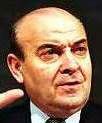
Cavallo |
Cavallo, Domingo (Felipe) (b. July 21, 1946, San Francisco, Córdoba province, Argentina), Argentine politician. He was foreign minister in 1989-91 and then became economy minister. When inflation ran around 5,000%, he pegged the peso to the U.S. dollar and ushered in a period of economic stability and growth for Latin America's third-largest economy. Under the Peronist administration of Pres. Carlos Menem, he oversaw the mass privatization of Argentina's inefficient state-owned companies. The country became a darling of Wall Street investors. Legend has it Cavallo was greeted like a sports hero when he stepped into the Buenos Aires Stock Exchange in 1995 amid a market meltdown across Latin America. As traders chanted his nickname "Mingo" to the cadence usually reserved for soccer stars, Argentine stocks rebounded, if only for a moment. In July 1996, he left Menem's administration after he ruffled feathers by alleging the existence of crime rings in the government. Cavallo began the Action for the Republic party and won a seat in Congress. Since then, he made an effort to remain in the public eye at home and abroad. He gave advice to crisis-torn Ecuador and even his old boss was proud to see a countryman on the world stage in 1998 when Russia sought his advice on its debt crisis. Cavallo ran for president in 1999 but got only about 10% of the vote. He also ran for mayor of Buenos Aires, and lost. In March 2001 he again became economy minister. He stepped down as head of his party in May 2001, saying he wanted to concentrate on rescuing the ailing economy - this time without success. He had to quit along with de la Rúa in December after their economic policies triggered bloody riots. He was jailed from April to June 2002 in connection with an arms-smuggling scandal.
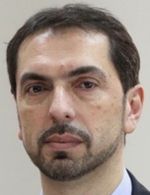
Cavara |
Cavara, Marinko (b. Feb. 2, 1967, Busovaca [now in Federation of Bosnia and Herzegovina]), president of the Federation of Bosnia and Herzegovina (2015- ).
Cavareda (Trucíos), Ramón de la (b. Jan. 14, 1793, Santiago, Chile - d. ...), war and marine minister (1833, 1837-40) and acting finance minister (1840) of Chile.
Cavazos, Lauro F(red) (b. Jan. 4, 1927, near Kingsville, Texas - d. March 15, 2022, Concord, Mass.), U.S. secretary of education (1988-90).
Cavazos Ceballos, (Jesús) Silverio (b. Dec. 15, 1968, Tecomán, Colima, Mexico - d. [assassinated] Nov. 21, 2010, Colima, Colima), governor of Colima (2005-09).
Cave, George Cave, (1st) Viscount (b. Feb. 23, 1856, London, England - d. March 29, 1928, Burnham-on-Sea, Somerset, England), British home secretary (1916-19) and lord chancellor (1922-24, 1924-28). He was knighted in 1915 and created viscount in 1918.
Cavelier de Cuverville, Jules Marie Armand, comte de (b. July 28, 1834, Allineuc, Côtes-du-Nord [now Côtes-d'Armor], France - d. March 14, 1912, Paris, France), commandant of the Naval Division of the Western Coasts of Africa (1884-86).
Cavendish, Lord John (b. Oct. 22, 1732, London, England - d. Dec. 18, 1796, Twickenham, Middlesex [now part of London]), British chancellor of the exchequer (1782, 1783); son of William Cavendish, Duke of Devonshire.
Cavendish-Bentinck, William Henry, known as Lord William Bentinck (b. Sept. 14, 1774, London, England - d. June 17, 1839, Paris, France), governor of Madras (1803-07) and governor-general of India (1828-35); son of William Henry Cavendish Cavendish-Bentinck, Duke of Portland. He was also British minister to the Two Sicilies (1811-14).
Caveri, Luciano (Emilio) (b. Dec. 25, 1958, Aosta, Valle d'Aosta, Italy), president of Valle d'Aosta (2005-08); grandson of Severino Caveri.
Caveri, Severino, French Séverin Caveri (b. May 29, 1908 - d. Dec. 19, 1977), president of Valle d'Aosta (1946-54, 1963-66).
Cavero (y Cárdenas), Ignacio (b. between June 23 and 29, 1757, Merida, Yucatán, Mexico - d. Aug. 17 or 22, 1834, Cartagena, Colombia), president of the Supreme Junta of Government of Cartagena (1811-12).
Cavero (Ovalle), José Salvador (b. Feb. 19, 1850, Huanta, Peru - d. Feb. 19, 1940, Lima, Peru), prime minister of Peru (1910). He was also minister of finance (1893-94), justice (1894, 1910), and interior (1894-95) and first vice president (1904-08).
Cavero Lataillade, Íñigo, barón de Carondelet y de la Torre, marqués del Castillo de Aysa (b. Aug. 1, 1929, San Sebastián, Spain - d. Dec. 25, 2002, Madrid, Spain), justice minister of Spain (1979-80). He was also minister of education and science (1977-79) and culture (1980-81) and president of the Council of State (1996-2002). He succeeded to the marqués title in 1968, as barón de Carondelet in 1971, and as barón de la Torre in 1972.
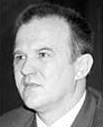
Cavic |
Cavic, Dragan (b. March 10, 1958, Zenica, Bosnia and Herzegovina), president of the Republika Srpska (2002-06).
Cavina, Sergio (b. May 5, 1929, Ravenna, Italy - d. Dec. 22, 1977, Bologna, Italy), president of Emilia-Romagna (1976-77).
Cavour, Camillo Benso, conte di (b. Aug. 10, 1810, Turin, France [now in Italy] - d. June 6, 1861, Turin), prime minister of Sardinia (1852-59, 1860-61) and Italy (1861). In 1847 he founded a progressive journal, Il Risorgimento ("The Resurgence," the name subsequently given to the Italian unification movement). He entered Sardinian politics in 1849, and held various ministerial posts under Massimo Taparelli, marchese d'Azeglio, before replacing him as prime minister. He was minister of agriculture and commerce (1850-52), finance (1851-52, 1852-58), foreign affairs (1855, 1856-59, 1860-61), and interior (1858-59, 1860) of Sardinia and foreign minister of Italy (1861). Cavour's early policy was based on the economic development and modernization of the Kingdom of Sardinia, fostering commerce, ending restrictions on banking, and improving communications. From 1855, however, he concentrated increasingly on foreign affairs, entering the Crimean War against Russia and perhaps achieving his greatest success with the Plombières Agreement with France which laid the basis for the acquisition of Lombardy from Austria. In 1860 the Expedition of the Thousand to Sicily and Giuseppe Garibaldi's subsequent victories in the Mezzogiorno made Cavour fear that the latter might establish a republican government in the south or attempt to capture Rome, which would jeopardize good relations with France. He consequently tried to place the south under more moderate leadership. Having failed to achieve this, he sent troops through the Papal States (annexing Umbria and the Marche en route) to block Garibaldi's northward advance. Much to his relief, Garibaldi happily surrendered his conquests to King Vittorio Emanuele II, and the Kingdom of Sardinia became the Kingdom of Italy in March 1861. In the last months of his life, Cavour made an abortive attempt to secure Rome through purchase and diplomacy.
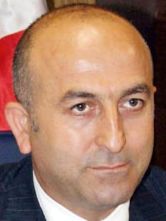
Çavusoglu |
Çavusoglu, Mevlüt (b. Feb. 5, 1968, Alanya, Turkey), foreign minister of Turkey (2014-15, 2015- ). He was also minister for EU affairs (2013-14).
Caxias, Luiz Alves de Lima e Silva, barão, conde, marquês e duque de (b. Aug. 25, 1803, Taquaraçu [now part of Duque de Caxias], Rio de Janeiro captaincy [now state], Brazil - d. May 7, 1880, Rio de Janeiro, Brazil), chairman of the Council of Ministers of Brazil (1856-57, 1861-62, 1875-78); son of Francisco de Lima e Silva, barão de Barra Grande. Joining the military service at age 14, he took part in the independence campaigns and fought in Uruguay in 1825 against Juan Antonio Lavalleja. In April 1831, following the abdication of Pedro I, he was called upon to organize a national guard to maintain order in Rio de Janeiro and its environs. During the hectic regency period he methodically extinguished insurrections in rebellious provinces. He was president of Maranhão (1840-41) and Rio Grande do Sul (1842-46, 1851). The latter province was still racked by the War of the Farrapos, begun in 1835, when he was made president of the province and commander of imperial forces in 1842; he forced the insurgents to a peace settlement 3 years later. In 1852 he led the Brazilian army at the victorious battle of Monte Caseros against Argentina's Juan Manuel de Rosas. Caxias's military genius and sense of political moderation were highly regarded by conservatives. He was called into government - serving also as war minister (1855-57, 1861-62) - in a traditional ploy of the monarchy to placate powerful military figures. In 1866 he was recalled to active duty to command the Brazilian army in the Paraguayan War against Francisco Solano López. Caxias replaced Argentina's Bartolomé Mitre as commander in chief of the allied armies in 1868. By the end of 1868 he dealt López's army a crushing defeat at Itá-Ibaté and proclaimed the war's end. He neglected to cut off López's escape, however, and the enemy continued to fight. On Jan. 12, 1869, he returned to Rio to face a Senate investigation for his conduct of the war, and was absolved of all charges. After the Paraguayan War perhaps only the influence of Caxias subordinated the increasingly arrogant military to civilian control. His death unleashed the militarism which Brazil had been able to escape for over half a century. Caxias is remembered as the "Pacifier" and "Patron of the Army," and his birthday is celebrated as the Dia do Soldado. He was made baron in 1841, count in 1845, marquess in 1852, and duke (the only in Brazil's history) in 1869.
Caycedo (y Sanz de Santamaría), Domingo (b. Aug. 4, 1783, Bogotá, New Granada [now in Colombia] - d. July 1, 1843, Puente Aranda [now part of Bogotá], New Granada), interior minister (1829-30) and foreign minister (1830) of Colombia, acting president of Colombia (1830, 1831) and New Granada (1831, 1841), and vice president of New Granada (1837-43).
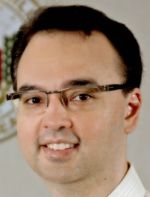
A.P. Cayetano |
Cayetano, Alan Peter (Schramm) (b. Oct. 28, 1970, Mandaluyong [now part of Metropolitan Manila], Philippines), foreign secretary of the Philippines (2017-18). He was also a vice presidential candidate (2016) and speaker of the House of Representatives (2019-20).
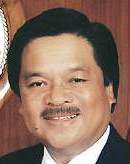
B. Cayetano |
Cayetano, Ben(jamin Jerome) (b. Nov. 14, 1939, Honolulu, Hawaii), governor of Hawaii (1994-2002). After serving in the state's House of Representatives (1975-78) and Senate (1979-86), the Democrat became lieutenant governor of Hawaii (1986-94). Cayetano's election as governor in 1994 was due less to the strength of his Democratic machine than to the weakness and division of his opponents. Former Congresswoman Pat Saiki, a strong though losing candidate against Senator Daniel Akaka in 1990, and of Japanese descent, seemed as potent a candidate as Republicans could field. But she split the anti-Democratic vote with Frank Fasi, longtime (1968-80, 1984-94) mayor of Honolulu. In 1994, Fasi formed his own The Best party, raised money from city employees and was endorsed by the carpenters' union; meanwhile, Cayetano beat state healthcare program director Jack Lewin by only 55%-38% in the September primary. Cayetano said he was more concerned about education than prisons, and argued that Democrats' programs benefited ordinary people; Saiki talked tough on crime and promised a better business climate to "grow" the economy; Fasi combatively stressed his get-things-done record as mayor. Cayetano, relying on a half-hour ad telling his personal story, won with 37% of the vote; Saiki had 31% and Fasi 29%. In office, Cayetano reluctantly cut spending increases sharply and declined to raise taxes: in tandem with mainland politics.
Cayla, Léon (Henri Charles) (b. Nov. 17, 1881, Oran, Algeria - d. April 25, 1965, Saint-Germain-en-Laye, Seine-et-Oise [now in Yvelines], France), governor of the Alawite Territory (1925) and Lebanon (1925-26) and governor-general of Madagascar (1930-39, 1940-41) and French West Africa (1939-40).
Caylus, Charles de Thubières, marquis de (b. 1698 - d. 1750?), governor of Martinique (1744-50). He mysteriously disappeared while he was in office, being no more seen in Martinique after May 12, 1750. It is not known whether he died or left the island.
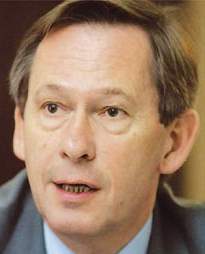
Cayrel |
Cayrel, Laurent (Jacques Hubert) (b. July 9, 1950, Bordeaux, France), prefect of Réunion (2005-06). He was also secretary-general of New Caledonia (1994-97; acting high commissioner 1995) and prefect of the départements of Jura (2000-02), Morbihan (2006-09), Var (2012-14), and Haute-Vienne (2014-15).
Cazacu, Virgil (b. Sept. 1, 1927, Zorleni, Vaslui county, Romania), a deputy prime minister of Romania (1978-79). He was also chairman of the Committee for Broadcasting and Television (1966-68), ambassador to Yugoslavia (1974-78), and first secretary of the party committee and chairman of the executive committee of Prahova county (1982-87).
Cazeau, Jean Wesley, Haitian diplomat. He was chargé d'affaires (2011-12) and permanent representative (2012-13) to the United Nations.

Cazelles | 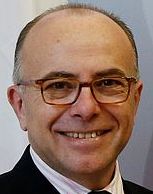
Cazeneuve |
Cazelles, Stanislas (Marie Antoine) (b. Sept. 26, 1977, Nancy, France), prefect of Martinique (2020-22).
Cazeneuve, Bernard (b. June 2, 1963, Senlis, Oise, France), interior minister (2014-16) and prime minister (2016-17) of France.
Cazot, (Théodore) Jules (Joseph) (b. Feb. 11, 1821, Alais [now Alès], Gard, France - d. Nov. 27, 1912, La Jasse, Gard), justice minister of France (1879-82).
Cea Bermúdez (y Buzo), Francisco, conde de Colombí (b. Oct. 28, 1779, Málaga, Spain - d. July 6, 1850, Paris, France), first secretary of state (1824-25, 1832-34) and foreign minister (1849) of Spain. He was also chargé d'affaires in Russia (1812-20) and minister to the Ottoman Empire (1820-23), the United Kingdom (1823-24, 1828-32), Saxony (1826-28), and Portugal (1848-50).
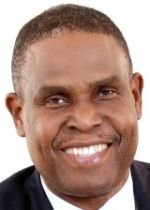
Céant |
Céant, Jean-Henry (b. Sept. 27, 1956, Croix-des-Missions [now part of Tabarre], near Port-au-Prince, Haiti), prime minister of Haiti (2018-19).
Ceausescu, Elena, née Petrescu (b. Jan. 6, 1919, Petresti, Dâmbovita county, Romania - d. Dec. 25, 1989, Tîrgoviste [now Târgoviste], near Bucharest, Romania), a first deputy prime minister of Romania (1980-89); wife of Nicolae Ceausescu. She was also chair of the National Council for Science and Technology (1979-89). She was executed with her husband.
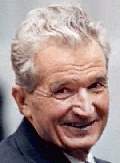
N. Ceausescu |
Ceausescu, Nicolae (Andruta) (b. Jan. 26, 1918, Scornicesti, Romania - d. Dec. 25, 1989, Tîrgoviste [now Târgoviste], near Bucharest, Romania), Romanian Communist Party leader (1965-89). A prominent member of the Romanian Communist youth movement during the early 1930s, he was twice imprisoned for his Communist Party activities. While in prison he became a protégé of his cell mate, the Communist leader Gheorghe Gheorghiu-Dej. After the Communists' full accession to power in 1947, he was agriculture minister (1948-50) and deputy minister of the armed forces (1950-54). With the death of Gheorghiu-Dej in March 1965, he succeeded to the Communist Party leadership as first secretary (general secretary from July 1965) and became president of the State Council in December 1967. He was elected to the newly created post of president of Romania in 1974. While following an independent policy in foreign relations, he adhered ever more closely to the Communist orthodoxy of centralized administration at home. He instituted an extensive personality cult and appointed his wife, Elena, and many members of his extended family to high government and party posts. Among his grandiose and impractical schemes was a plan to bulldoze thousands of villages and move their residents into new apartment buildings. His regime collapsed after he ordered his security forces to fire on anti-government demonstrators in Timisoara on Dec. 17, 1989. The demonstrations spread to Bucharest, and on December 22 the army defected to the demonstrators. That same day Ceausescu and his wife fled the capital in a helicopter but were captured by the armed forces. On December 25 they were hurriedly tried and convicted by a special military tribunal on charges of mass murder and other crimes and were then shot by a firing squad.
Ceballos (Socas), Alejandro (b. April 26, 1885, Buenos Aires, Argentina - d. Dec. 29, 1973, Buenos Aires), foreign minister of Argentina (1958). He was also ambassador to France (1958-60).
Ceballos y Vargas, Francisco (de Paula), (from Oct. 24, 1876) marqués de Torrelavega (b. Oct. 9, 1814, Torrelavega, Cantabria, Spain - d. March 9, 1883, Madrid, Spain), governor of Cuba (1872-73) and war minister of Spain (1875-79).
Cebotari, Vladimir (b. Nov. 7, 1980, Sadaclia, Moldavian S.S.R.), justice minister of Moldova (2015-18).

Cecchetti |
Cecchetti, Alberto (b. Jan. 9, 1944, Genoa, Italy), captain-regent of San Marino (1975, 1994, 1998, 2001-02). He was also minister of justice and information (2002-03).
Ceccoli, Edda (b. June 26, 1947, Montegiardino, San Marino), captain-regent of San Marino (1991-92).
Cecil, Sir (Oswald) Nigel (Amherst) (b. Nov. 11, 1925 - d. March 10, 2017), lieutenant governor of the Isle of Man (1980-85); knighted 1979.
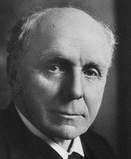
Viscount Cecil |
Cecil of Chelwood, (Edgar Algernon) Robert (Gascoyne-)Cecil, (1st) Viscount (b. Sept. 14, 1864, London, England - d. Nov. 24, 1958, Tunbridge Wells, Kent, England), British statesman; son of Robert Arthur Talbot Gascoyne-Cecil, Marquess of Salisbury; brother of James Gascoyne-Cecil, Marquess of Salisbury. He entered Parliament in 1906 where he remained, with one brief interruption, until 1923. During World War I, he was successively undersecretary of state for foreign affairs (1915-16), minister of blockade (1916-18), and assistant secretary of state for foreign affairs (1918). As early as 1916 he began to draw up an international peacekeeping agreement, and in 1919, when he was sent to the peace conference in Paris, his ideas proved generally compatible with those of U.S. president Woodrow Wilson and South African Field Marshal Jan Christian Smuts, the other prominent advocates of the League. Like Smuts, Cecil believed in a world order determined by the white nations; he successfully opposed a provision for absolute racial equality among League member states. In 1923 he was created lord privy seal, a post which gave him the opportunity to devote himself to affairs at Geneva, and later the same year he was elevated to the peerage. In 1924 he became chancellor of the Duchy of Lancaster. As the principal British delegate to the disarmament conference at Geneva (1926-27), Cecil disagreed with the instructions given him and resigned from Prime Minister Stanley Baldwin's government. During the 1930s he unsuccessfully argued for League measures against aggression by Japan in Manchuria and by Italy in Ethiopia. In 1937 his efforts were rewarded with the Nobel Prize for Peace. He was one of the few in Parliament to vote against the concessions made to Nazi Germany at Munich in 1938.
Çeço, Makbule (Xhelo) (b. July 21, 1948, Durrës, Albania), Albanian politician. She was prefect of Tiranë (1997-99) and a deputy prime minister and minister of labour and social affairs (1999-2001).
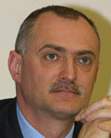
Cecotti |
Cecotti, Sergio (b. Oct. 23, 1956, Udine, Friuli-Venezia Giulia, Italy), president of Friuli-Venezia Giulia (1995-96).
Cedeño (Marrero), Antonio (Primitivo) (b. June 10, 1953), governor of Portuguesa (2021- ).
Cedeño, (José) Gregorio (b. 1830, Valencia, Venezuela - d. Dec. 6, 1891, Valencia), governor of Carabobo (1877-79) and Venezuelan head of state (1879, in rebellion from 1878) and minister of war and navy (1879).
Cederbielke, Johan friherre, originally Johan Rudberus (b. April 30, 1677, Lidköping, Skaraborg [now in Västra Götaland], Sweden - d. Oct. 9/10, 1752, Huddinge socken, Stockholm county, Sweden), governor of Västmanland (1736-47). He was ennobled under the name Cederbielke in 1718 and made friherre (baron) in 1731.
Cedercrantz, (Otto) Conrad (Valdemar) (b. Oct. 22, 1854, Kulltorp, Jönköping, Sweden - d. Aug. 25, 1932, Stuttgart, Germany), chief justice of Samoa (1891-93) and governor of Gotland (1901-03) and Kalmar (1903-17).
Cedercreutz, Herman greve, originally Herman Tersmeden (b. Feb. 13, 1684 - d. Nov. 24, 1754, Stockholm, Sweden), Swedish diplomat; stepson of Jonas friherre Cedercreutz. He was minister (1722-29) and ambassador (1744-45) to Russia. He was raised from friherre (baron) to greve (count) in 1751.
Cedercreutz, Jonas friherre, originally Jonas Folkern (b. March 12, 1661, Västerås, Västmanland, Sweden - d. April 14, 1727, Grangärde socken, Kopparberg [now Dalarna], Sweden), governor of Kopparberg (1713-16) and Västmanland (1716-20). He was ennobled under the name Cedercreutz in 1711 and made friherre (baron) in 1719.
Cederhielm, Germund friherre, d.ä. (the elder), original surname Palm (b. 1635, Sala, Västmanland, Sweden - d. af. 1722), governor of Skaraborg (1712-16). He was made friherre (baron) in 1718.
Cederhielm, Germund friherre, d.y. (the younger) (b. Sept. 13, 1661 - d. Aug. 26, 1741, Vinnerstad socken [now part of Motala municipality], Östergötland, Sweden), governor of Skaraborg (1716) and Södermanland (1716-23); son of Germund friherre Cederhielm d.ä.
Cederström, Bror friherre (b. Aug. 29, 1720, Lisma, Stockholm county, Sweden - d. Dec. 21, 1787, Lundby socken, Västmanland, Sweden), governor of Vasa (1775-85); half-brother of Carl friherre Cederström.
Cederström, (Gustaf Albrekt) Bror friherre (b. Sept. 21, 1780, Håtuna socken, Stockholm county, Sweden - d. Dec. 21, 1877, Jönköping, Sweden), war minister of Sweden (1840); grandson of the above.
Cederström, Carl friherre (b. March 28, 1706, Stockholm, Sweden - d. June 12, 1793, Pargas socken, Åbo och Björneborg, Finland), governor of Kopparberg (1766-81).
Cederström, Jacob friherre (b. Jan. 21, 1782, Stockholm, Sweden - d. July 9, 1857, Tindered, Kalmar, Sweden), governor of Gotland (1817-33); nephew of Carl friherre Cederström.
Cederström, Sven friherre (b. Oct. 9, 1710, Huddinge socken, Stockholm county, Sweden - d. Dec. 30, 1781, Stockholm, Sweden), governor of Älvsborg (1769-75); brother of Carl friherre Cederström.
Cederwall, Gustav (Fredrik Ernst) (b. April 5, 1913 - d. March 14, 2008), governor of Västmanland (1960-80).
Cédile, Jean (Henri Arsène) (b. Jan. 26, 1908, Pointe-à-Pitre, Guadeloupe - d. Feb. 13, 1984, Saint-Cloud, Hauts-de-Seine, France), commissioner of French Togo (1948-51).
Cedillo, Saturnino (b. Nov. 29, 1890, Rancho de Palomas, Ciudad del Maíz, San Luis Potosí, Mexico - d. [killed by federal troops] Jan. 10?, 1939, near Matehuala, San Luis Potosí), governor of San Luis Potosí (1927-31). He was also Mexican minister of agriculture (1931, 1935-37). He led an unsuccessful revolt against Pres. Lázaro Cárdenas in 1938.
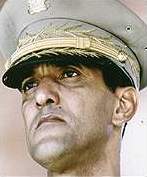
Cédras |
Cédras, (Joseph) Raoul (b. July 9, 1949, Jérémie, Haiti), Haitian coup leader. He entered the Military Academy in August 1971 and was commissioned as a sublieutenant in January 1973. He spent almost all his career in the Military Academy, where he became a cadet commander in 1978, training officer in 1983, and director of the Academy in 1988. In 1986, he was commander of the Recruit Training Centre, and in 1990 he was named president of the Coordinating Committee for Election Security. He did this job well, which earned him the esteem of Jean-Bertrand Aristide who swept Haiti's first fully democratic elections with almost 70% of the vote. The very day of Aristide's inaugural, Feb. 7, 1991, Cédras was promoted to chief of the army general staff. After the resignation of the commander-in-chief of the army, Hérard Abraham, Aristide appointed Cédras as interim commander-in-chief, July 2. He took part in the coup ousting Aristide in September, and parliament subsequently confirmed his appointment as commander-in-chief for three years. Before the coup, Cédras, one of the few mulatto officers in the army, was perceived by public opinion as a moderate, but the favourable opinions of him were reversed following the coup, which he called "a democratic correction." He supported repressive actions of the army and paramilitary groups and did what he could to frustrate various international accords designed to return Aristide to power. He remained Haiti's de facto leader until October 1994, when a U.S. intervention ended his regime. He went into exile in Panama. In November 2000, a Haitian court sentenced Cédras and 36 army officers in absentia to life in prison with hard labour for their roles in an April 1994 massacre at Raboteau, a seaside shantytown.
Cegielski, Longin (b. March 12, 1920, Moszczenicy, Poland - d. Jan. 29, 1987, Warsaw, Poland), a deputy premier of Poland (1976-80).
Cehajic, Osman (b. Jan. 15, 1958, Kljuc [now in Federation of Bosnia and Herzegovina]), premier of Una-Sana (2005-07).
Ceka, Neritan (Hasan) (b. Feb. 11, 1941, Tiranë, Albania), public order minister of Albania (1997-98). He is also known as an archaeologist and was ambassador to Italy (2013-16).
Çeku, Agim (b. Oct. 29, 1960, Pec, Kosovo, Serbia), prime minister (2006-08) and defense minister (2011-14) of Kosovo.
Cekuolis, Dalius (b. March 29, 1959, Vilnius, Lithuanian S.S.R.), Lithuanian diplomat. He was ambassador to Denmark, Norway, and Iceland (1992-94), Belgium, the Netherlands, and Luxembourg (1994-98), Portugal (1999-2004), and France (2014-19) and permanent representative to the United Nations (2006-12).
Çela, Kudret (b. Jan. 7, 1945, Berat, Albania), justice minister of Albania (1991-94).
Celebic, Gojko (b. Jan. 31, 1958, Titograd [now Podgorica], Montenegro), Montenegrin politician/diplomat. He was culture minister (1993-97), ambassador of Yugoslavia to Argentina, Paraguay, and Uruguay (1998-2002), chargé d'affaires at the United Nations (2010), and non-resident ambassador to Egypt (2014- ).
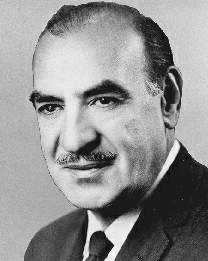
Celebrezze |
Celebrezze, Anthony J(oseph) (b. Sept. 4, 1910, Anzi, Basilicata, Italy - d. Oct. 29, 1998, Cleveland, Ohio), U.S. politician. He served in the U.S. Navy during World War II. A Democrat, he was a member of the Ohio senate (1951-53). He became mayor of Cleveland, Ohio, in 1953 during a boom post-war period and served until 1962, when Pres. John F. Kennedy appointed him secretary of the Department of Health, Education and Welfare. In his cabinet position he helped guide a number of important New Frontier and Great Society bills to passage by Congress. He served under Kennedy and Pres. Lyndon B. Johnson until 1965, when he was appointed as a judge for the 6th U.S. Circuit Court of Appeals in Cincinnati. He retired in 1980. His son Anthony J. Celebrezze, Jr., was Ohio's secretary of state (1979-83) and attorney general (1983-91).
Çelem, Hüseyin (E.) (b. Sept. 28, 1937, Istanbul, Turkey), Turkish diplomat. He was ambassador to Saudi Arabia (1981-83), Kenya (1983-86), and Greece (1991-95) and permanent representative to the United Nations (1995-98).
Célestin, Martial (Lavaud) (b. Oct. 4, 1913, Ganthier, southeastern Haiti - d. Feb. 4, 2011), prime minister of Haiti (1988). He was Haiti's first prime minister, appointed by Pres. Leslie Manigat. At the same time he was also minister of justice.
Celichowski, Witold (b. May 9, 1874, Bnin, Germany [now part of Kórnik, Poland] - d. Sept. 21, 1944, Warsaw, Poland), governor of Poznanskie województwo (1919-23).
Çelik, Vedat (b. 1935, Tera village, Paphos district, Cyprus), foreign and defense minister of North Cyprus (1976-78).
Celio, Enrico (b. June 19, 1889, Ambrì, Quinto municipality, Ticino, Switzerland - d. Feb. 22, 1980, Lugano, Ticino), president of Switzerland (1943, 1948). He was also president of the Council of State of Ticino (1934-35, 1937-38), minister of posts and railways (1940-50), and minister to Italy (1950-55).
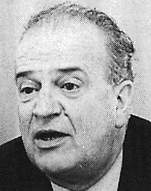
N. Celio |
Celio, Nello (b. Feb. 12, 1914, Quinto, Ticino, Switzerland - d. Dec. 29, 1995, Bern, Switzerland), defense minister (1967-68), finance minister (1968-73), and president (1972) of Switzerland. He was also president of the government of Ticino (1948-49, 1953-54, 1957-58) and president of the Liberal-Democratic Party (1960-64).
Celis Maturana, Víctor R. (b. Oct. 24, 1880, San Vicente, Chile - d. Aug. 29, 1945, Santiago, Chile), finance minister of Chile (1921, 1923). He was also president of the Chamber of Deputies (1923-24).
Cellario, Patrice (b. Nov. 21, 1953), interior minister of Monaco (2015- ).
Celli Gerbasi, Óscar (Raúl) (b. Jan. 16, 1946 - d. Aug. 1, 2016, Valencia, Carabobo, Venezuela), governor of Carabobo (1985-88).
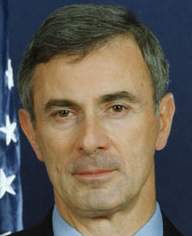
Cellucci |
Cellucci, (Argeo) Paul (b. April 24, 1948, Hudson, Mass. - d. June 8, 2013, Hudson), governor of Massachusetts (1997-2001). In 2001 he resigned to become ambassador to Canada, a post he held until 2005.
Celmins, Hugo (b. Oct. 30, 1877, Lubana parish, Russia [now in Latvia] - d. July 30, 1941, Moscow, Russian S.F.S.R.), prime minister (1924-25, 1928-31) and foreign minister (1925, 1930-31) of Latvia. He was also minister of agriculture (1920-23, 1924-25) and education (1923-24), mayor of Riga (1931-35), and ambassador to Germany and Austria (1935-38).
Celoron de Blainville, Paul Louis Maxime (b. May 20, 1831, Goyave, Guadeloupe - d. 1889), commandant (1887) and governor (1887-88) of Mayotte.
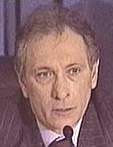
Cem |
Cem (Ipekçi1), Ismail (b. 1940, Istanbul, Turkey - d. Jan. 24, 2007, Istanbul), foreign minister of Turkey (1997-2002). He came to national attention in 1974 when he was appointed head of the state broadcasting company TRT and brightened up notoriously conservative radio and television broadcasts with a reformist administration he set up. Ousted from his post after a change of government, he published the left-leaning daily Politika, which was one of the most influential newspapers of its day. He was elected to parliament in 1987 for the Social Democratic People's Party and served as culture minister in a 1995 coalition government. The same year, he joined Bülent Ecevit's Democratic Left Party (DSP) and in December was reelected to parliament from the central province of Kayseri, his ancestral home; he was the first leftist legislator to be elected from the conservative stronghold. He was named foreign minister in 1997 in a minority coalition headed by the centre-right Motherland Party and retained his post after the April 1999 elections from which the DSP came out ahead to cobble together a three-party coalition. He won domestic praise for the resolution of a diplomatic row with Damascus over Syria's alleged support for Kurdish rebels. In 1999, he spearheaded an unprecedented rapprochement with Greece. In December 1999, the pro-European Cem saw Turkey granted candidacy for EU membership. He resigned in June 2002 amid a severe political crisis triggered by disagreement between coalition partners over reforms demanded by the EU and Ecevit's long absence from office due to bad health. He set up a new political group, the New Turkey Party, but failed to obtain any seats in the November 2002 election that propelled the Islamist-rooted Justice and Development Party to power.
1 He dropped his original surname Ipekçi in the 1970s to distance himself from his relative Abdi Ipekçi, who was editor of Milliyet, and avoid possible accusations of favouritism.
Cemerski, Angel (b. March 31, 1923, Kavadar, Yugoslavia [now Kavadarci, North Macedonia] - d. Nov. 18, 2005, Skopje, Macedonia [now North Macedonia]), secretary of the League of Communists (1969-82) and president of the Presidency (1982-83) of Macedonia.
Cemovic, Momcilo (b. May 21, 1928, Buce village, near Berane, Montenegro - d. Dec. 27, 2001, Buce), finance minister of Yugoslavia (1974-78) and president of the Executive Council of Montenegro (1978-82).

Cen | 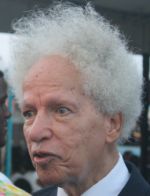
N. Cenac |
Cen Chunxuan (b. April 2, 1861, Xilin, Guangxi, China - d. April 27, 1933, Shanghai, China), governor-general of Sichuan (1902-03, 1907-08), Liangguang (1903-06), and Yungui (1906-07) and chairman of the Governing Committee of the Military Government of China (1918-20). He was under the protection of Gen. Lu Rongting after the revolution of 1916; he founded the Military Bureau in Zhaoqing, Guangdong, together with Liang Qichao, who opposed Pres. Yuan Shikai. In 1917, he took part in the Constitutional Movement launched by Sun Yat-sen against Premier Duan Qirui. In 1918 he became one of seven members, and then the chairman, of the Governing Committee of the southern government. He helped to push Sun Yat-sen out of the government, but he himself was expelled by the Guangdong army in 1920 and then left politics.
Cenac, Sir (Emmanuel) Neville (b. Nov. 24, 1939, Castries, Saint Lucia), foreign minister (1987-92) and governor-general (2018-21) of Saint Lucia; knighted 2018; brother of Winston Cenac. He was also mayor of Castries (1981-82), leader of the opposition (1982-87), and president of the Senate (1993-97).
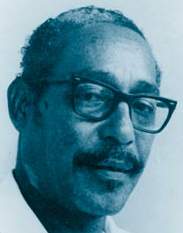
W. Cenac |
Cenac, Winston (Francis) (b. Sept. 14, 1925 - d. Sept. 23, 2004, Castries, Saint Lucia), prime minister of Saint Lucia (1981-82). After a number of legal appointments during 1962-67, he was successively attorney general of St. Lucia, St. Vincent, and Grenada. In 1967 he was appointed to the post of director of public prosecutions in Grenada. In 1969 he returned to St. Lucia and entered private practice, and in 1971 he was appointed to act as puisne judge in St. Vincent. In 1972 he was appointed puisne judge for St. Kitts-Nevis and the British Virgin Islands. Following the failure of Allan Louisy, prime minister since the 1979 general election, to pass his budget through parliament, a constitutional crisis developed. After attempts by the anti-Louisy faction in the Labour Party to form their own government, Cenac emerged as a compromise candidate. By offering the major portfolios - foreign affairs, trade and industry, and tourism - to his remaining principal rival within the Labour Party, Peter Josie, he was able to secure the support of enough members of his party in parliament to obtain a wafer-thin overall majority of one. By nature Cenac was not a politician. Though he was able to bring to St. Lucia a public aura of calm after the bitter political infighting, those who knew him well indicated that, though personally charming, he lacked the grasp of the complex local and regional issues that others with years of political experience had. He resigned in January 1982 after strikes and street protests broke out when his government tried to pass a law that would have exonerated a member of parliament accused of benefiting financially from a government contract. Cenac often claimed his resignation saved St. Lucia from spiraling into civil strife and bloodshed.

Cenci |
Cenci, Massimo (b. June 8, 1967), captain-regent of San Marino (2009).
Ceniceros (Andonegui), José Ángel (b. June 8, 1900, Durango, Durango, Mexico - d. April 24, 1979, Mexico City, Mexico), acting foreign minister of Mexico (1935). He was also ambassador to Cuba and Haiti (1945-47) and education minister (1952-58).
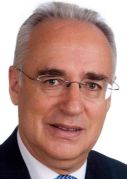
J.I. Ceniceros |
Ceniceros (González), José Ignacio (b. May 11, 1956, Villoslada de Cameros, La Rioja, Spain), president of La Rioja (2015-19).
Cepeda Dávila, Ignacio (b. Nov. 24, 1904, Arteaga, Coahuila, Mexico - d. [suicide] July 22, 1947, Saltillo, Coahuila), governor of Coahuila (1945-47); nephew of Rafael Cepeda de la Fuente. He was also mayor of Saltillo (1943-45).
Cepeda de la Fuente, Rafael (b. Oct. 5, 1872, Arteaga, Coahuila, Mexico - d. Aug. 25, 1947, Mexico City, Mexico), governor of San Luis Potosí (1911-13), Nuevo León (1915), and México (1916-17).
Cepeda Flores, Román (b. April 8, 1906, Saltillo, Coahuila, Mexico - d. Nov. 2, 1970, Saltillo), governor of Coahuila (1951-57); nephew of Rafael Cepeda de la Fuente; cousin of Ignacio Cepeda Dávila. He was also mayor of Torreón (1949-51).
Cepeda Ulloa, Fernando (b. Jan. 28, 1938, Bogotá, Colombia), interior minister of Colombia (1986-87). He was also minister of communications (1987-88), ambassador to the United Kingdom (1988-90), Canada (1992-94), and France (2006-11), and permanent representative to the United Nations (1991-92).
Cepicka, Alexej (b. Oct. 18, 1910, Kromeríz, Austria [now in Czech Republic] - d. Sept. 30, 1990, Dobrís, Czech Republic), defense minister of Czechoslovakia (1950-56). He was also minister of internal trade (1947-48) and justice (1948-50), a deputy premier (1953), and a first deputy premier (1953-56).
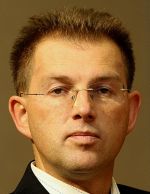
M. Cerar |
Cerar, Miro(slav) (b. Aug. 25, 1963, Ljubljana, Slovenia), prime minister (2014-18) and foreign minister (2018-20) of Slovenia; son of Zdenka Cerar.
Cerar, Zdenka (b. Sept. 17, 1941, Ljubljana, Yugoslavia [now in Slovenia] - d. Aug. 28, 2013), Slovenian politician. She was prosecutor general (1999-2004) and justice minister (2004).
Cerda (y Aguilar), José Manuel de la, member of the Triumvirate of Central America (1824-25); cousin of Manuel Antonio de la Cerda.
Cerda (y Aguilar), Manuel Antonio de la (b. 1780, Granada [now in Nicaragua] - d. [executed] Nov. 29, 1828, Rivas, Nicaragua), chief of Nicaragua (1825-26 and in rebellion 1827-28).
Cerda (Norambuena), Rodrigo (Andrés) (b. Feb. 13, 1973), finance minister of Chile (2021-22). He was also director of budgets (2018-19).
Cérésole, Paul (b. Nov. 16, 1832, Friedrichsdorf, Hesse-Homburg [now in Hessen, Germany] - d. Jan. 7, 1905, Lausanne, Switzerland), president of Switzerland (1873). He was also president of the Council of State of Vaud (1864) and minister of finance (1870-71), military (1872), and justice and police (1874-75).

Cerezo |
Cerezo Arévalo, Marco Vinicio (b. Dec. 26, 1942, Guatemala City, Guatemala), president of Guatemala (1986-90). The son of a member of Guatemala's Supreme Court, he began his own rise to political prominence in the Christian Democratic party (DCG). He eventually became his party's national organization secretary, traveling extensively throughout the country. For several generations Cerezo's family had actively opposed military dictatorship, and his determination to see his country restored to stable democratic rule was fired at the age of 11, when he witnessed the coup aided by the U.S. Central Intelligence Agency in 1954. While Cerezo described himself as an independently minded liberal not bound by party orthodoxy, his right-wing opponents perceived him as a leftist. Since 1980 three attempts on his life were made by the notorious death squads - a reminder of the power wielded by Guatemala's military and paramilitary. Presidential and congressional elections held on Nov. 3, 1985, showed Cerezo to be the most popular candidate, although he failed to gain the 50% majority required to secure the presidency; a second round on December 8 proved conclusive when he won 68% of the vote. On Jan. 14, 1986, he took office as Guatemala's first freely elected civilian president since 1970 (and only the second since 1954). The most notable achievements of this witty and debonair president were in the field of international and regional relations. On a trip to Washington in December 1985, he won the respect of the U.S. administration, ensuring the resumption of U.S. economic assistance, and a tour of Western European countries late in 1986 was equally successful. The formation of a Central American parliament, aimed at resolving regional conflict, was the result of a Cerezo initiative. In 2017-21 he was secretary-general of the Central American Integration System.

Ceriscioli | 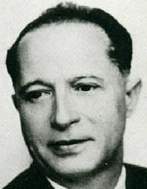
Cerneau |
Ceriscioli, Luca (b. March 15, 1966, Pesaro, Marche, Italy), president of Marche (2015- ).
Cermák, Karel (b. Sept. 13, 1934, Prague, Czechoslovakia [now in Czech Republic] - d. June 19, 2017, Prague), justice minister of the Czech Republic (2003-04).
Cermák, Petr (b. Jan. 22, 1953, Liberec, Czechoslovakia [now in Czech Republic]), interior minister of Czechoslovakia (1992).
Cernat, Alexandru (b. Jan. 17, 1828, Galati, Moldavia [now in Romania] - d. Dec. 8, 1893, Nice, France), war minister of Romania (1877, 1878). He was also chief of the General Staff (1881-82).
Cerneau, Marcel (b. July 2, 1905, Sainte-Marie, Réunion - d. March 5, 1990, Saint-Denis, Réunion), president of the Regional Council of Réunion (1973-78).

O. Cerník |
Cerník, Oldrich (b. Oct. 27, 1921, Ostrava, Czechoslovakia [now in Czech Republic] - d. Oct. 19, 1994, Prague, Czech Republic), prime minister of Czechoslovakia (1968-70). He joined the Communist Party in 1945 and by 1956 he had become a member of its Central Committee. Cerník gained a reputation as an able technocrat; he became minister of fuel (1960-63) and a deputy premier and chairman of the State Planning Commission (1963-68). He joined forces with others who believed in the decentralization of the state's economy and worked as a behind-the-scenes player in attempts to advance reform. In 1966 he was elected to the party's Presidium. In April 1968 he was appointed premier by party president Alexander Dubcek. Cerník was considered a centrist and a master at conciliation. After Warsaw Pact troops occupied Prague in August, he and a handful of other politicians were handcuffed and led away to the Soviet Union. Upon his return, he tried to maintain a balancing act, calling upon his countrymen to cooperate and publicly supporting the country's accord with Moscow while also promising to continue economic reform. He actively disassociated himself from the "errors" that he and others had committed. His about-face was insufficient; in January 1970 he was forced out as premier and by the end of the year expelled from the party. His attempts to rekindle his political career after the fall of the Communist regime in 1989 were unsuccessful.
Cerník, Zdenek (b. Feb. 26, 1921, Ostrava, Czechoslovakia [now in Czech Republic] - d. June 4, 2008, Prague, Czech Republic), Czechoslovak diplomat. He was permanent representative to the United Nations (1968-73) and ambassador to the United Kingdom (1977-83).
Cernochová, Jana (b. Oct. 26, 1973, Prague, Czechoslovakia [now in Czech Republic]), defense minister of the Czech Republic (2021- ).
Cerný, Jan (b. March 4, 1874, Uherský Ostroh, Austria [now in Czech Republic] - d. April 10, 1959, Uherský Ostroh), prime minister (1920-21, 1926) and interior minister (1920-22, 1926-29, 1932-34, 1938) of Czechoslovakia. He was also president of the provincial administration of Moravia (1920-28) and president of Moravia-Silesia (1928-39).
Cerný, Josef (b. Feb. 28, 1885, Nepolisy, Austria [now in Czech Republic] - d. Dec. 7, 1971, New York City), interior minister of Czechoslovakia (1934-38).
Cernomaz, Nicolae (b. Dec. 14, 1949, Tiganca village, Cantemir district, Moldavian S.S.R. [now Moldova]), foreign minister of Moldova (2000-01). He was also ambassador to Hungary and Croatia (1999-2000), the Czech Republic (2000), and Ukraine, Georgia, and Azerbaijan (2003-05).
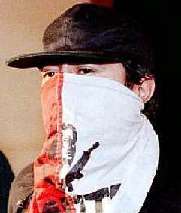
Cerpa |
Cerpa Cartolini, Néstor, also known as Comandante Evaristo (b. Aug. 14, 1953, La Victoria district, Lima, Peru - d. April 22, 1997, Lima), Peruvian rebel leader. He was a union official jailed in 1979 for leading a worker occupation of a textile plant which was being closed. He later joined the Tupac Amaru Revolutionary Movement (MRTA) and led a commando that occupied the Japanese ambassador's residence in Lima on Dec. 17, 1996, taking all the guests at a reception in honour of Japan's emperor hostage. Most of the hostages were soon released, but the commando continued to hold 72 people, including the brother of President Alberto Fujimori, several generals and heads of police divisions, Peru's foreign minister, Supreme Court judges, members of Congress from the ruling party, and the ambassadors from Japan and Bolivia. On April 22, 1997, a raid was launched on the embassy compound by U.S.-trained Peruvian special forces. All 14 members of the MRTA's "Commando Edgar Sánchez," including Cerpa, were killed.
Cerqueira, António (Joaquim Machado Pereira) do Lago (b. Oct. 11, 1880, Casa da Calçada manor, Cepelos parish, Amarante municipality, Portugal - d. Oct. 28, 1945, Casa da Calçada manor), acting foreign minister of Portugal (1925). He was also minister of labour (1925).
Cerqueira, Carolina (b. Oct. 20, 1956, Caculo Cabaça, Cuanza Norte, Angola), Angolan politician. She has been minister of social communication (2010-12) and culture (2016-19), minister of state for the social area (2019-22), and president of the National Assembly (2022- ).
Cerqueira, Dionysio Evangelista de Castro (b. April 2, 1847, Castro Alves, Bahia, Brazil - d. Feb. 16, 1910, Paris, France), foreign minister (1896-98) and acting war minister (1896-97) of Brazil. He was also acting minister of industry, transport, and public works (1897).
Cerqueira, Edgard Pedreira de, Filho (b. April 15, 1929, Curitiba, Paraná, Brazil - d. Aug. 9, 2002, Rio de Janeiro, Brazil), governor of Acre (1963-66).
Cerqueira, Eduardo Ernesto da Gama (b. Dec. 15, 1842, São João del Rei, Minas Gerais, Brazil - d. Dec. 10, 1907, Belo Horizonte, Minas Gerais), acting president of Minas Gerais (1891, 1892); brother of Francisco Januario da Gama Cerqueira.
Cerqueira, Francisco Januario da Gama (b. Jan. 3, 1827, São João del Rei, Minas Gerais, Brazil - d. 1889, São José de Além Paraíba, Minas Gerais), president of Goiás (1857-60) and justice minister of Brazil (1877-78).
Cerqueira, Francisco Xavier de, acting president of Piauí (1845, 1848).
Çërrava, Vangjel (b. Feb. 4, 1941, Korçë, Albania), a deputy premier of Albania (1987-89).

Cerruto |
Cerruto Calderón de la Barca, Javier (b. Aug. 30, 1919, La Paz, Bolivia - d. April 23, 2004, Puente Villa, Bolivia), foreign minister of Bolivia (1980-81).
Cerulli, Enrico (b. Feb. 15, 1898, Naples, Italy - d. Sept. 19, 1988, Rome, Italy), governor of Showa (1939) and Harar (1939-40). He was also Italian ambassador to Iran (1950-54).
Cervantes (Cárdenas), César (Augusto) (b. Sept. 20, 1963, Lima, Peru), interior minister of Peru (2022).
Cervantes, Edmundo (b. March 28, 1861, Bogotá, New Granada [now Colombia] - d. 1917), war minister of Colombia (1894-96).
Cervantes del Río, Hugo (b. July 4, 1927, Mexico City, Mexico - d. Aug. 9, 1989), governor of Baja California Sur (1965-70). He was also Mexican minister of the presidency (1970-75).
Cervera Pacheco, Víctor (b. April 23, 1936, Mérida, Yucatán, Mexico - d. Aug. 18, 2004, Mérida), governor of Yucatán (1984-88, 1995-2001). He was also mayor of Mérida (1971-72) and Mexican minister of agrarian reform (1988-94).
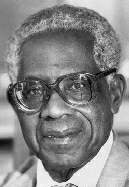
Césaire |
Césaire, Aimé (Fernand David) (b. June 25, 1913, Basse-Pointe, Martinique - d. April 17, 2008, Fort-de-France, Martinique), president of the Regional Council of Martinique (1983-88). Known as a writer and co-founder of the Négritude cultural movement, he was mayor of Fort-de-France from 1945 to 2001.
César, Carlos (Manuel Martins do Vale) (b. Oct. 30, 1956, Ponta Delgada, Azores, Portugal), president of the government of Azores (1996-2012).
César, Jaroslav (b. April 3, 1938, Kobylnicky, Czechoslovakia [now in Czech Republic]), Czechoslovak/Czech diplomat. He was chargé d'affaires in Somalia (1972-77), permanent representative to the United Nations (1983-88), and ambassador to Ethiopia (1990-92) and Nigeria (1993-95).
César, José Alves de Cerqueira (b. May 23, 1835, Nossa Senhora da Conceição dos Guarulhos [now Guarulhos], São Paulo, Brazil - d. July 26, 1911, São Paulo, Brazil), president of São Paulo (1891-92).
César, Octaviano, finance minister of Nicaragua (1917-19).

Céspedes
(y L. del C.) |
Céspedes (y López del Castillo), Carlos Manuel (Perfecto del Carmen) de (b. April 18, 1819, Bayamo, Cuba - d. Feb. 27, 1874, San Lorenzo, Cuba), president of Cuba (1868-73).
Céspedes (y de Quesada), Carlos Manuel de (b. Aug. 12, 1871, New York City - d. March 28, 1939, Vedada, near Havana, Cuba), foreign minister (1922-26, 1933) and president (1933) of Cuba; son of Carlos Manuel de Céspedes (y López del Castillo). He was also minister to Italy (1909-12), Argentina (1912-13), and France (1930-33) and ambassador to the United States (1913-22).
Céspedes (Peregrina), Sergio Salomón (b. April 18, 1969, Tepeaca, Puebla, Mexico), governor of Puebla (2022- ).
Cestari (Vásquez), Carolina (Del Valle) (b. Nov. 24, 1964), Venezuelan politician; chief of government of Distrito Capital (2017, 2018-20).
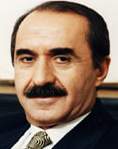
Çetin |
Çetin, Hikmet (b. 1937, Diyarbakir, Turkey), Turkish politician. He is a Kurdish social democrat whose skills as a deal-maker came to the fore in successful negotiations to merge two leftist parties in 1995. Dignified and widely respected, he served as minister of state (1978), deputy prime minister (1978-79, 1995), foreign minister (1991-94), and speaker of the Grand National Assembly (1997-99).
Çetiner, Selahattin (b. 1922, Lapseki, Çanakkale, Turkey), interior minister of Turkey (1980-83).
Cevallos (Salvador), Pedro José (b. 1830, Quito, Ecuador - d. Nov. 16, 1892), vice-president (1886-90), acting president (1888), and foreign and interior minister (1891) of Ecuador. He was also education minister (1892).
Cevallos (y) Guerra (de la Vega), Pedro (Félix) (b. Aug. 1, 1759, San Felices de Buelna, Spain - d. May 29, 1839, near Sevilla, Spain), first secretary of state (1800-08, 1808, 1808-09 [in Resistance], 1814-16, 1816) and foreign minister (1808) of Spain.
Cevers, Ziedonis (b. Jan. 29, 1960, Riga, Latvian S.S.R.), interior minister of Latvia (1991-93, 1997-98).
Çevik, Yasar Halit (b. 1955, Gölcük, Turkey), Turkish diplomat. He was ambassador to Syria (2004-09) and Greece (2016-18) and permanent representative to the United Nations (2012-16).































































































































































































